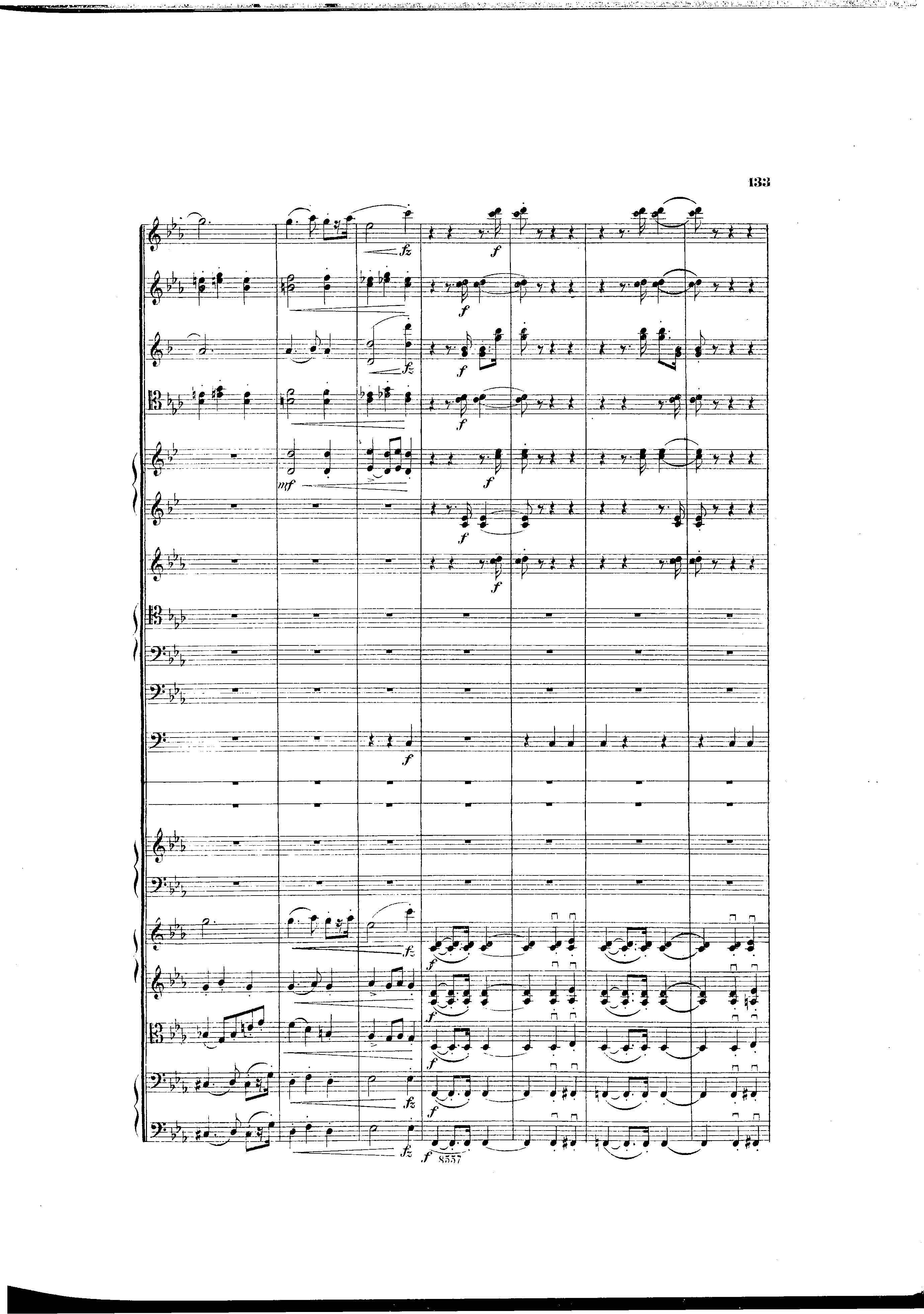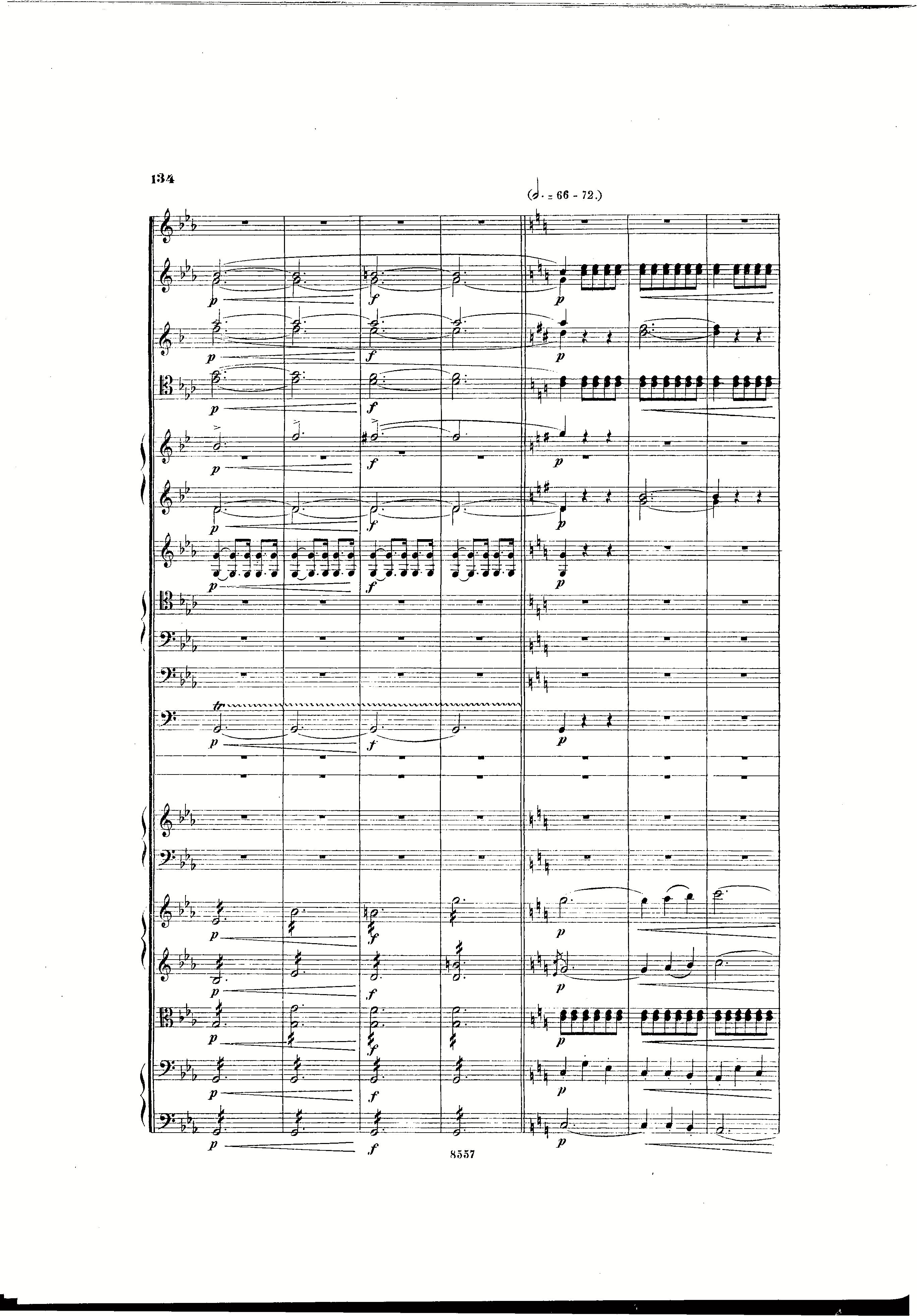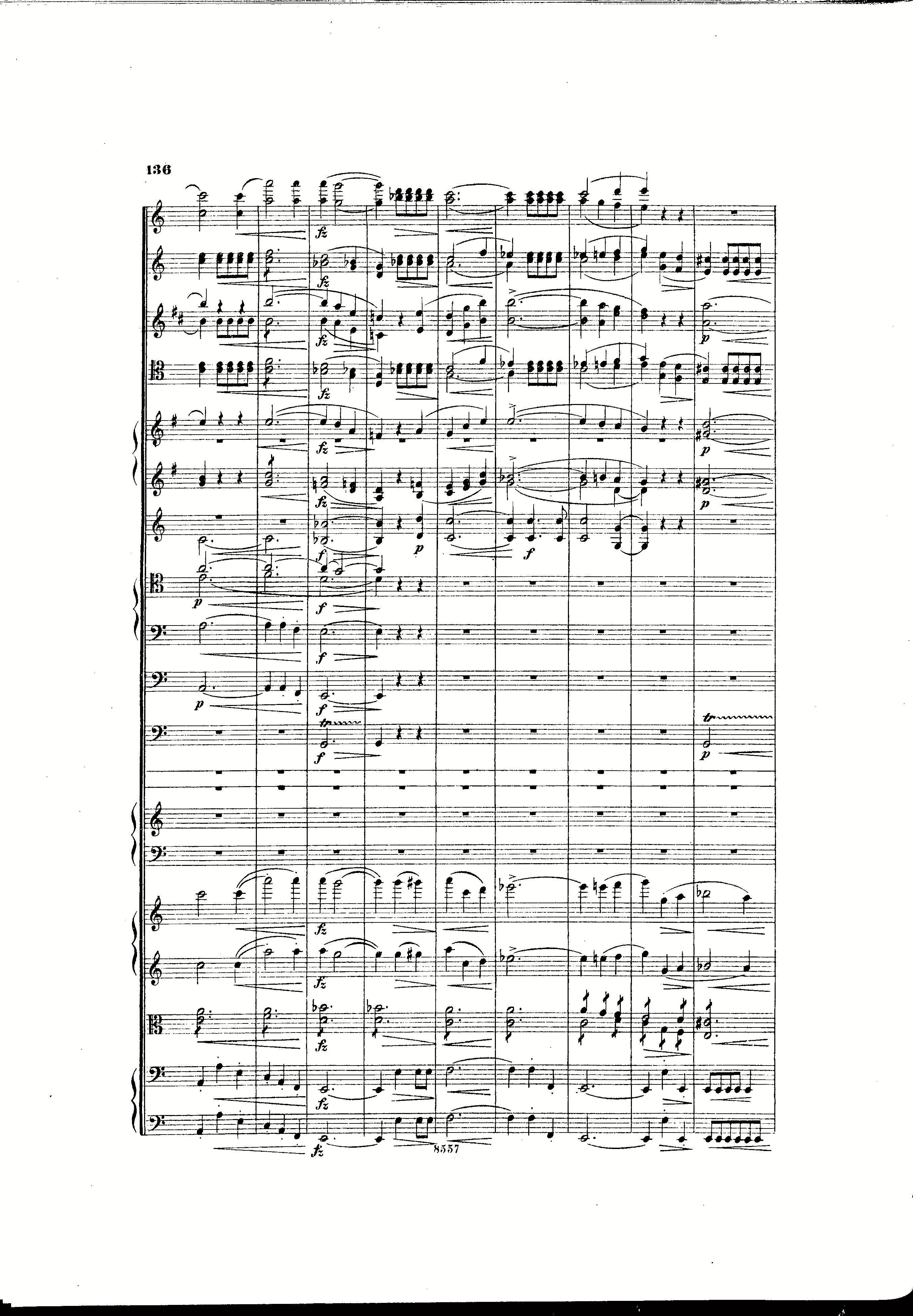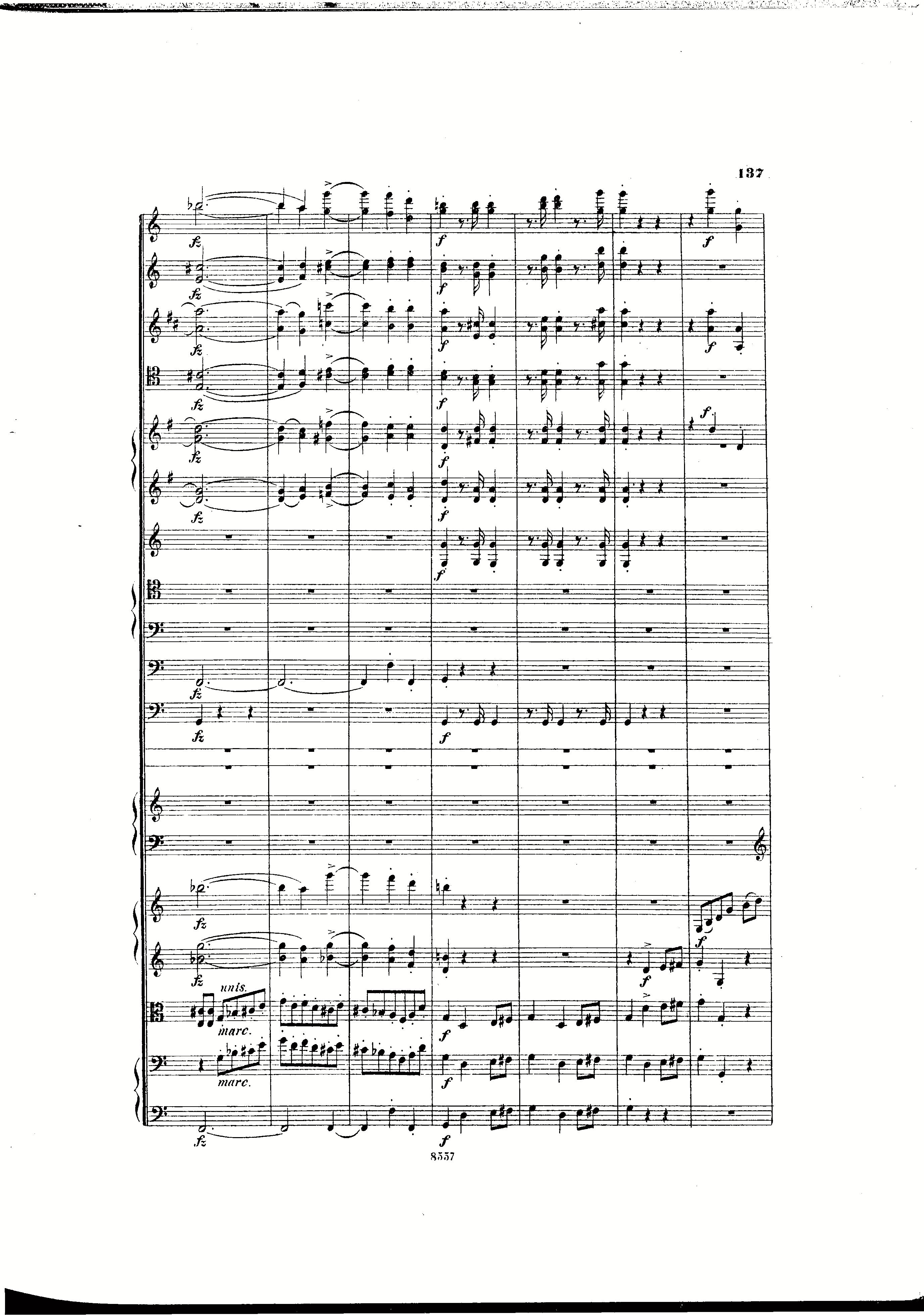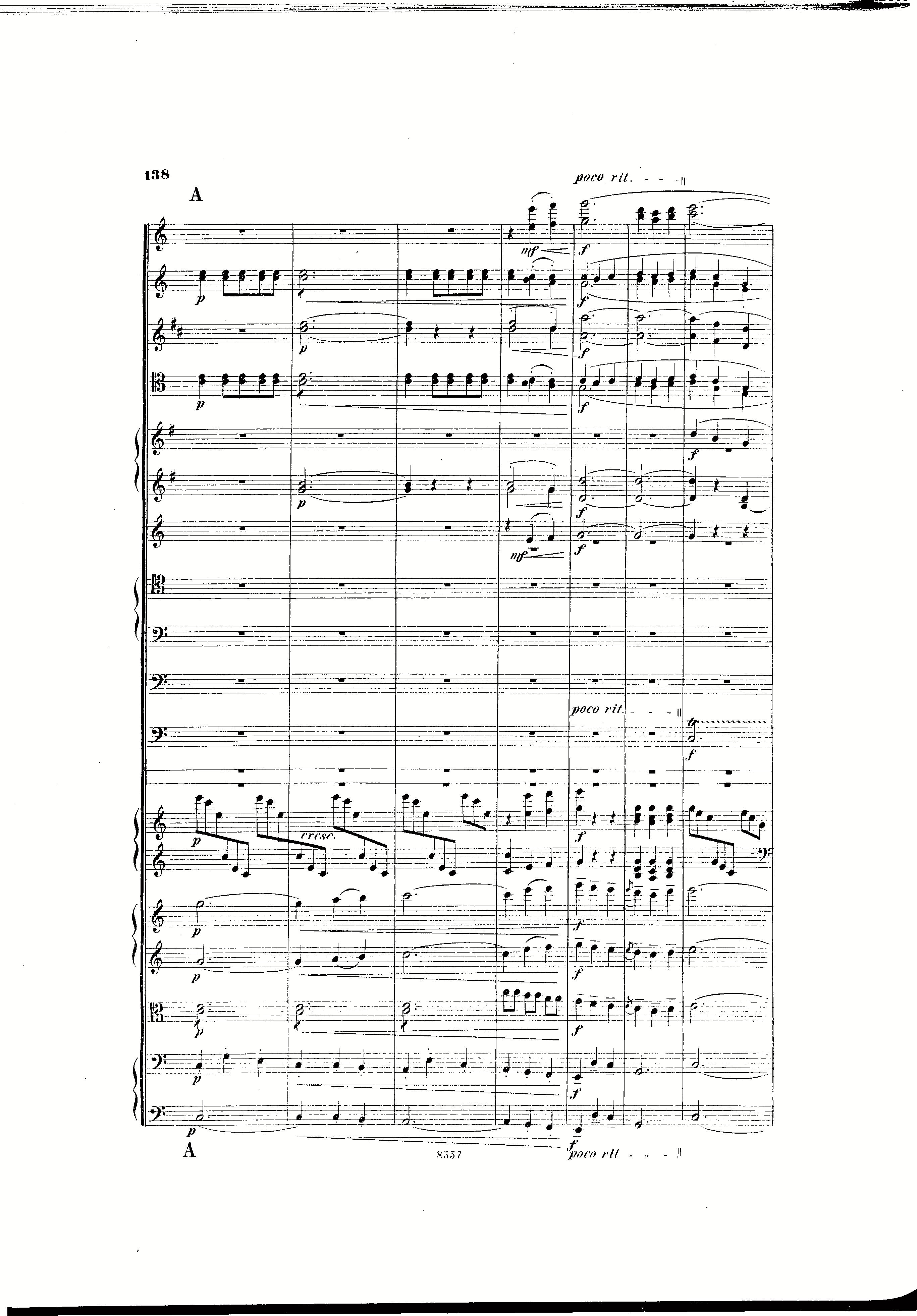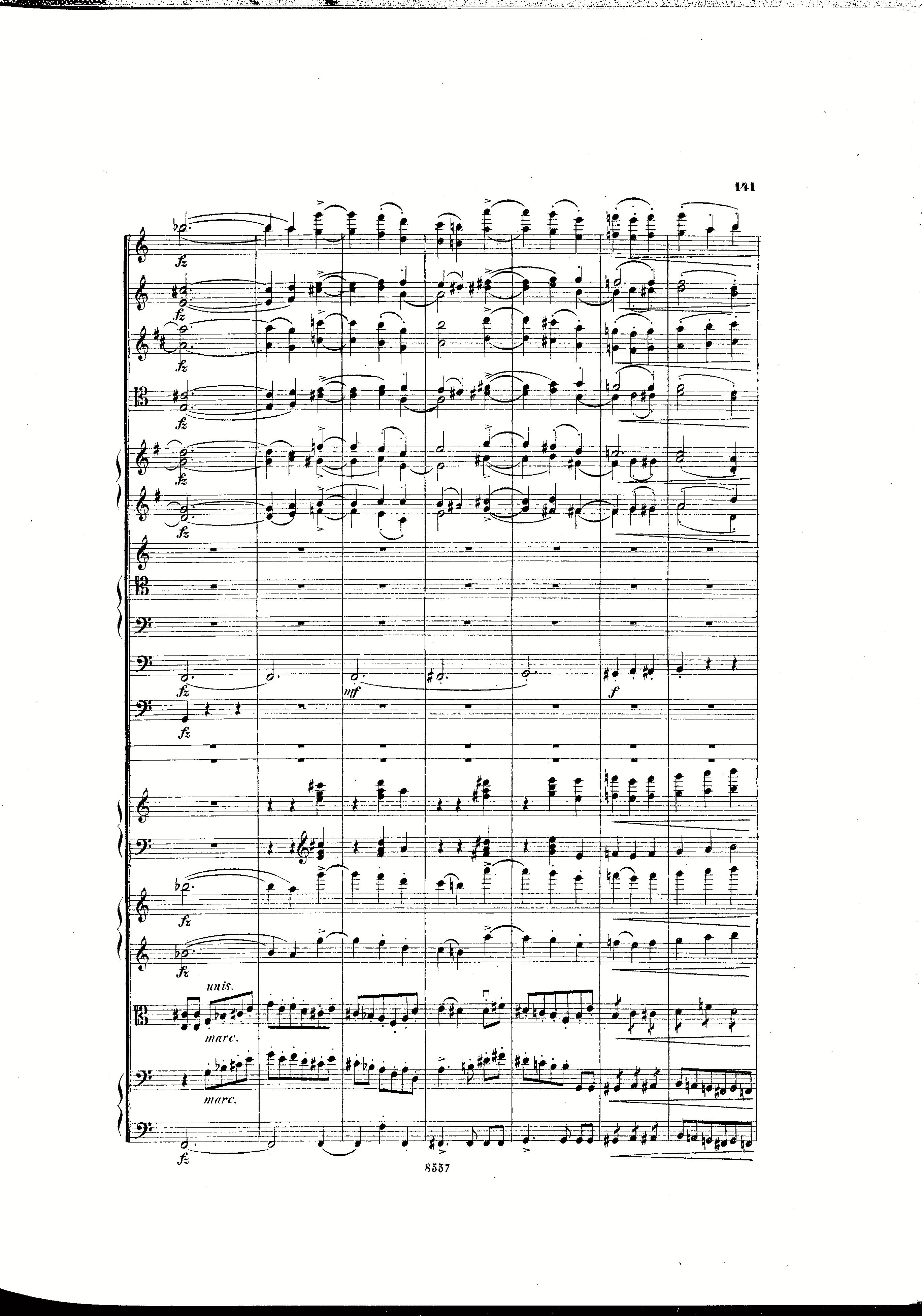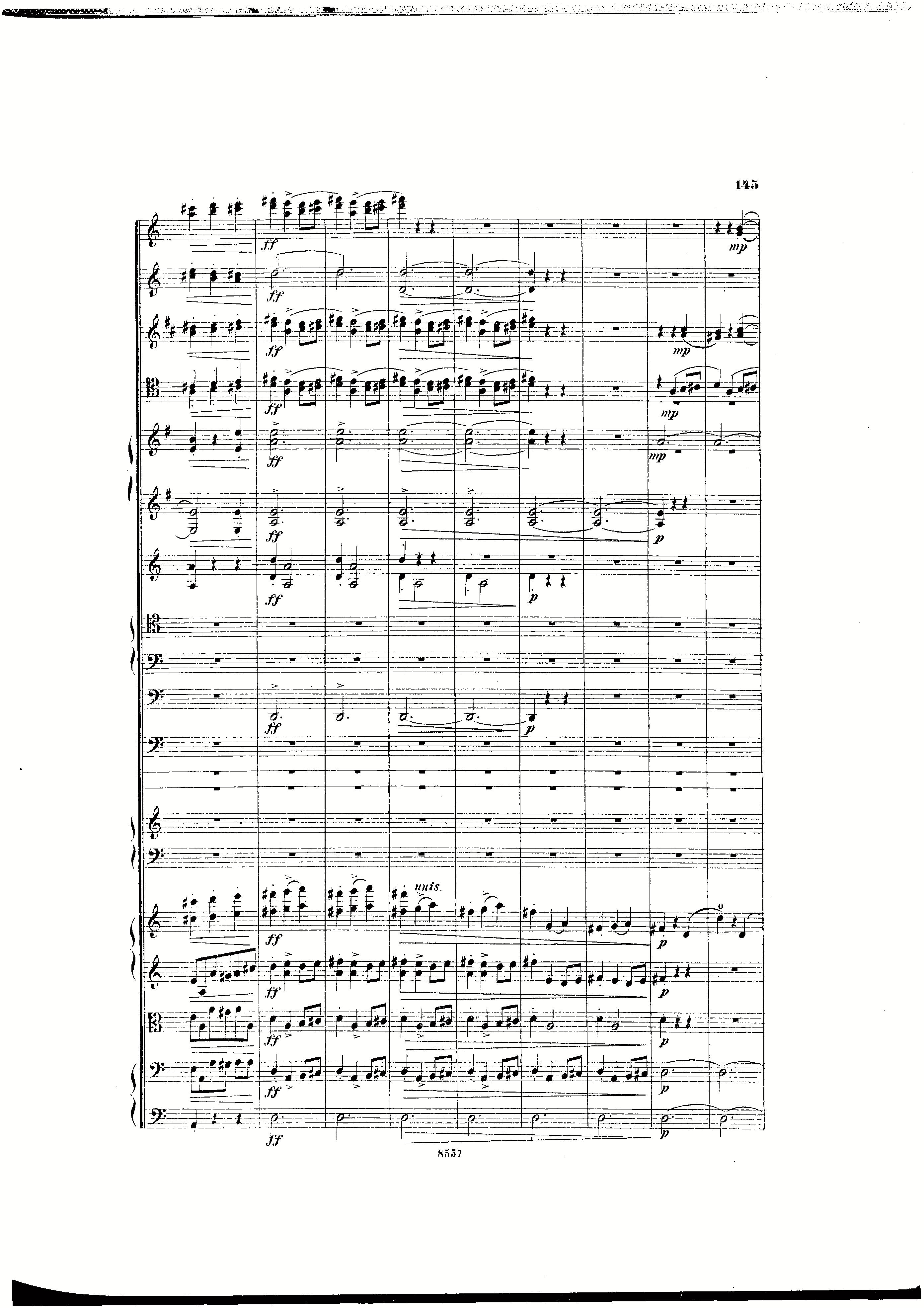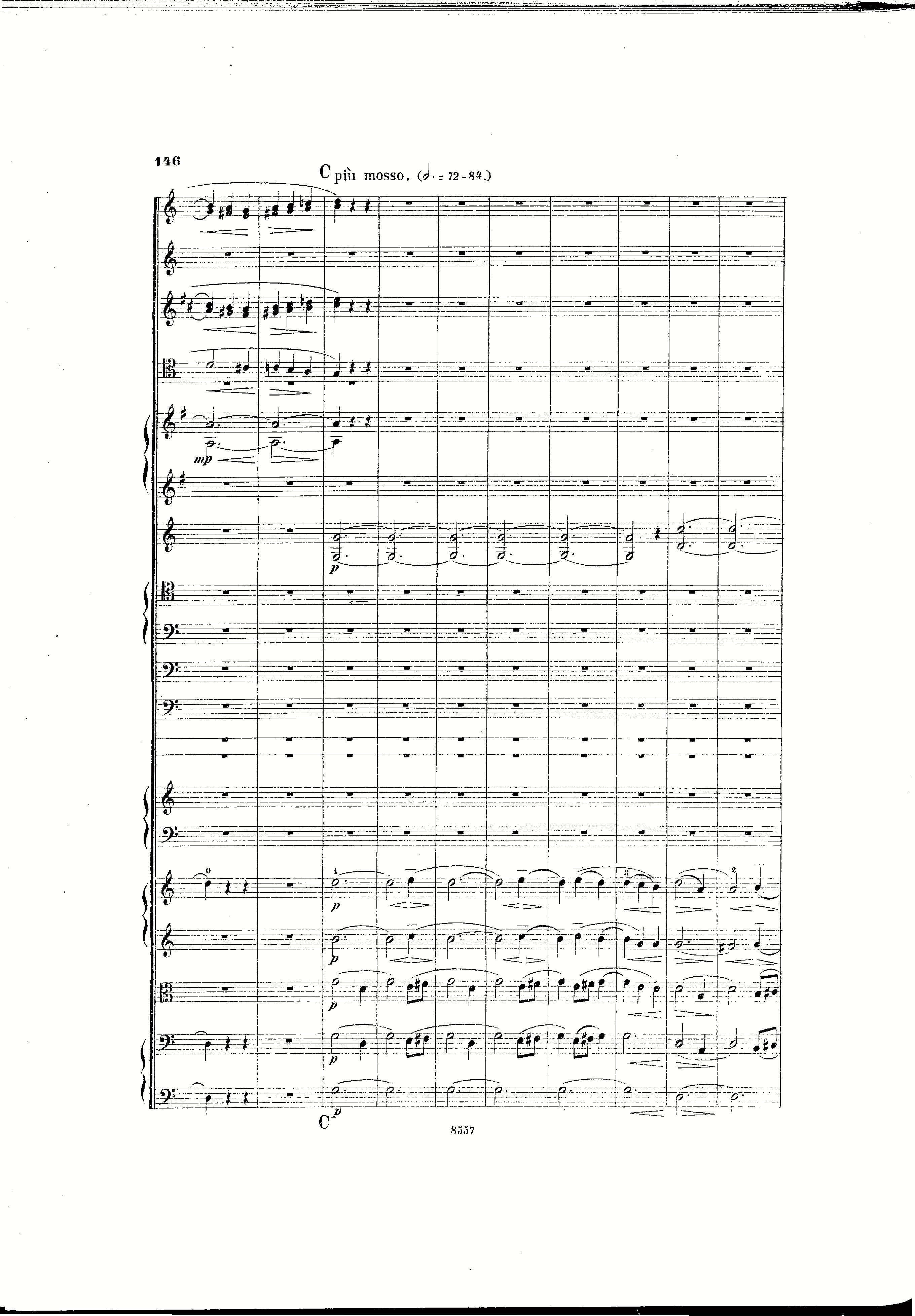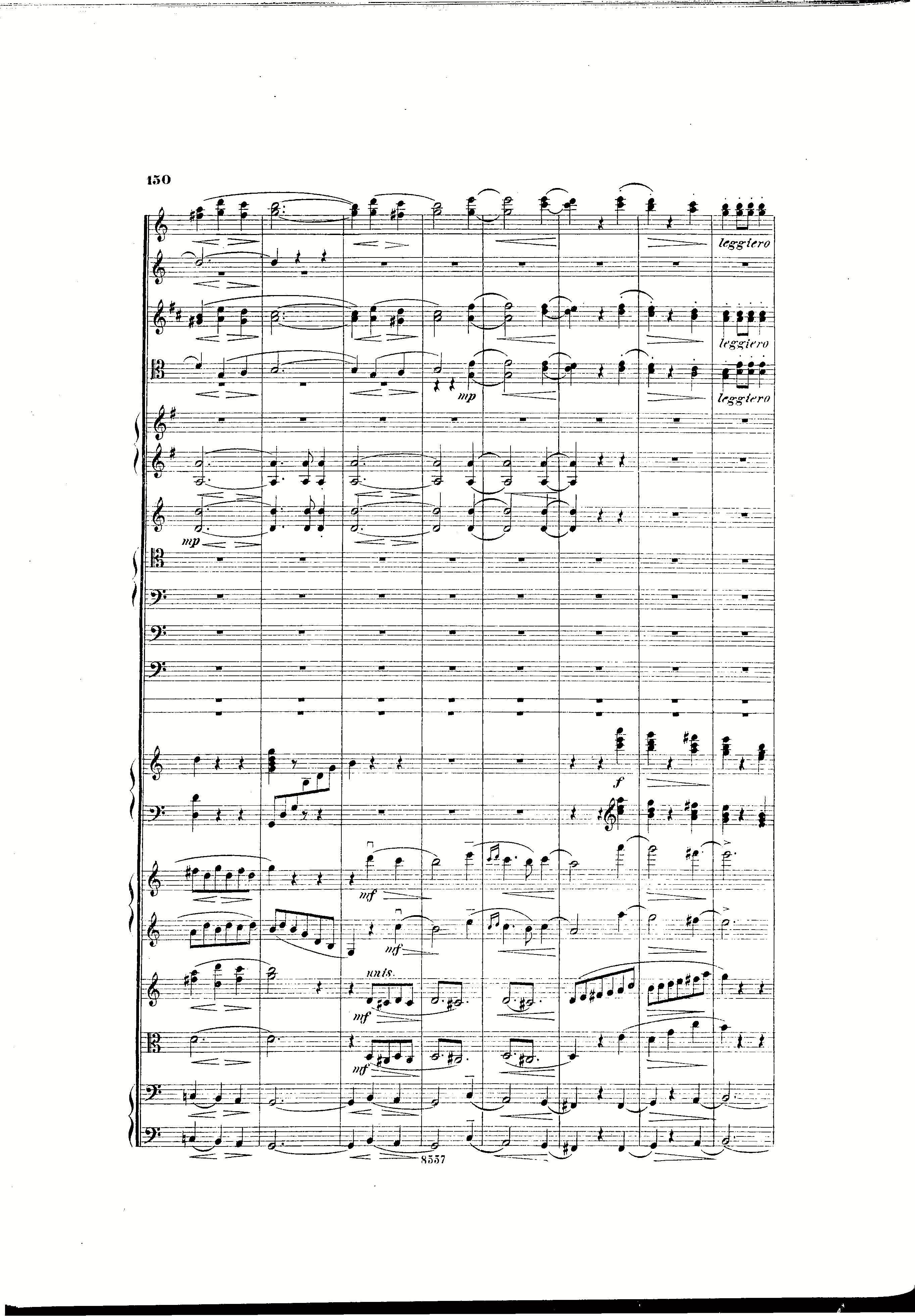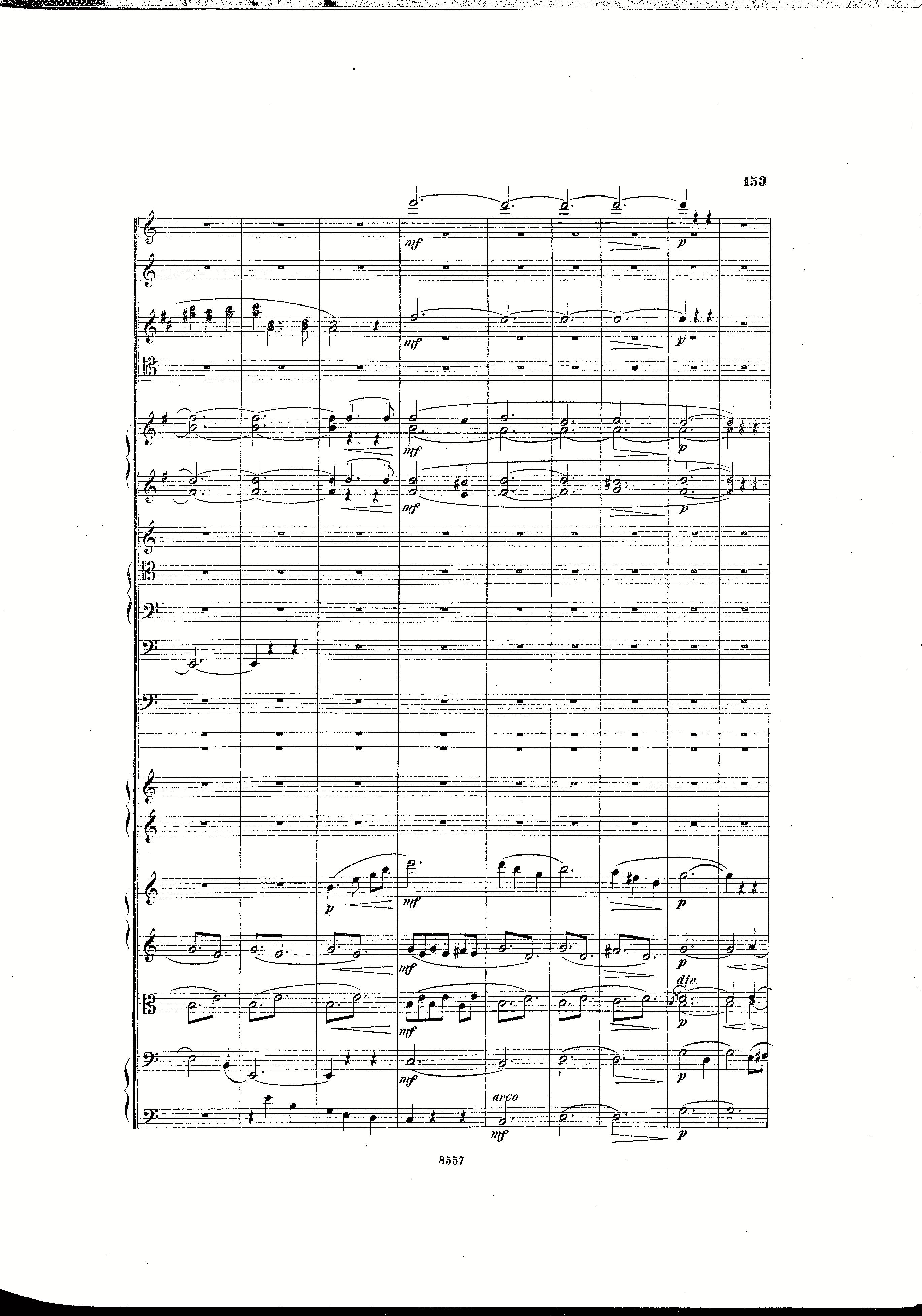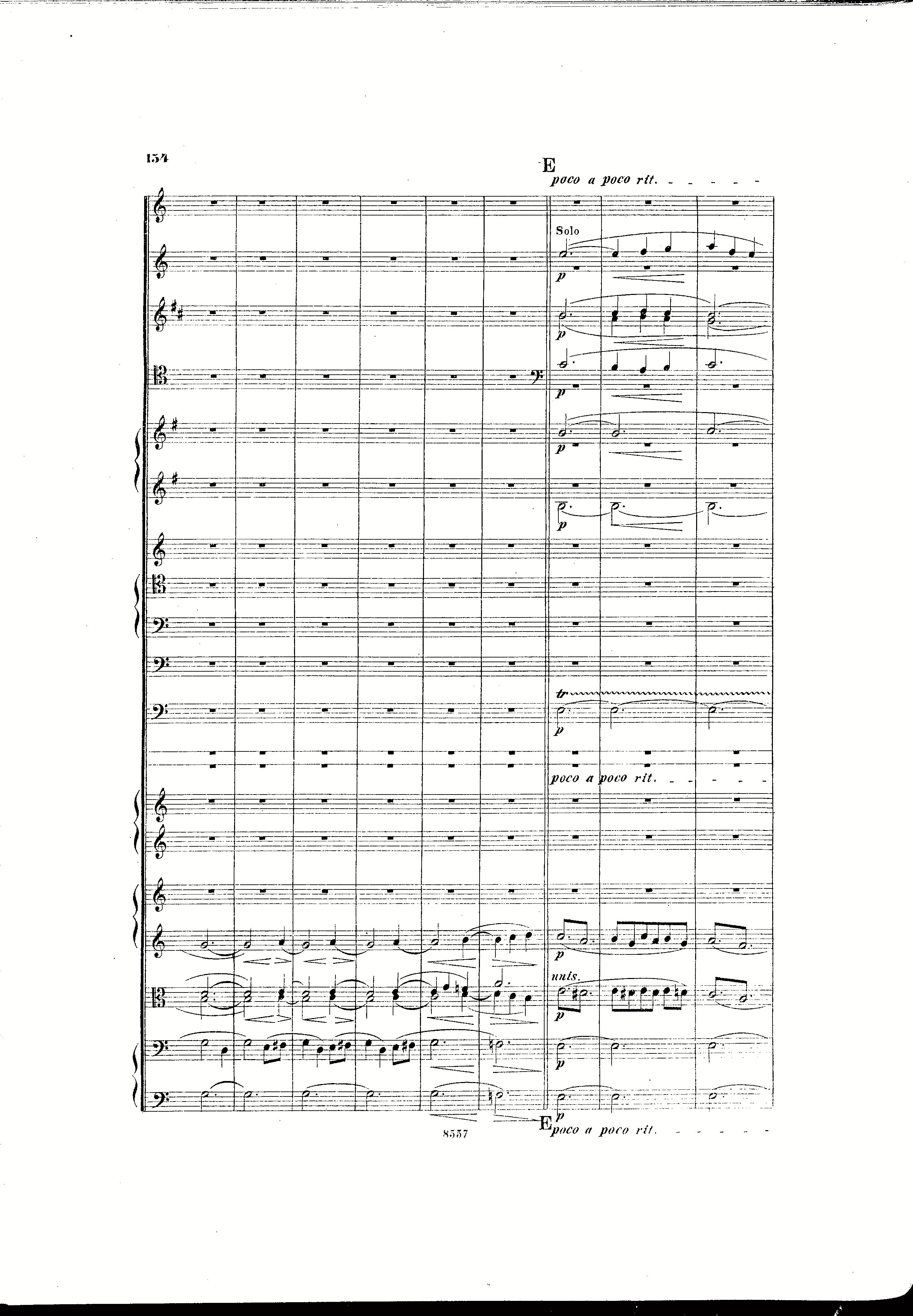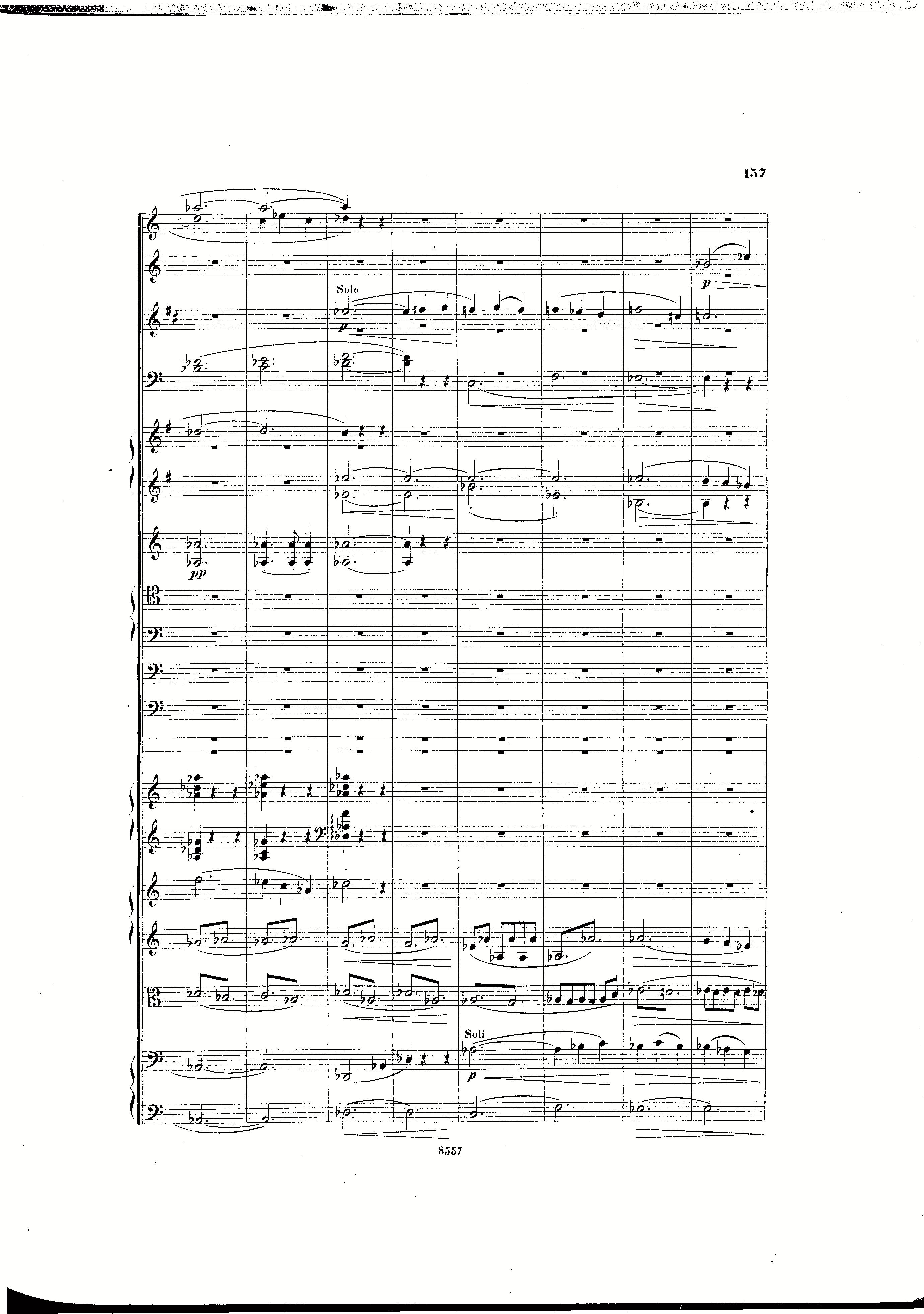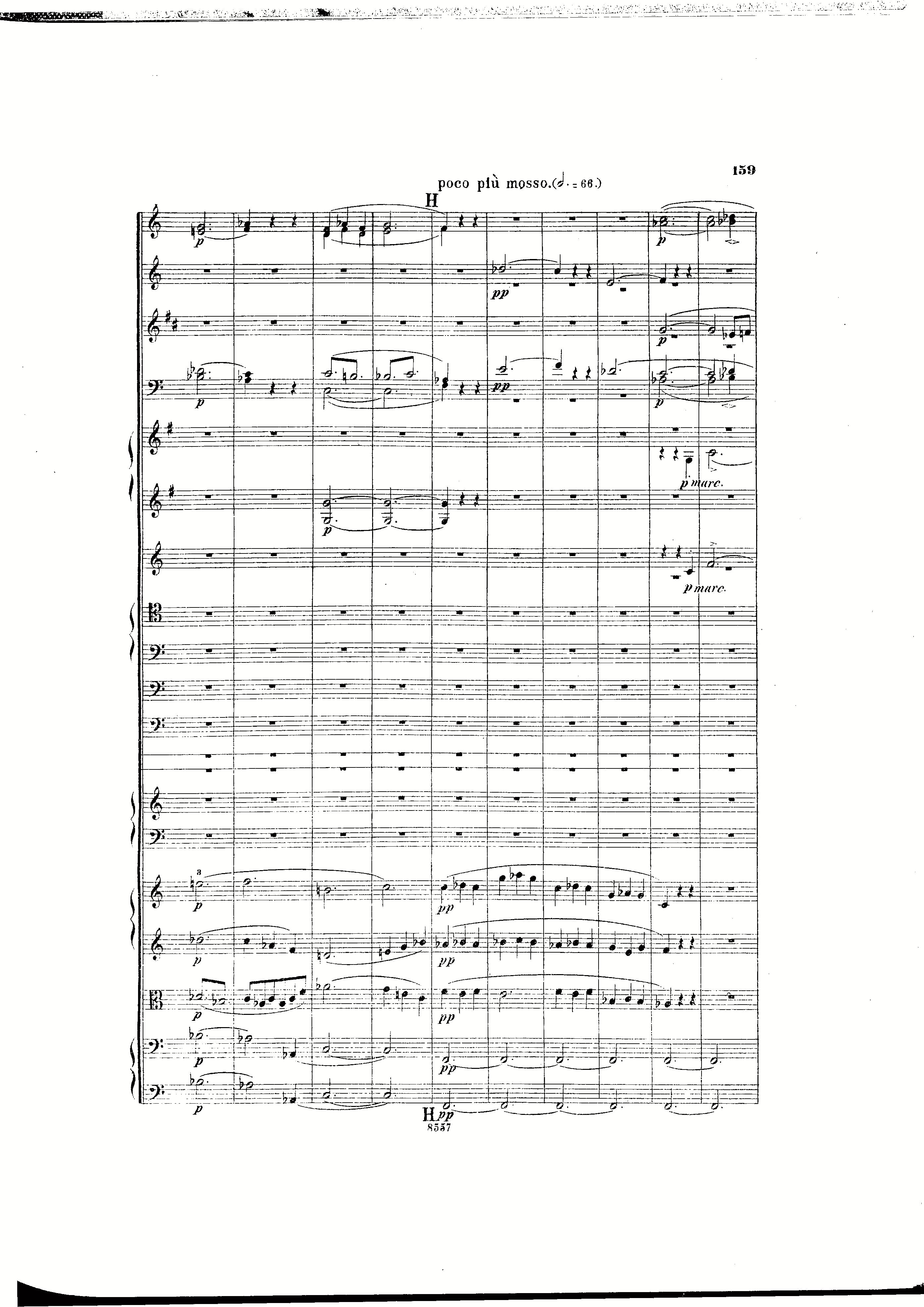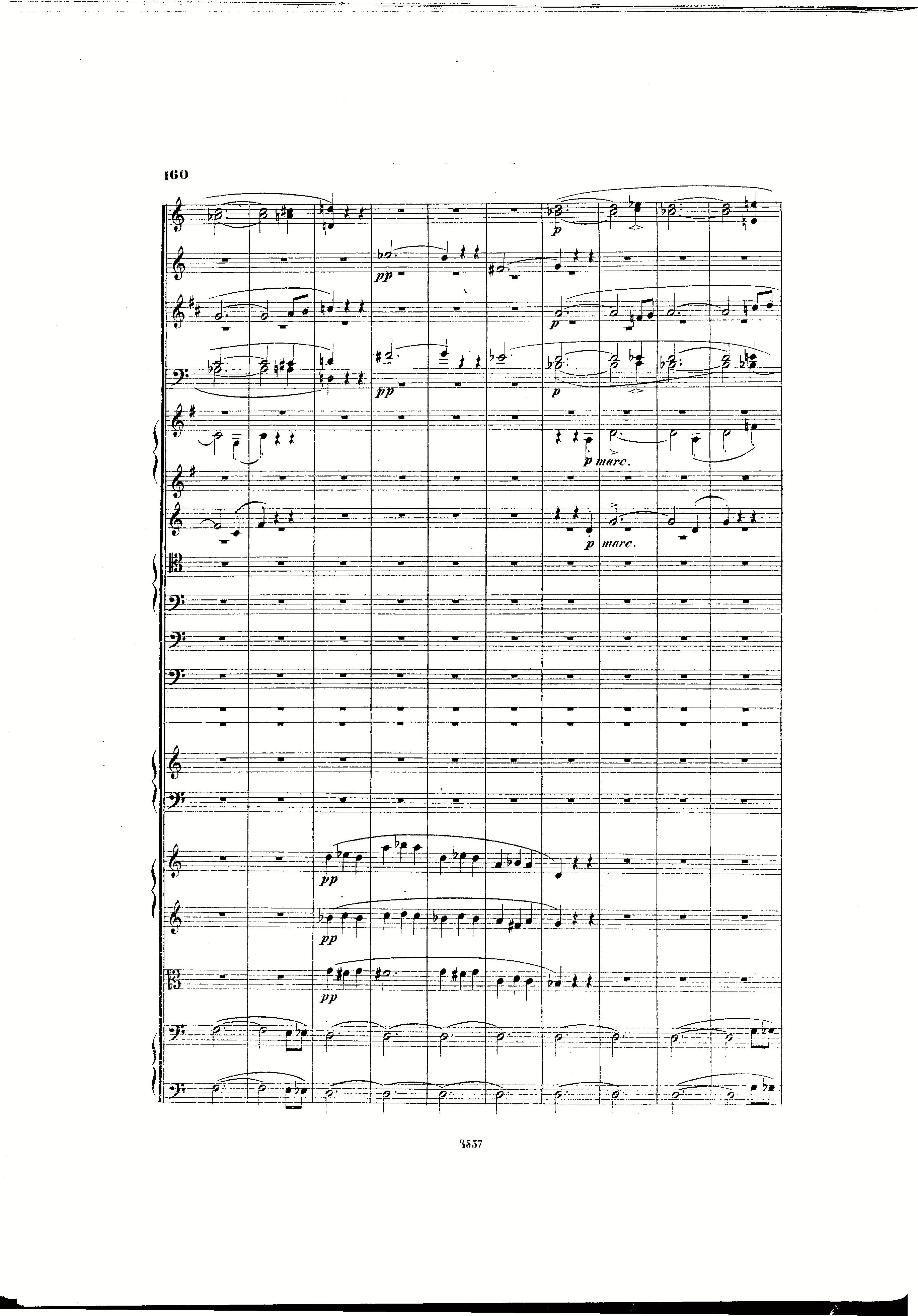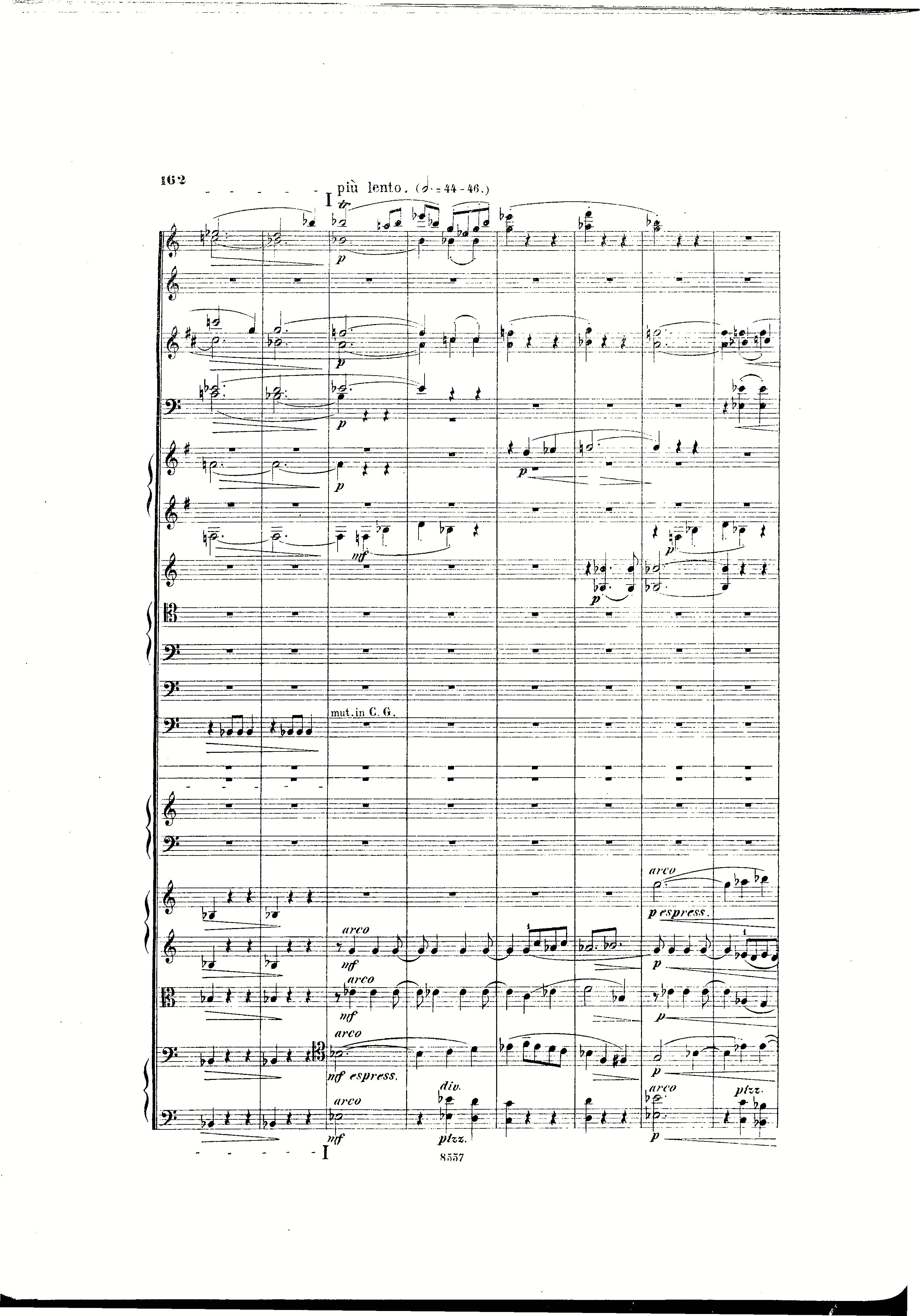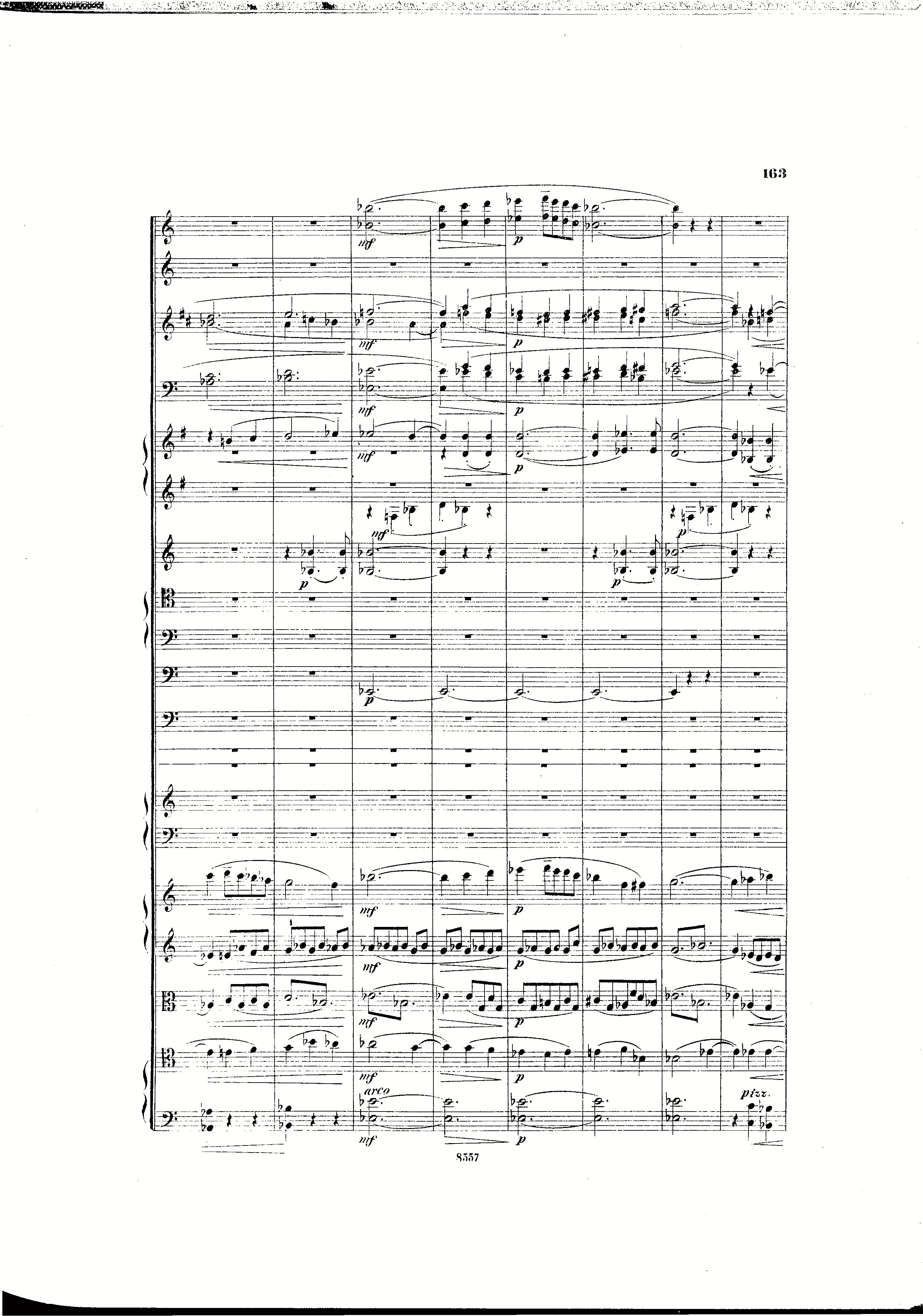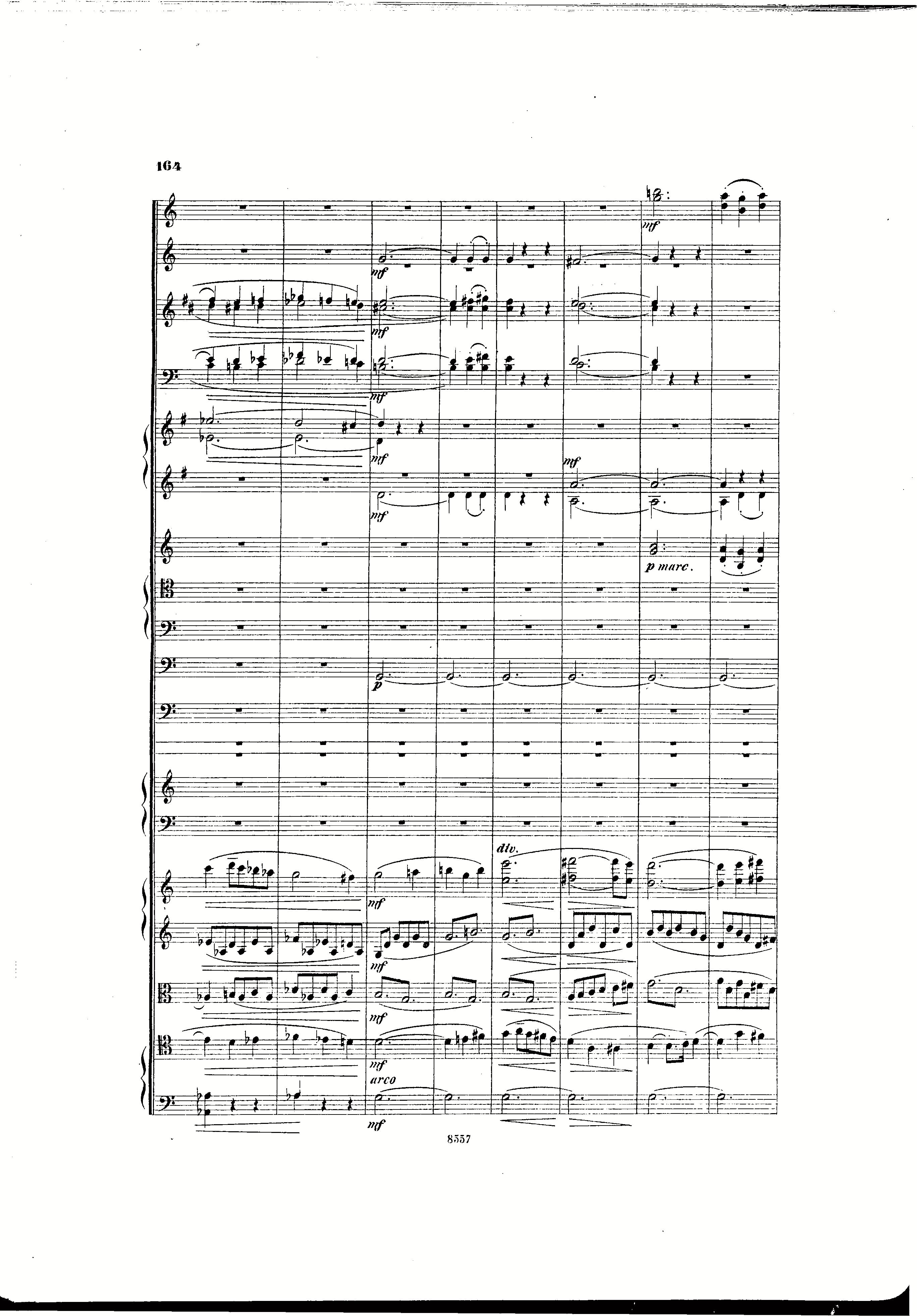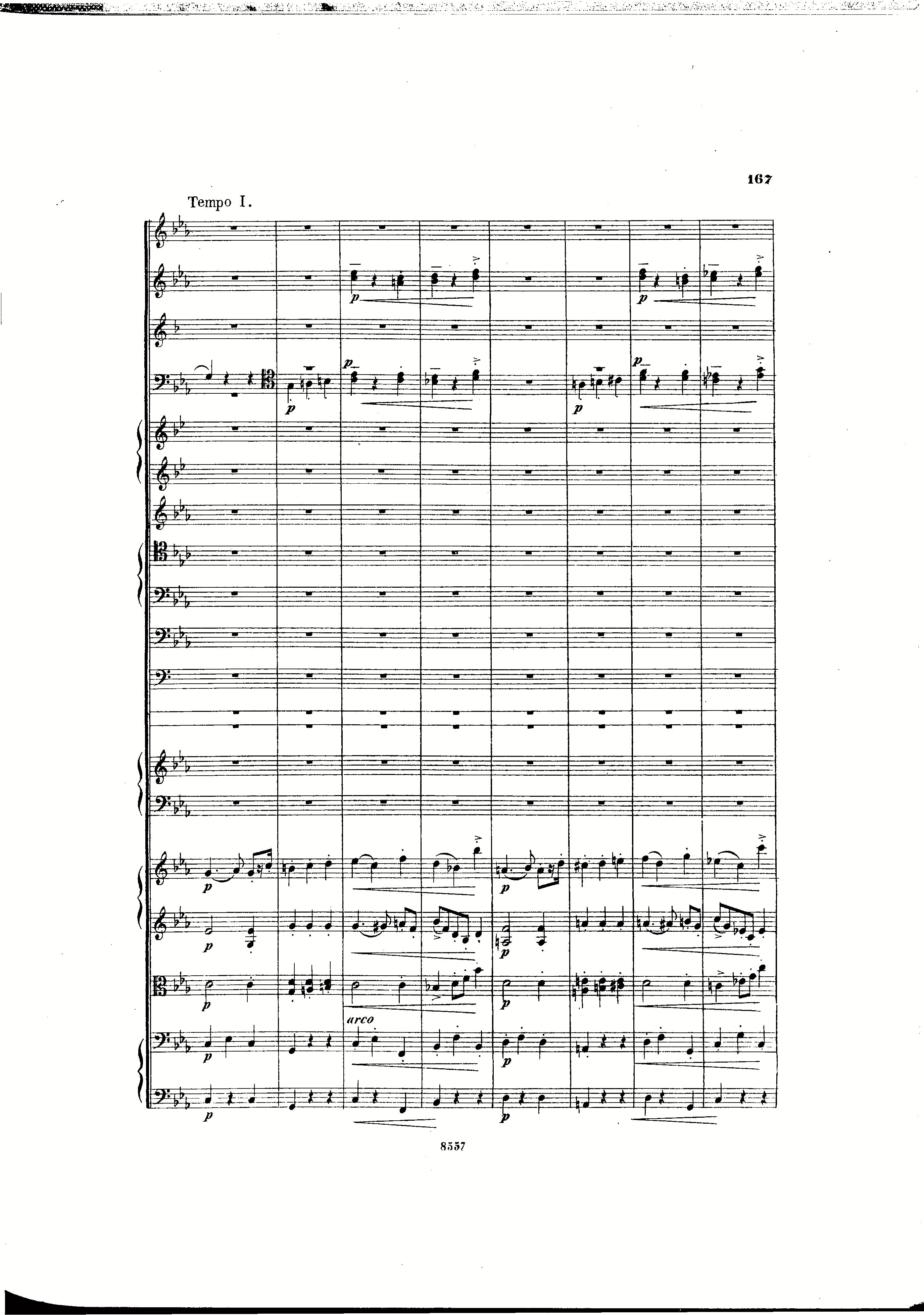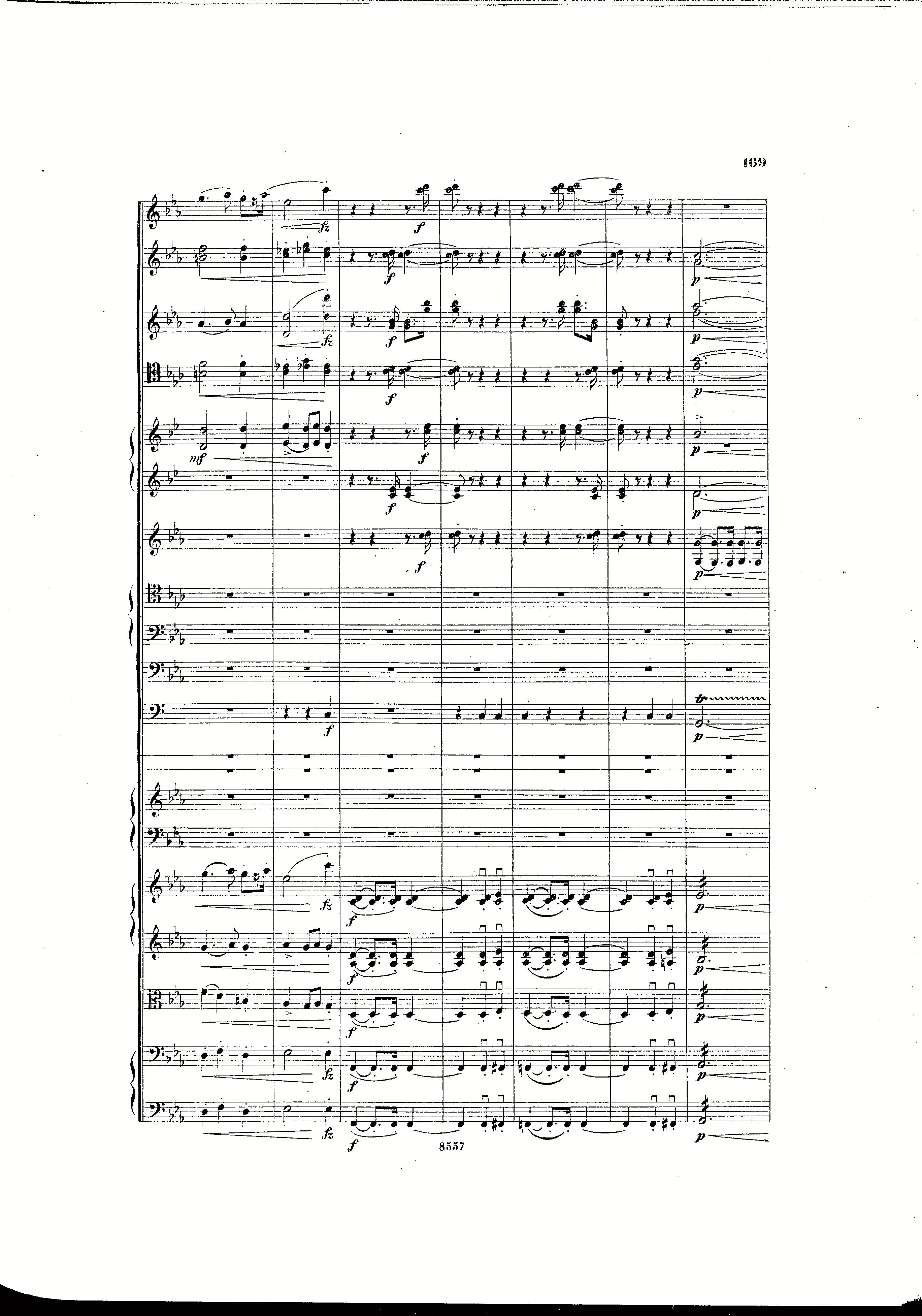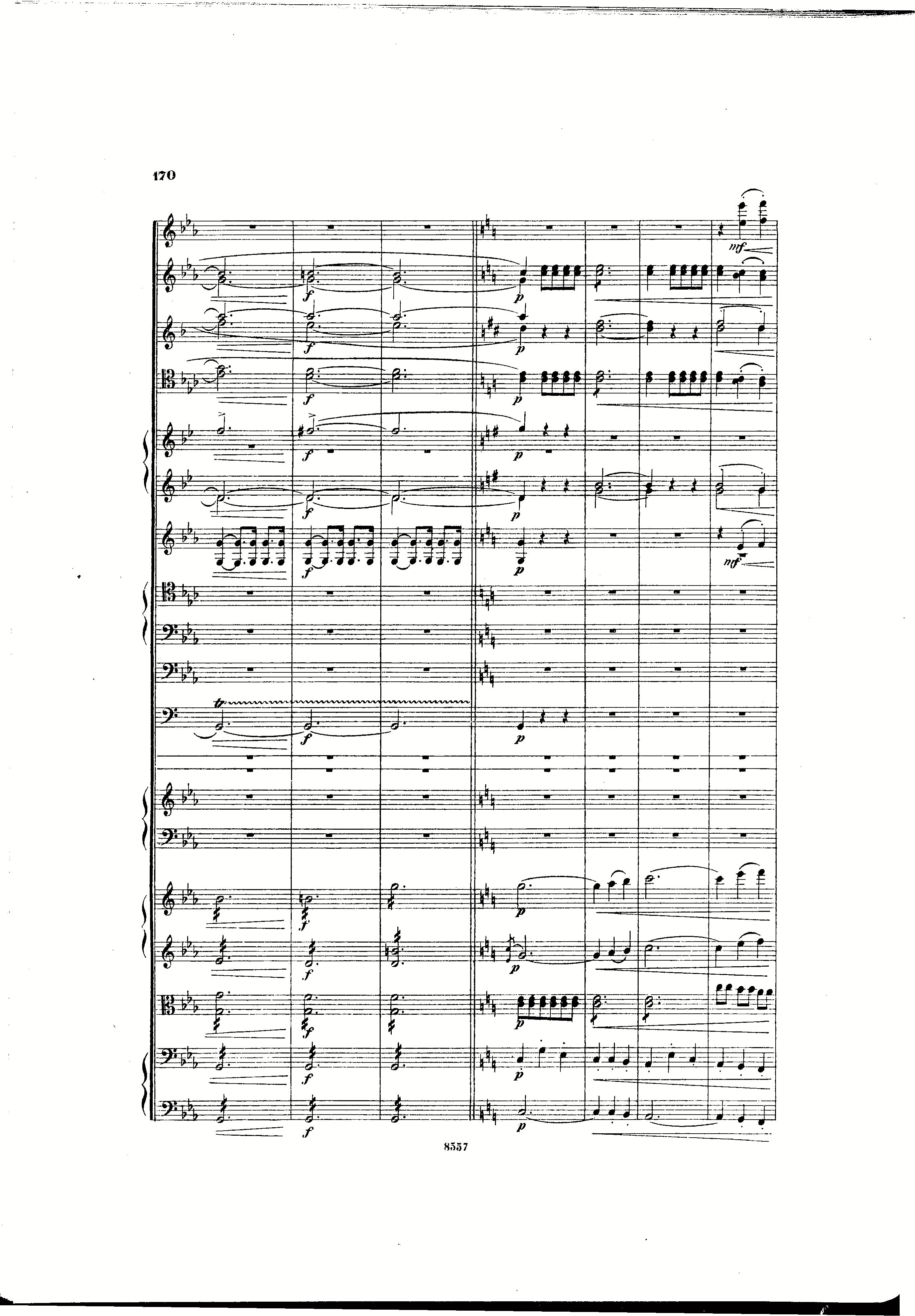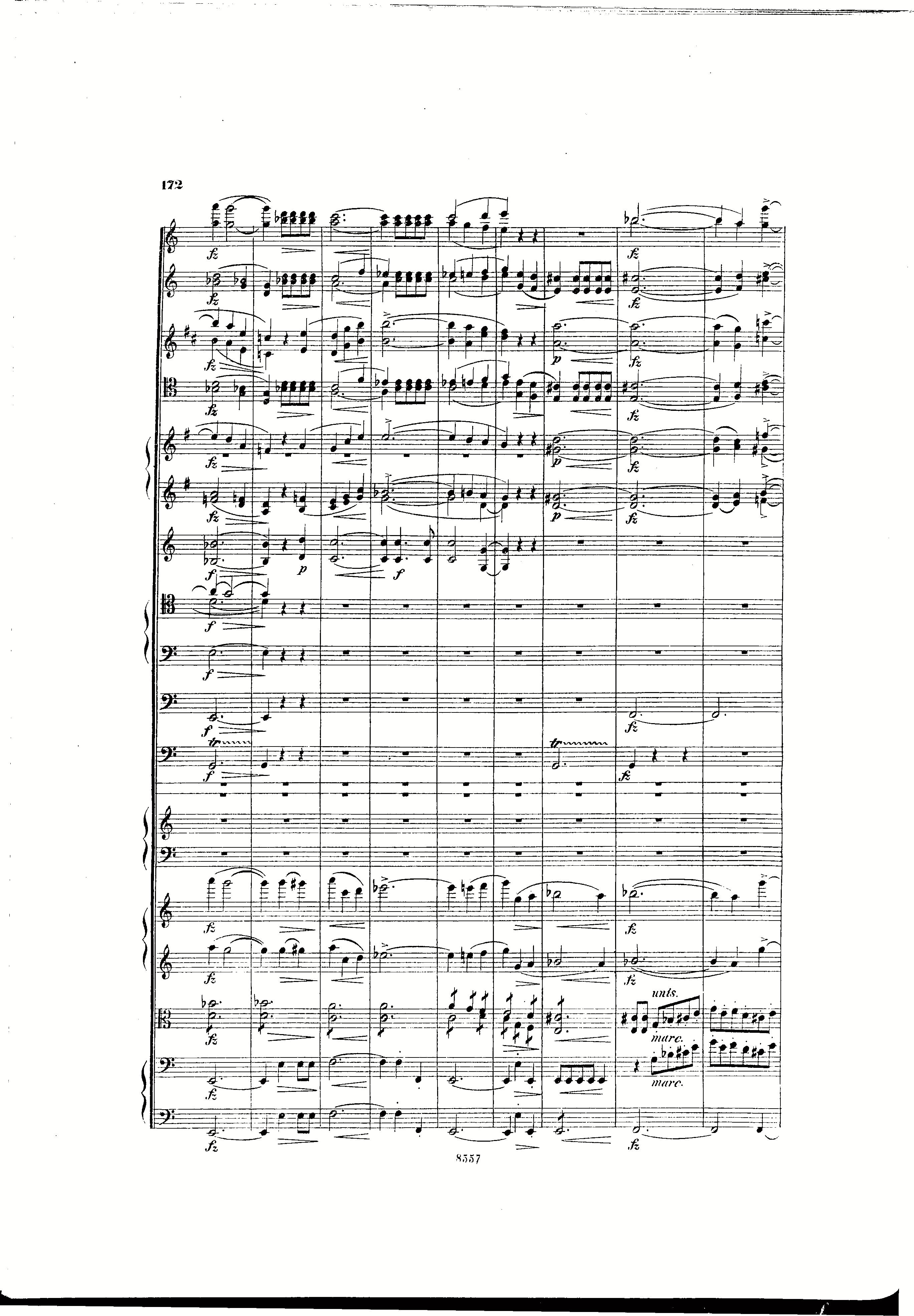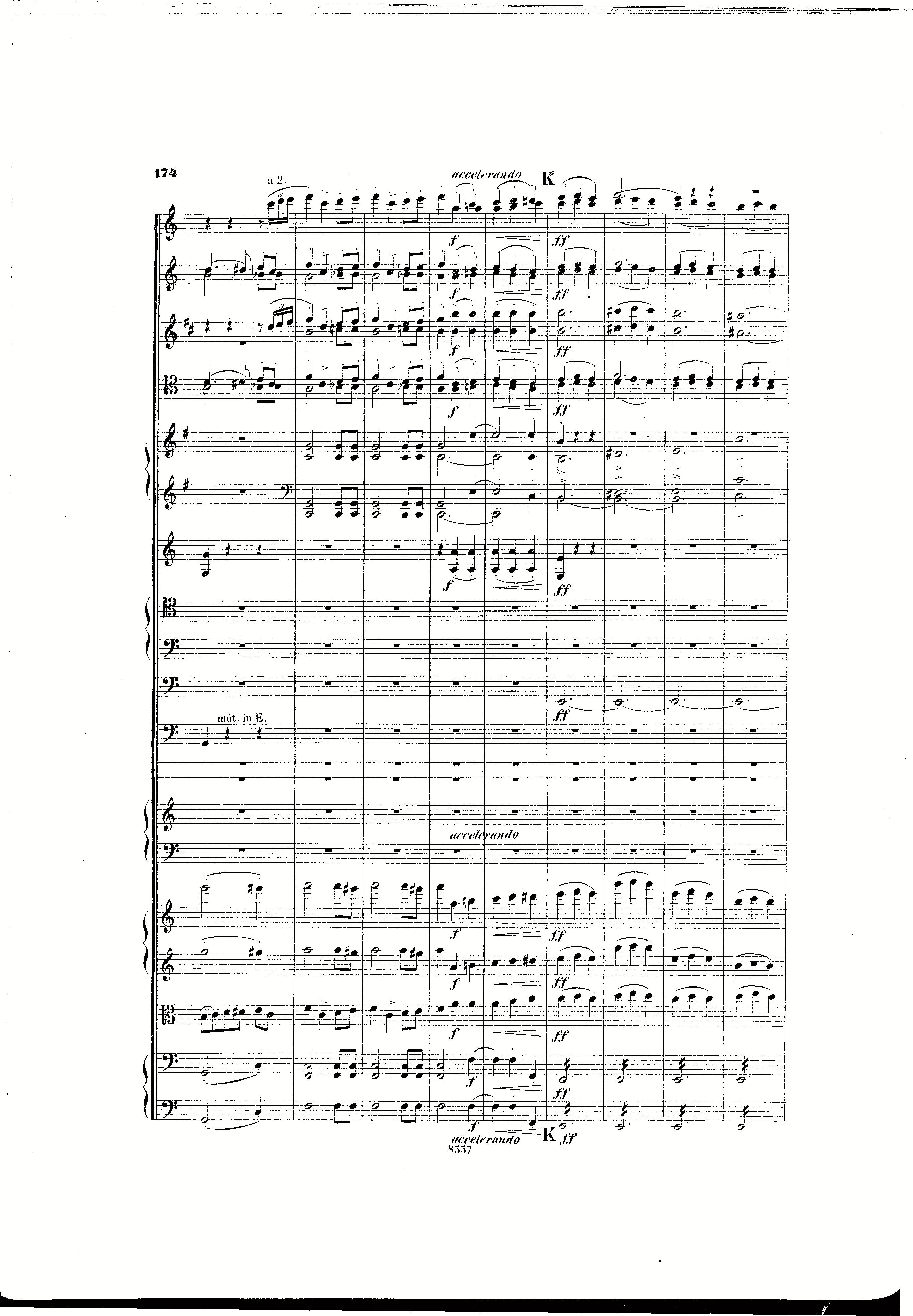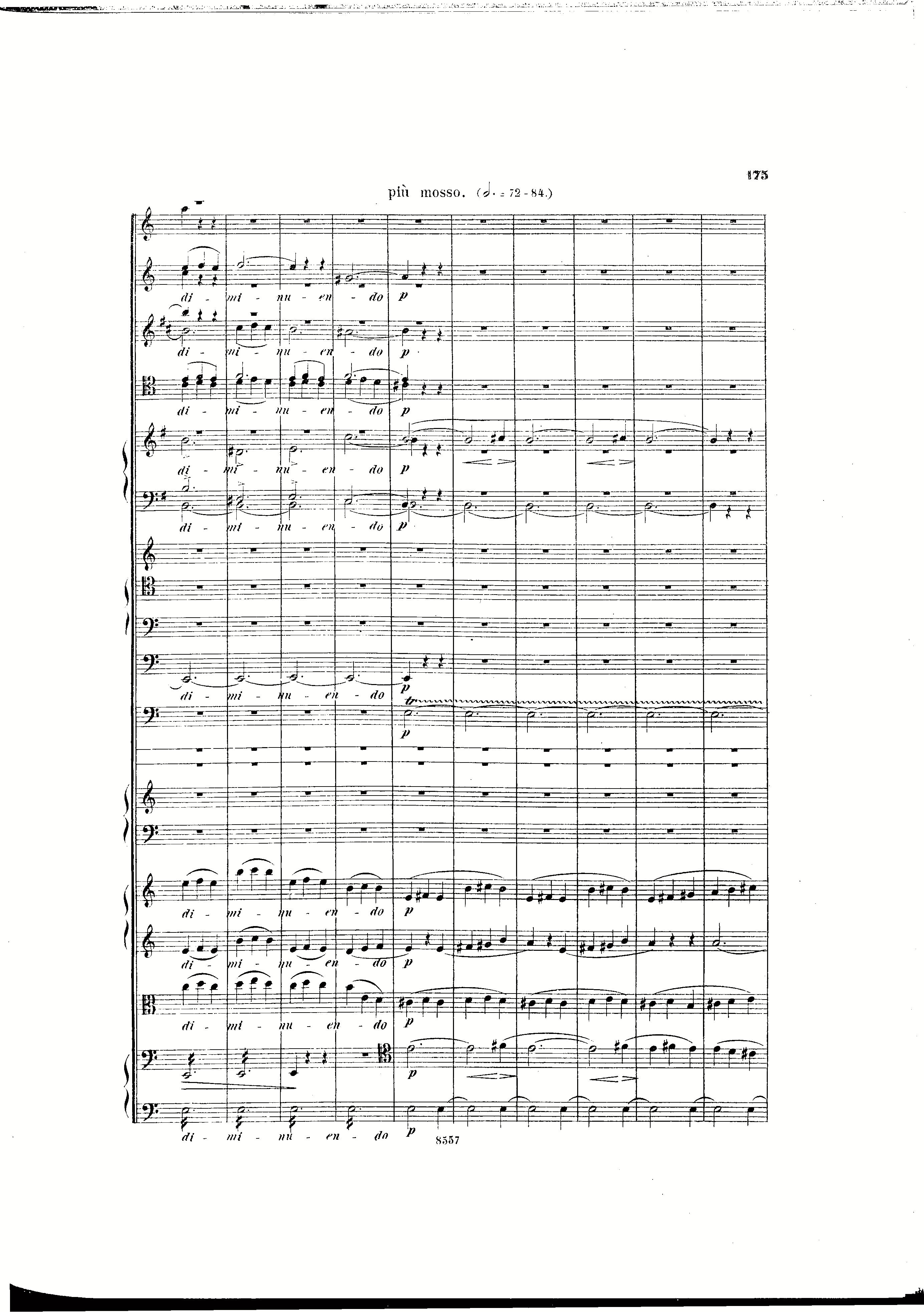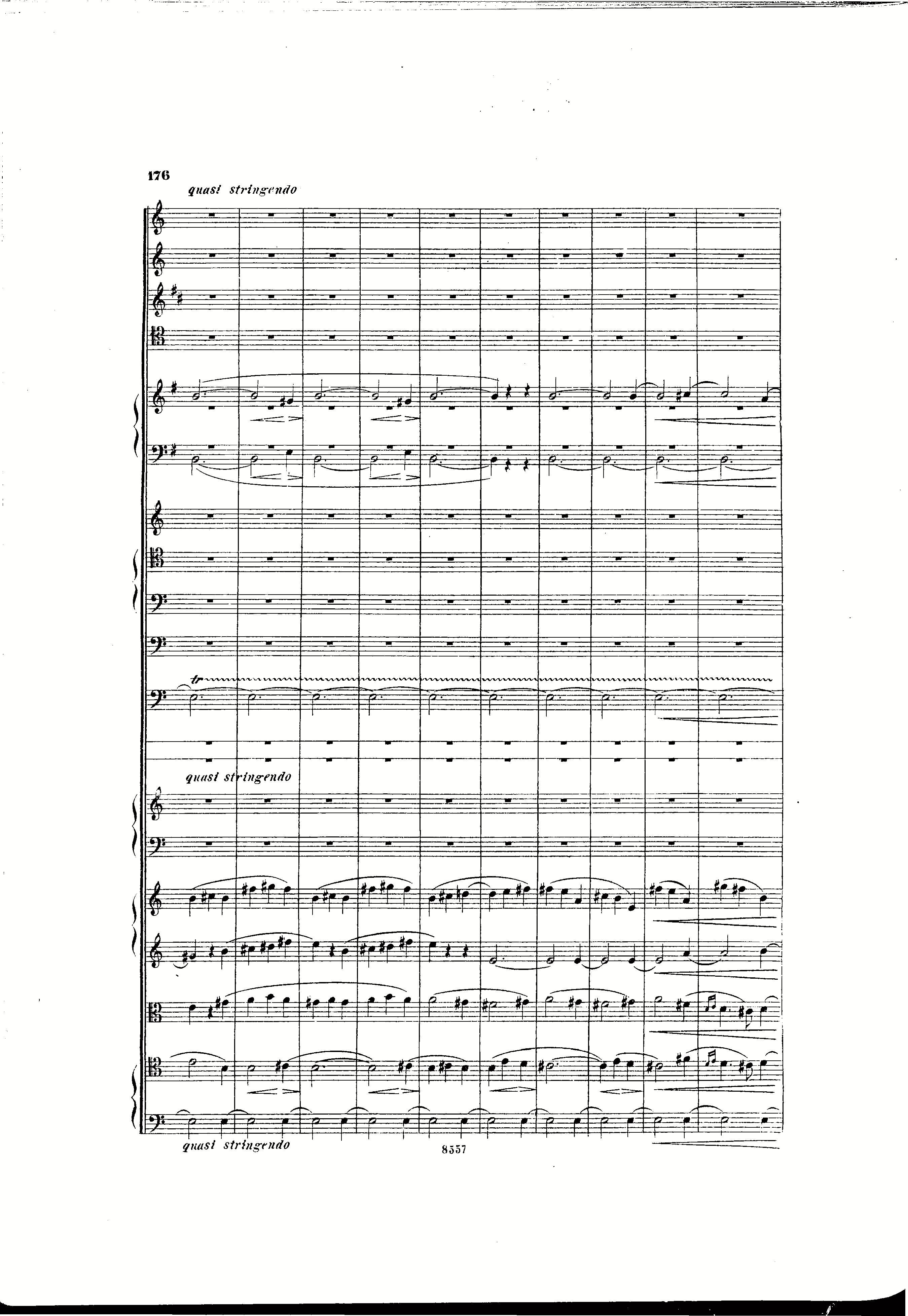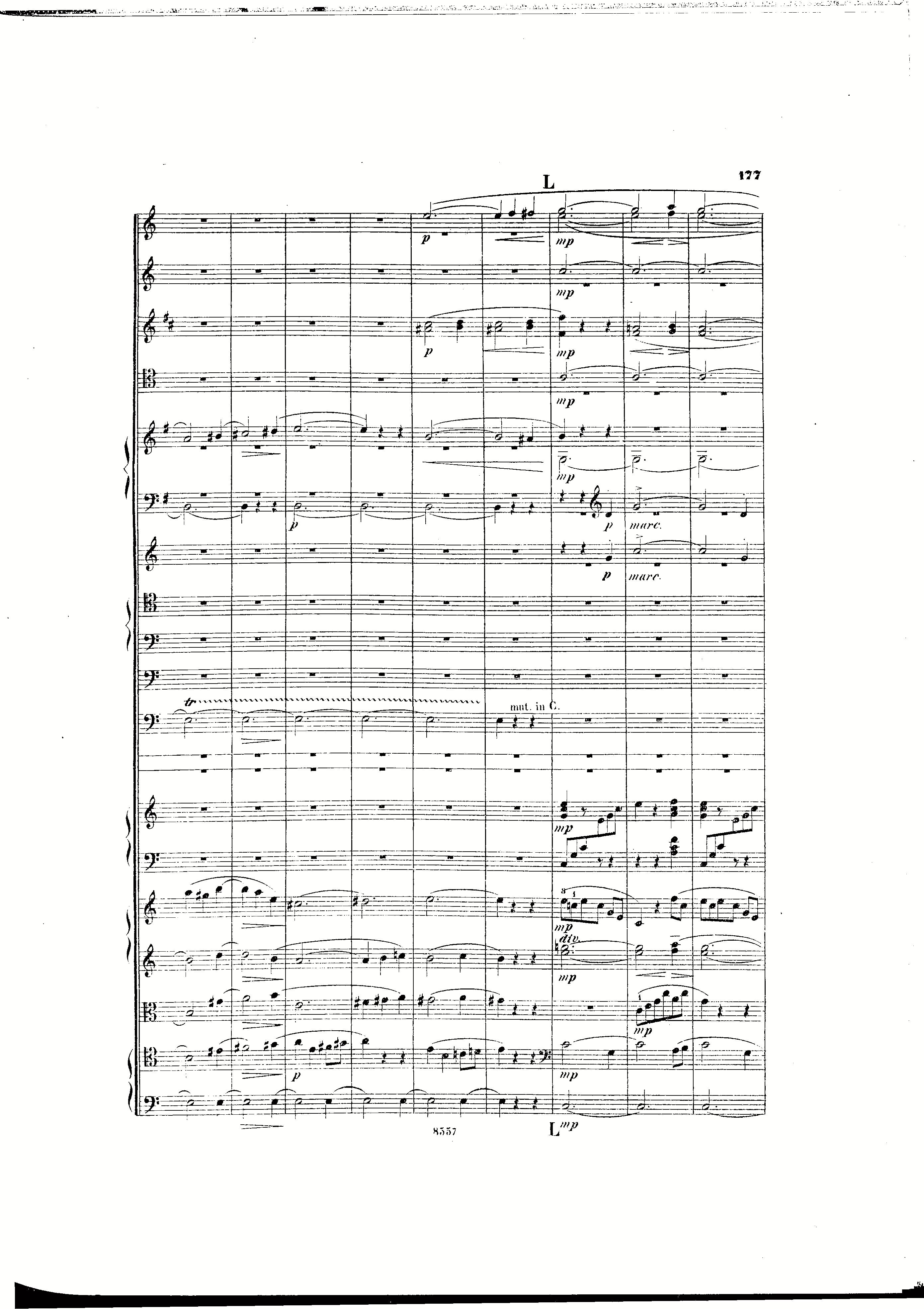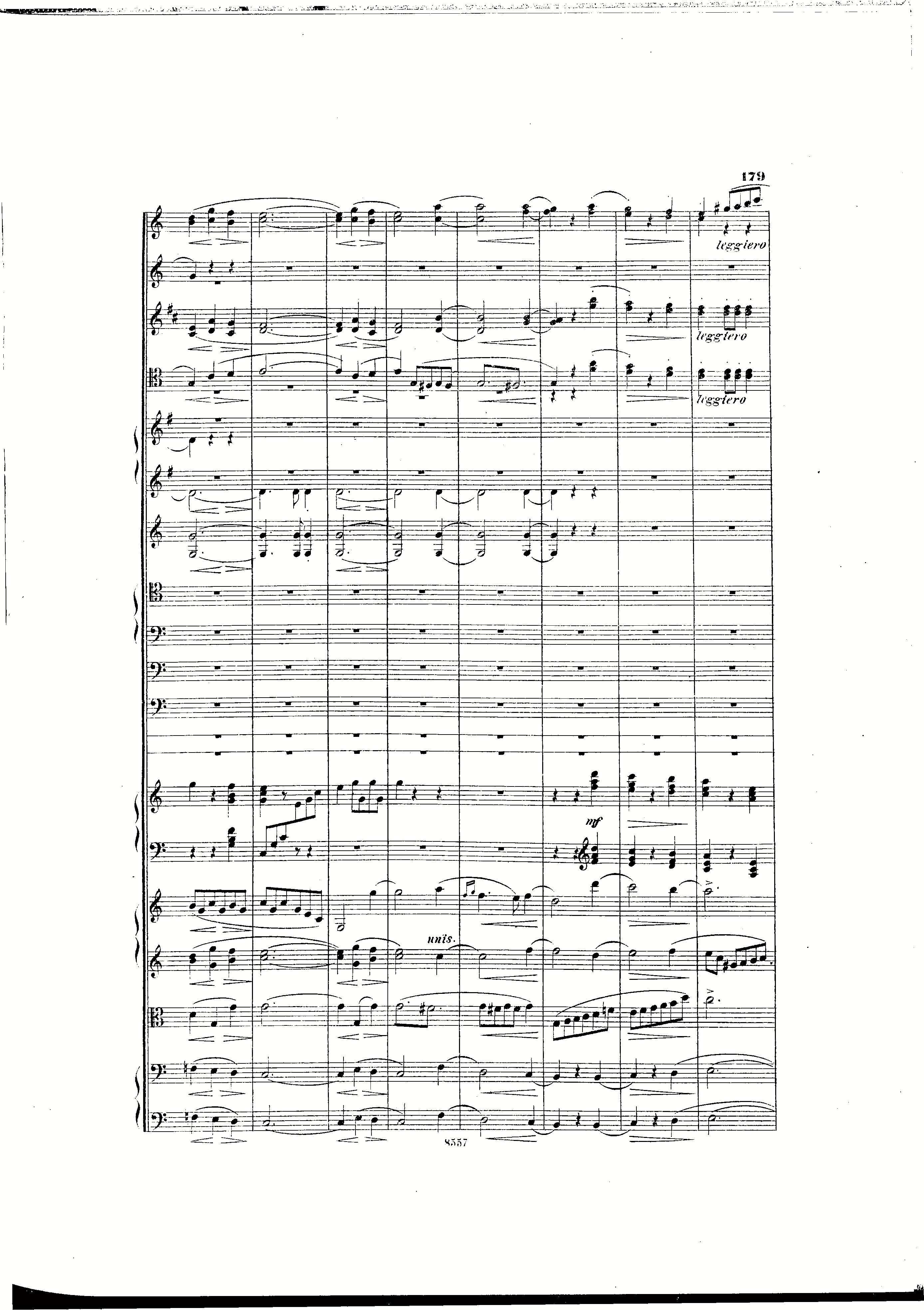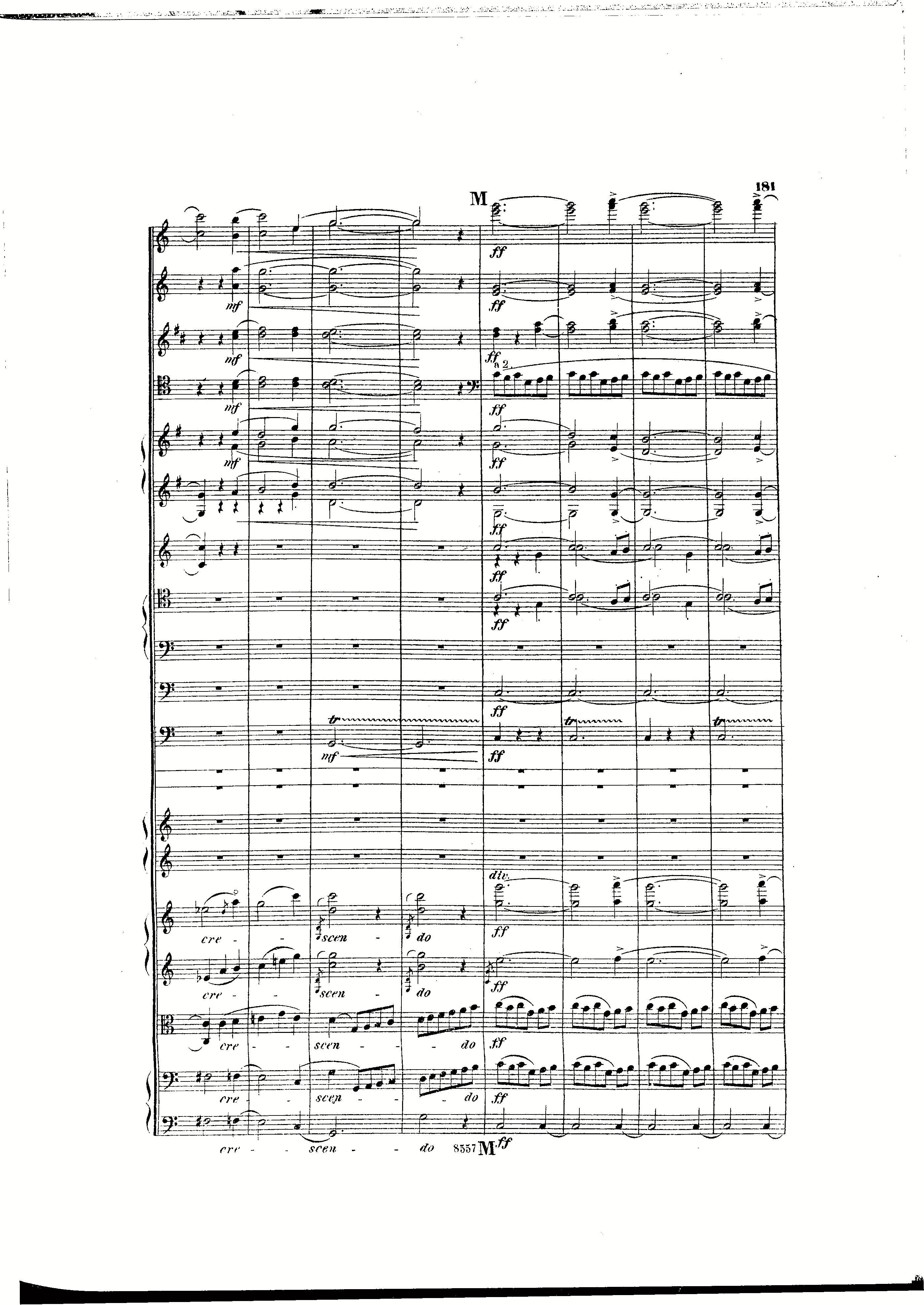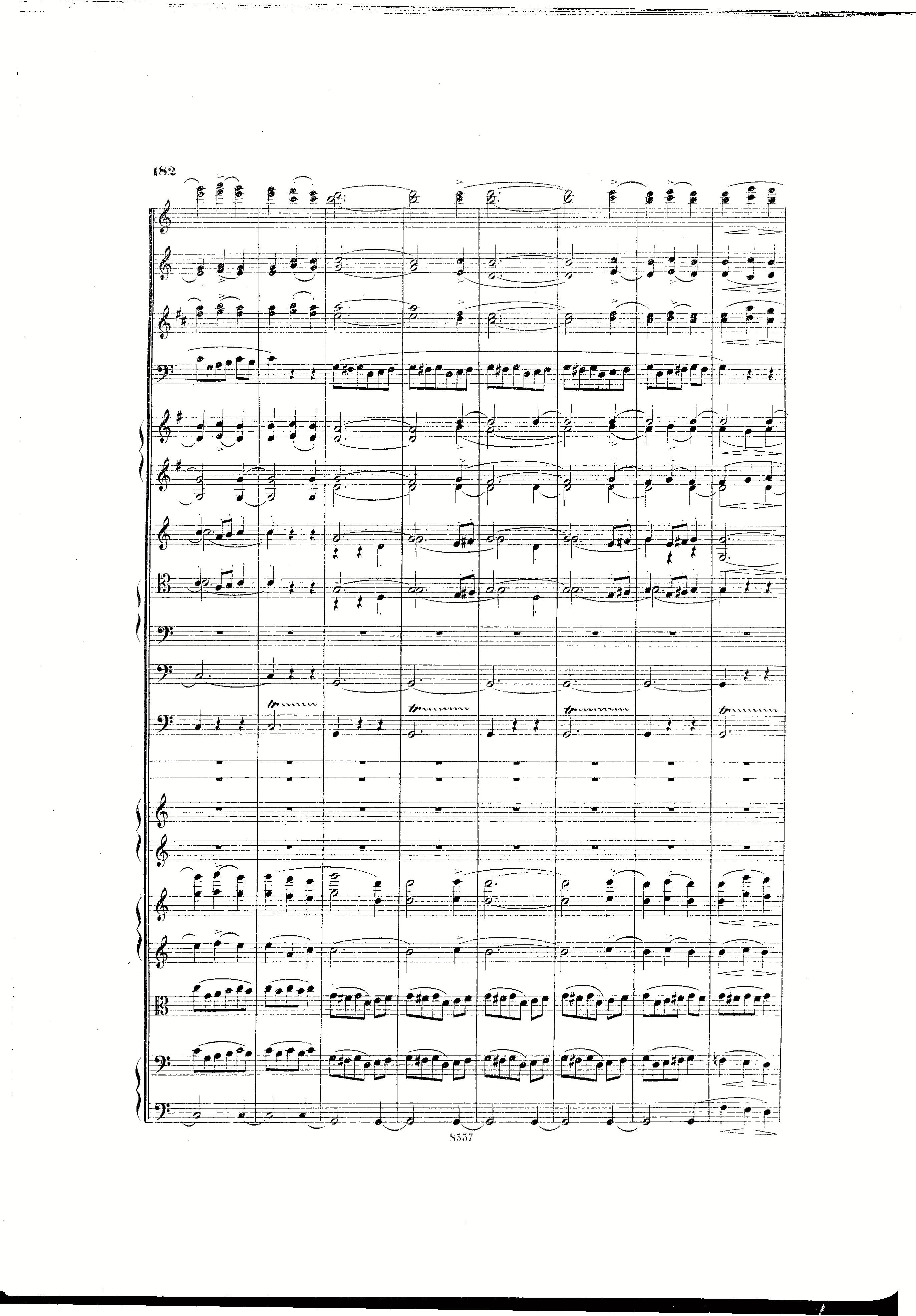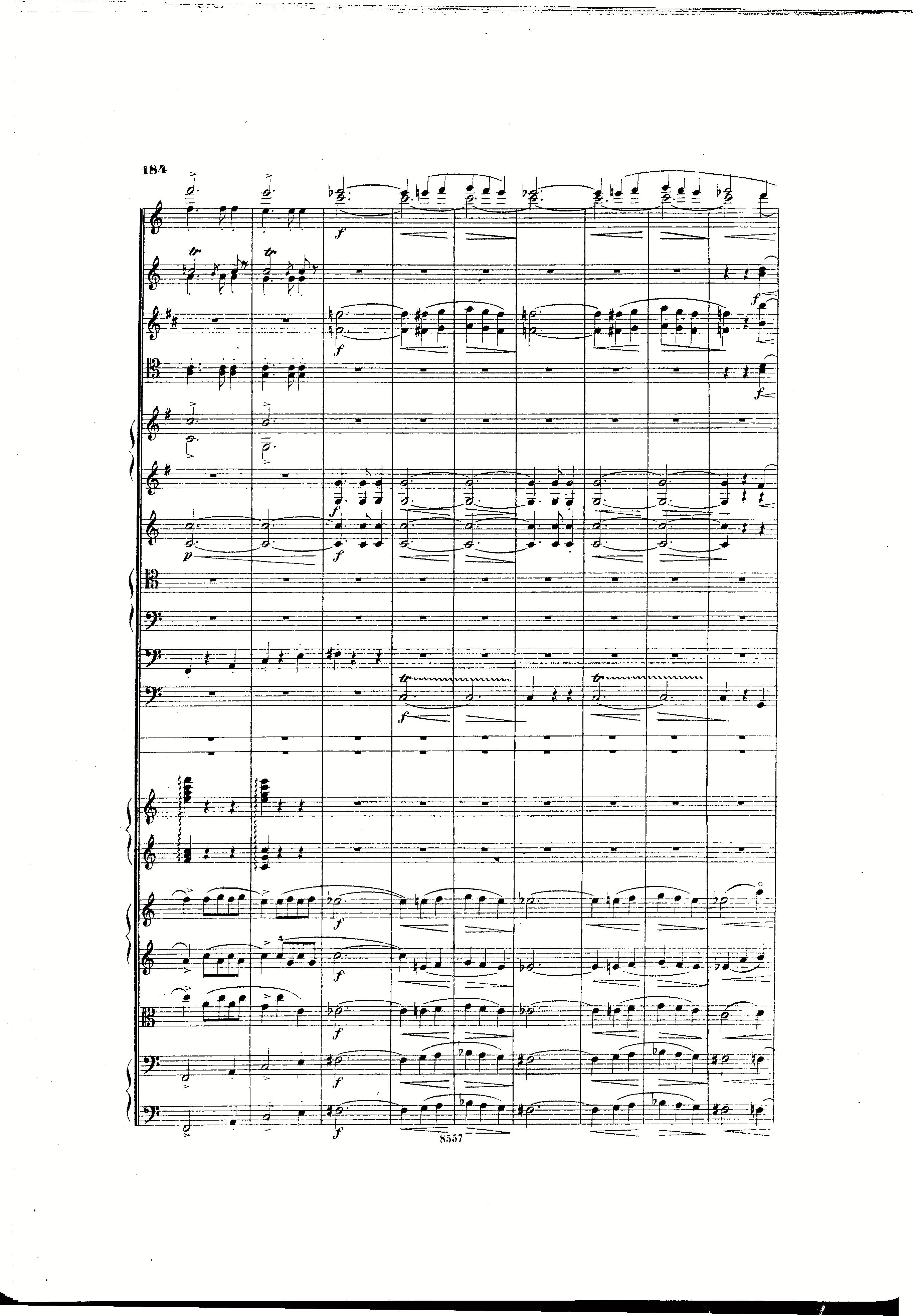Victor Bendix
Symphony No. 1 (1882) in C major, Op. 16 – “Fjeldstigning” for orchestra
Dur. 34′
SCORE

T/ (+45) 3313 5445 · E/ sales@edition-s.dk · W/ www.edition-s.dk Edition·S publications are

Victor Bendix
Symphony No. 1 (1882) in C major, Op. 16 – “Fjeldstigning” for orchestra
Dur. 34′

T/ (+45) 3313 5445 · E/ sales@edition-s.dk · W/ www.edition-s.dk Edition·S publications are
Symphony No. 1 (1882) in C major, Op. 16 – “Fjeldstigning” for orchestra
Dur. 34′
The symphony is based on an allegorical poem by Holger Drachmann. Under the image of laborious wandering towards the temple on the mountain top, it deals with mankind’s liberating development from frivolous planlessness to a life led by a higher idea.
In the first part of the symphony – Kampen forud for beslutningen (The struggle before the decision) – there is a clash between the three motifs which depict the ideal, discouragement, and hope.
The second part, a Nocturne, is the nocturnal wandering through the mountain forest, which alluring memories of the past seek to stop.
In the third part, Marcia solenne, the consecration temple is depicted, and finally in the last part the joy of life through the work in the service of the idea.
Symfonien støtter sig til et allegorisk digt af Holger Drachmann. Under billedet af møjsommelig vandring mod templet på bjergtinden behandler det et menneskes frigjørende udvikling fra letsindig planløshed til en af en højere idé ledet tilværelse.
I den forste del af symfonien – Kampen forud for beslutningen – brydes de tre motiver, som skildre idealet, mismodet og håbet.
Anden del, Nocturnen, er den natlige vandring gennem bjergskoven, som dragende fortidsminder søge at standse.
I tredie del, Marcia solenne, skildres indvielsen templet, og endelig i sidste del, livsglæden gjennem arbejdet i idéens tjeneste.
2 Flutes (2nd doubling Piccolo)
2 Oboe
2 Clarinets in Bb
2 Bassoons
4 Horns in F
2 Trumpets in C
2 Trombones (Bass) Trombone
Tuba
Timpani Percussion
Violin I
Violin II
Viola
Violoncello Contrabass
Flauti. (113<LQnltcrn.colpicrolo.)
Oboi. d!arinetti in B.
Fagotti; I. II.
Corni in F. III. IV.
Trombe in C.
r. rr. Tromboni. III.
Tuba.
Timpani 'in C. G.
Triangolo. Piatti. Gr. Cassa.
Violino J.
Violino II.
\'iola.
Violoncello.
Basso.

Ouverture.
Arlagio ma non troppo. cJ








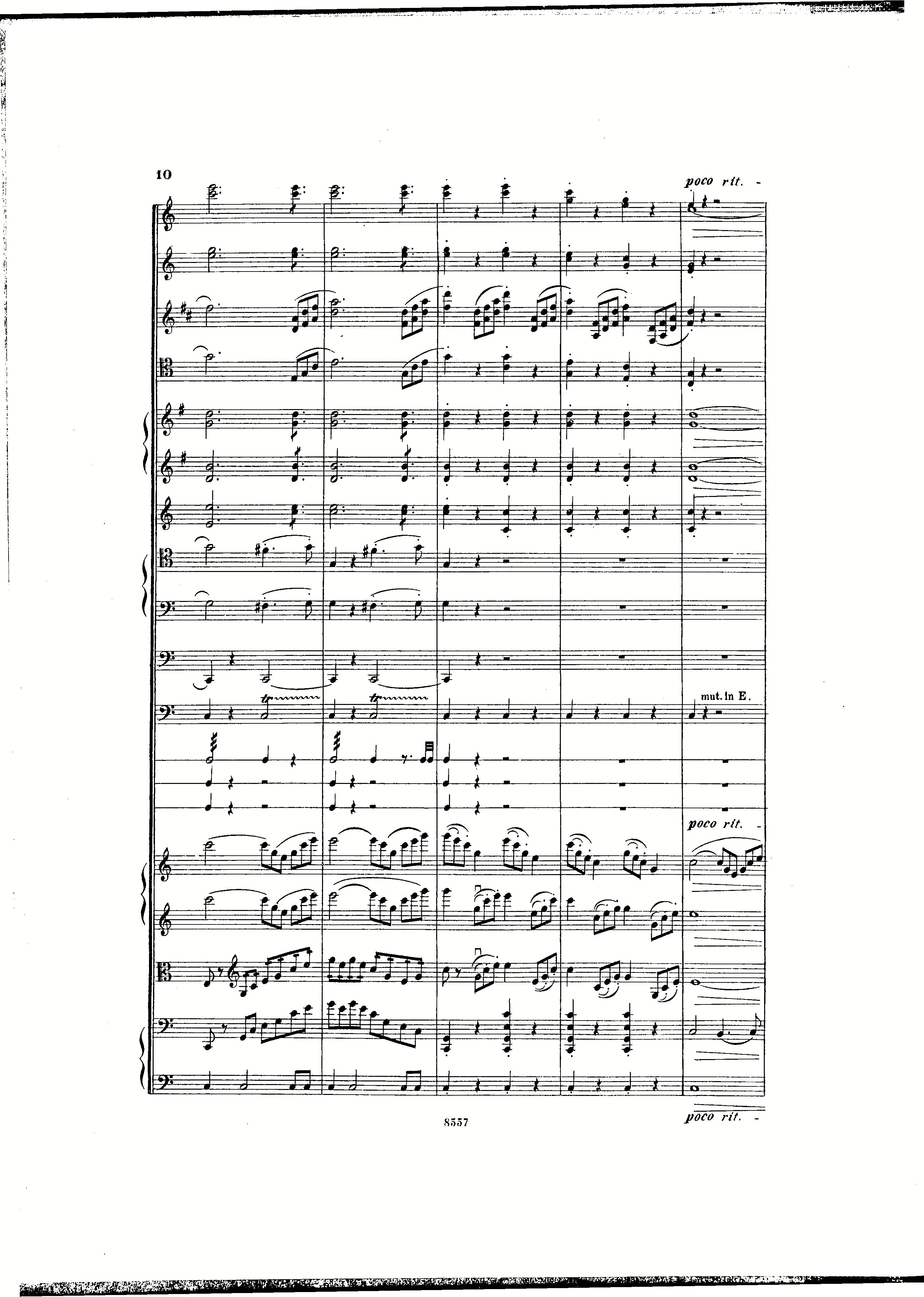
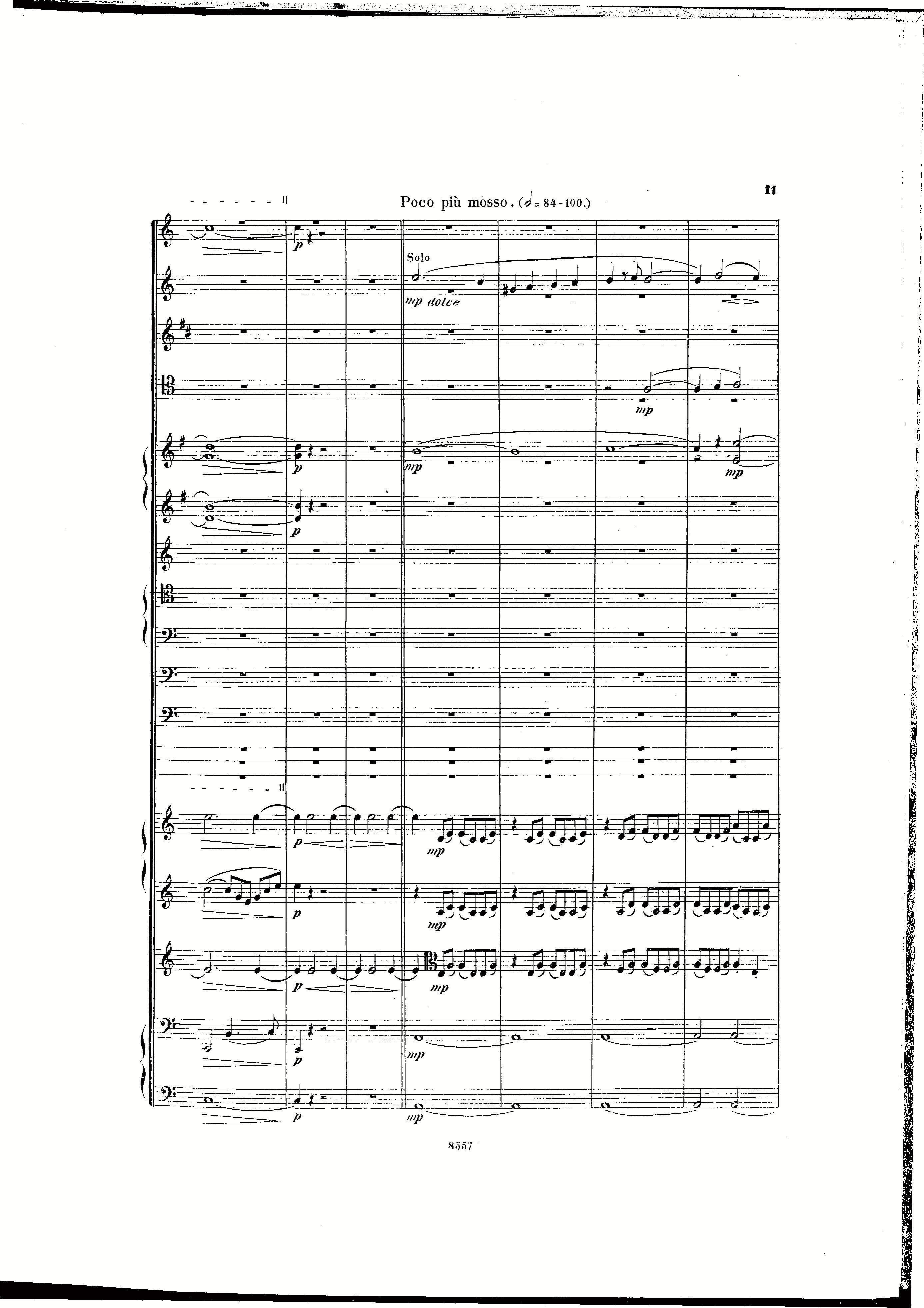





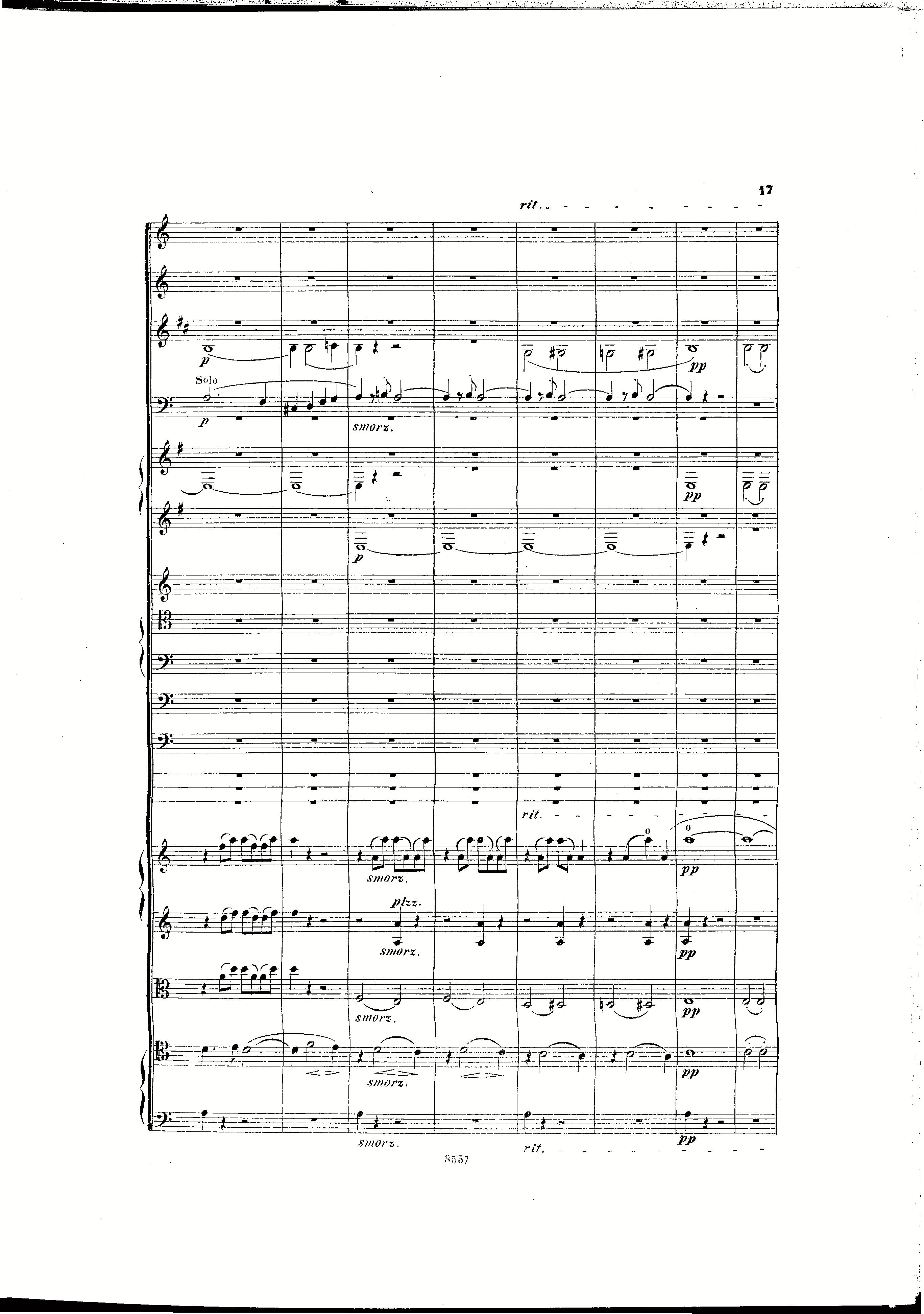

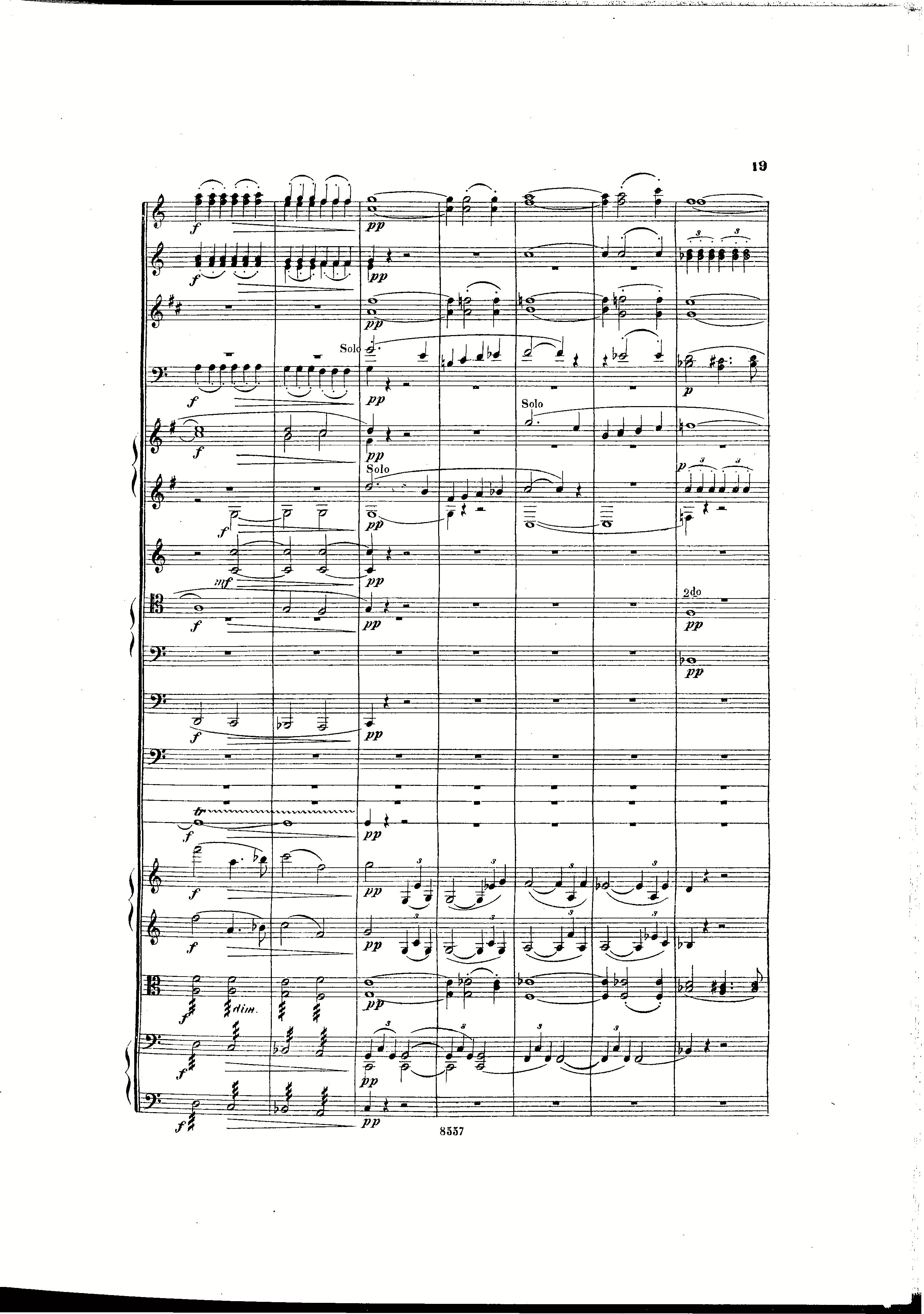



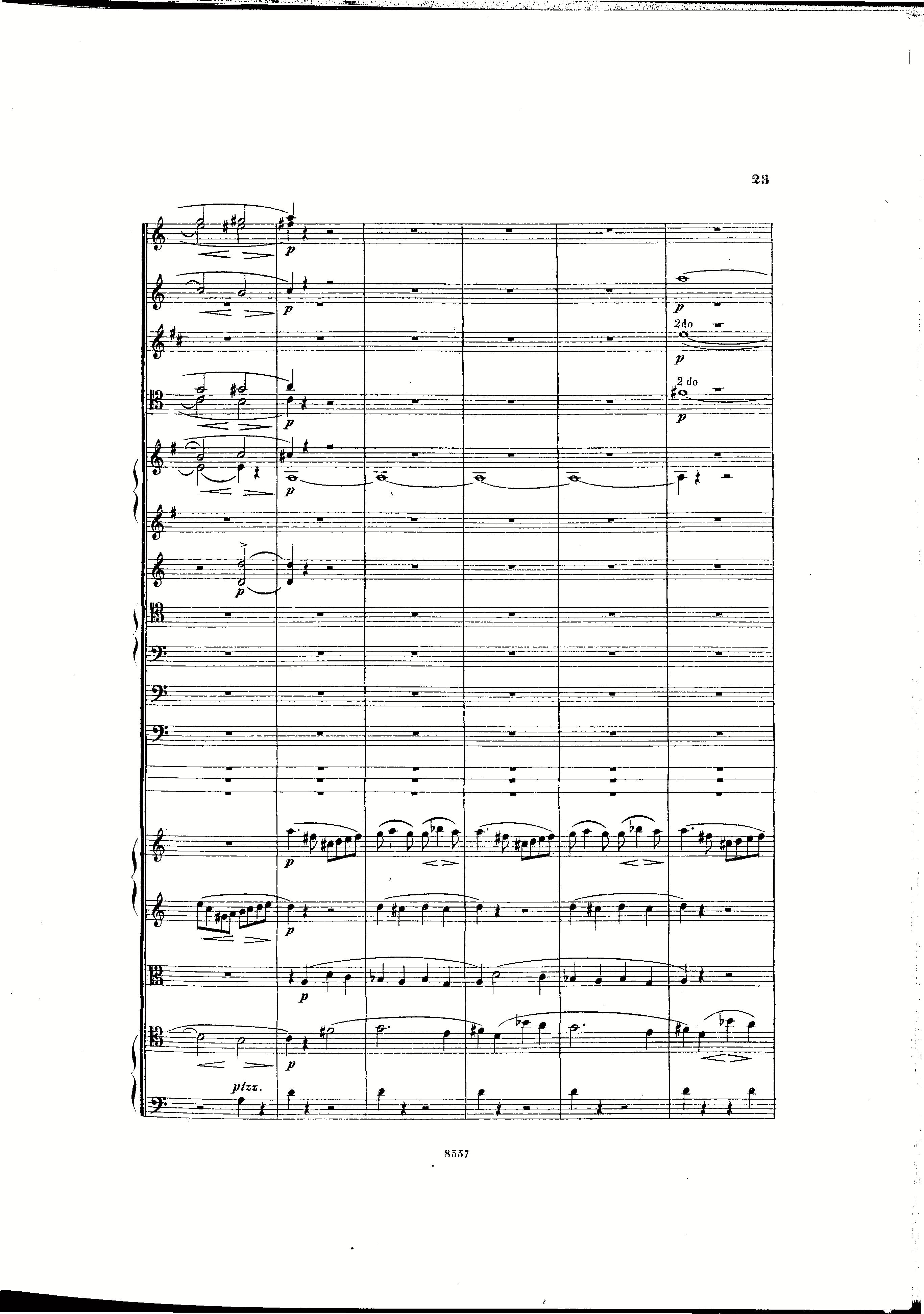


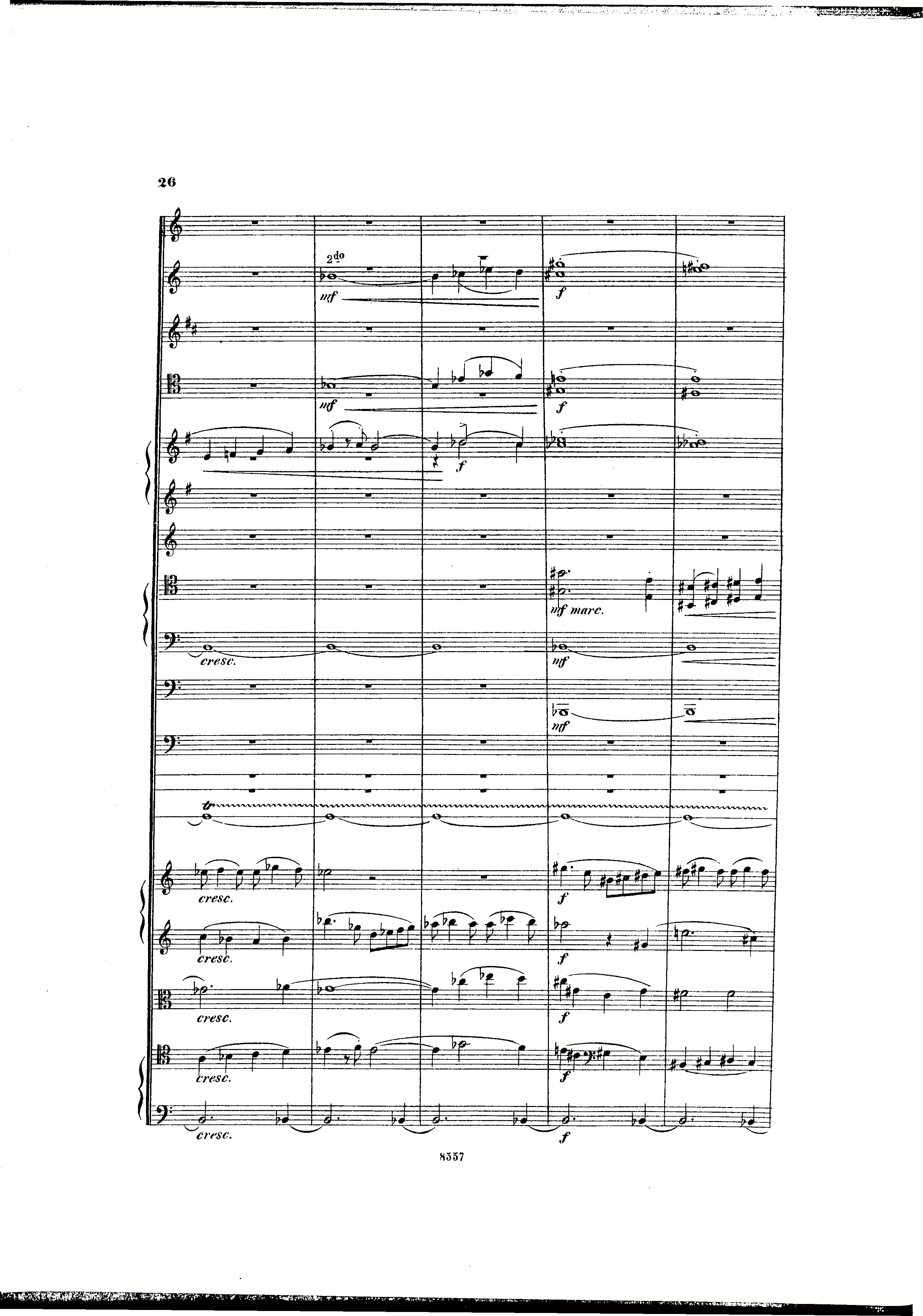

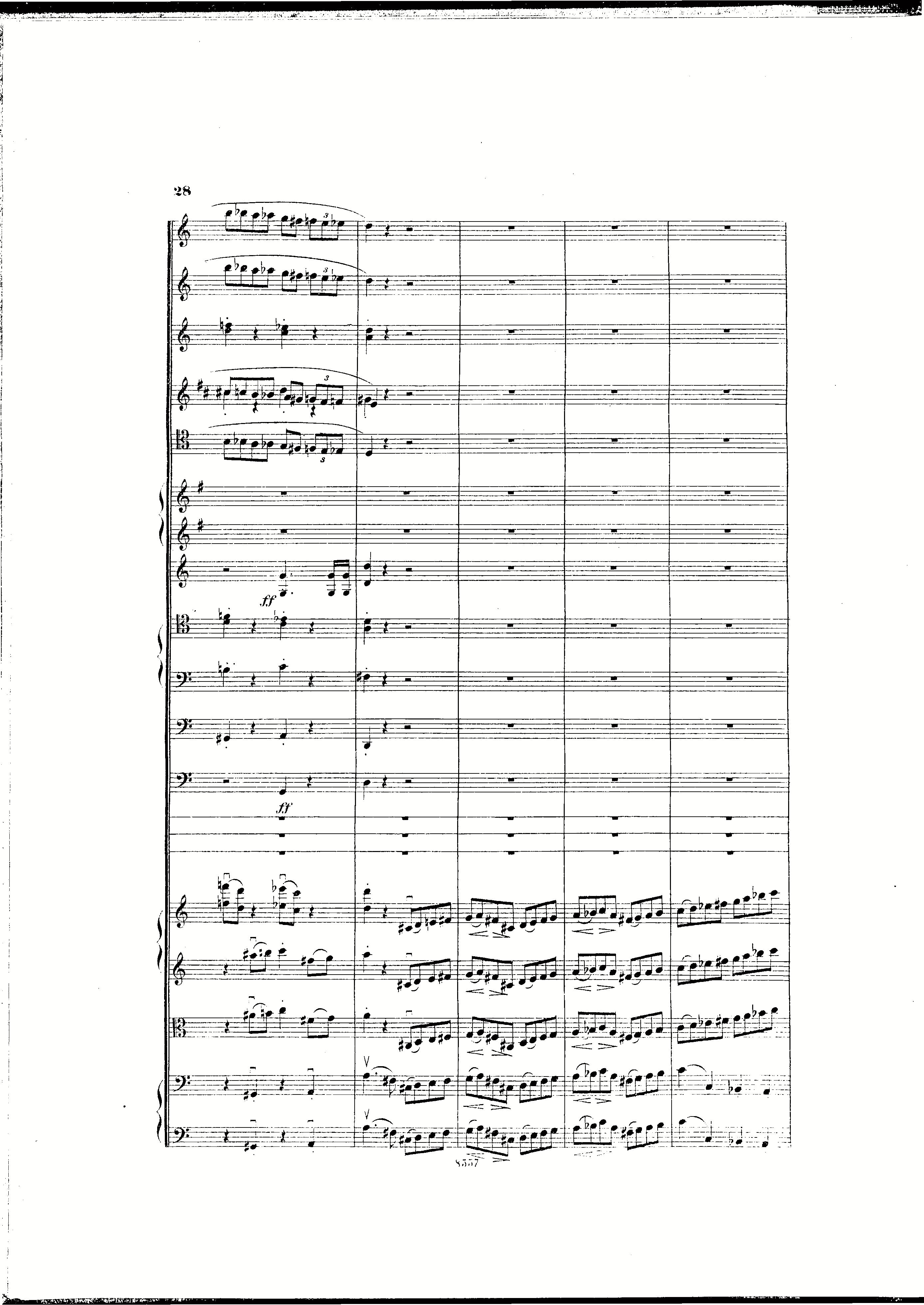



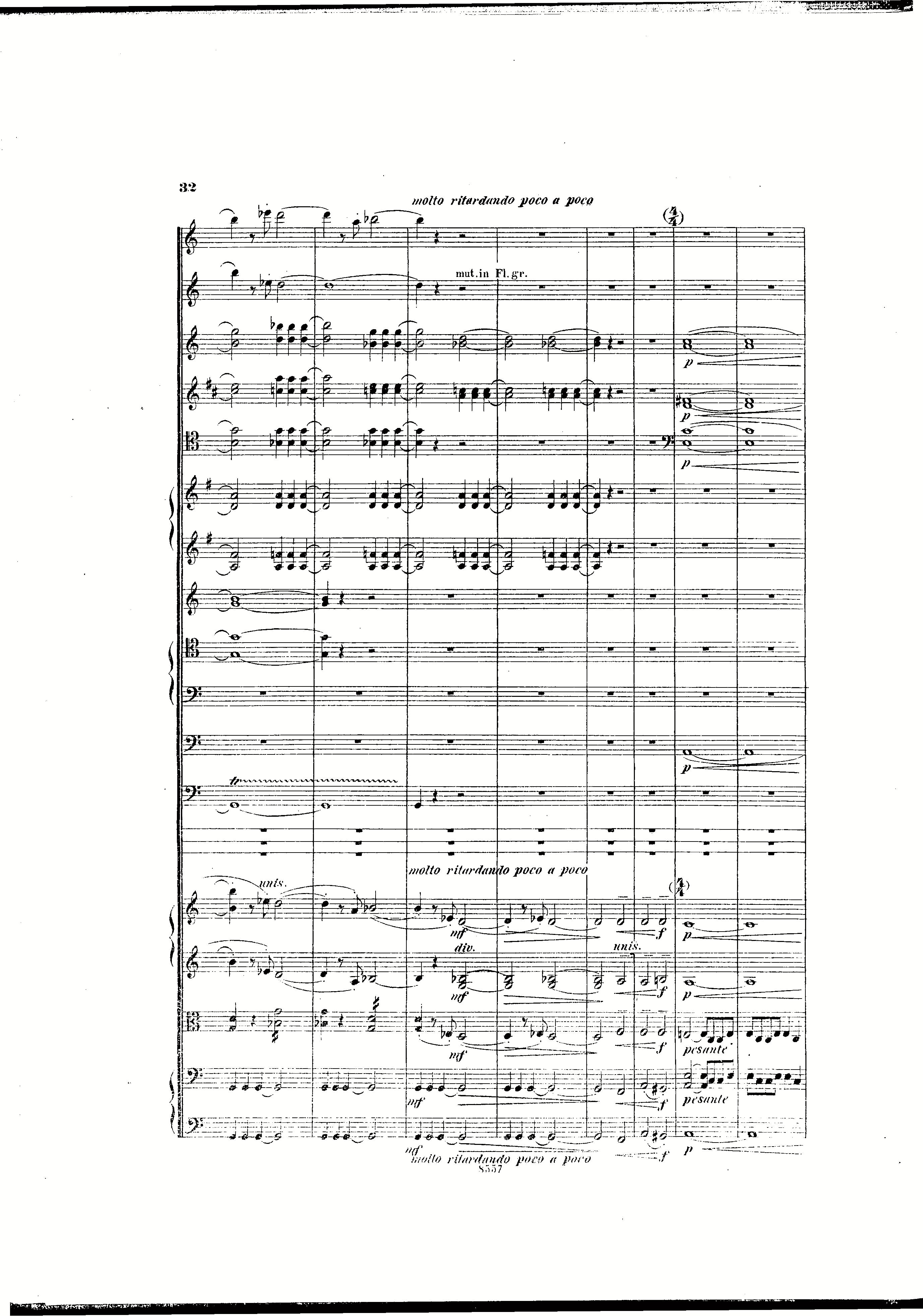

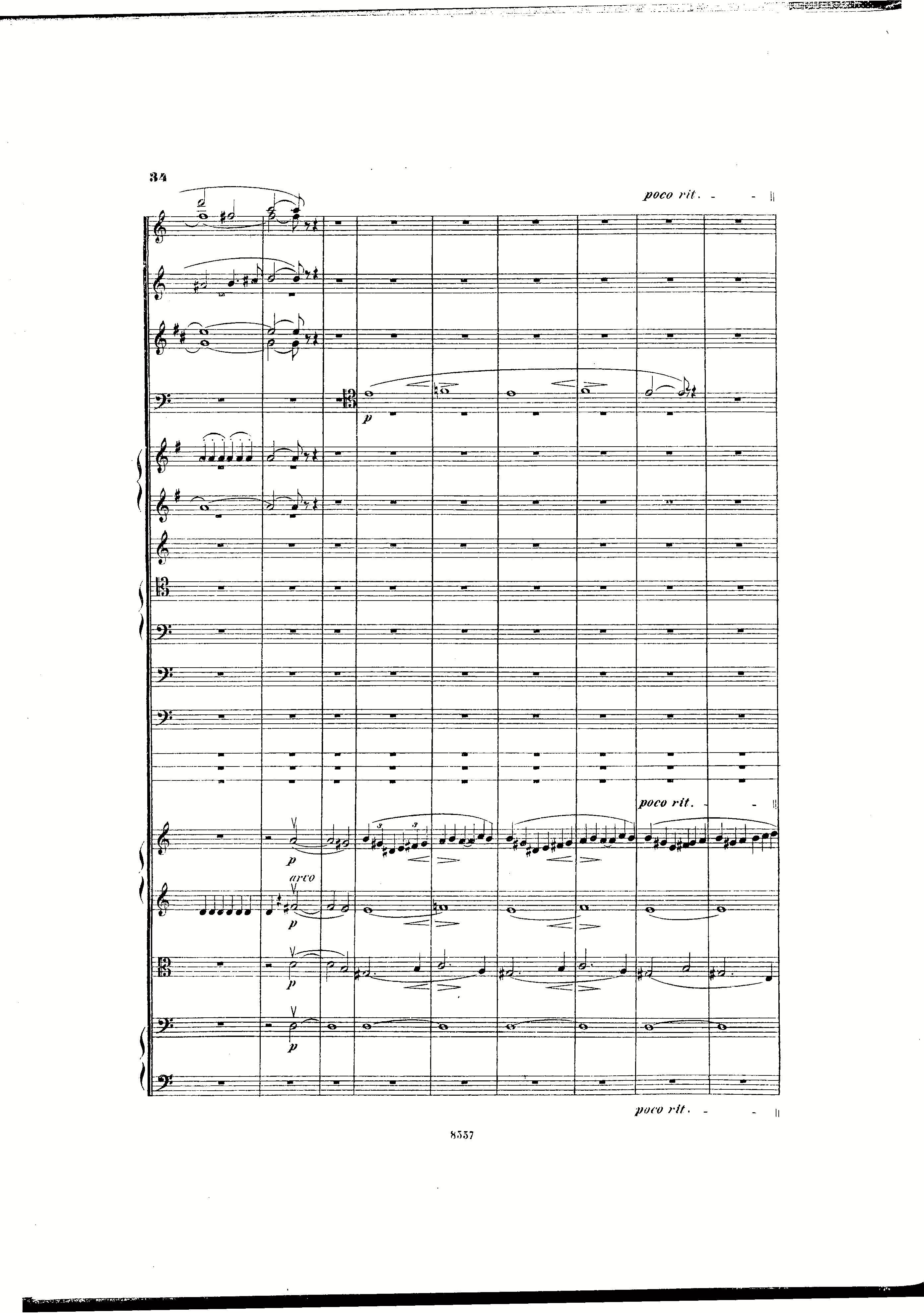
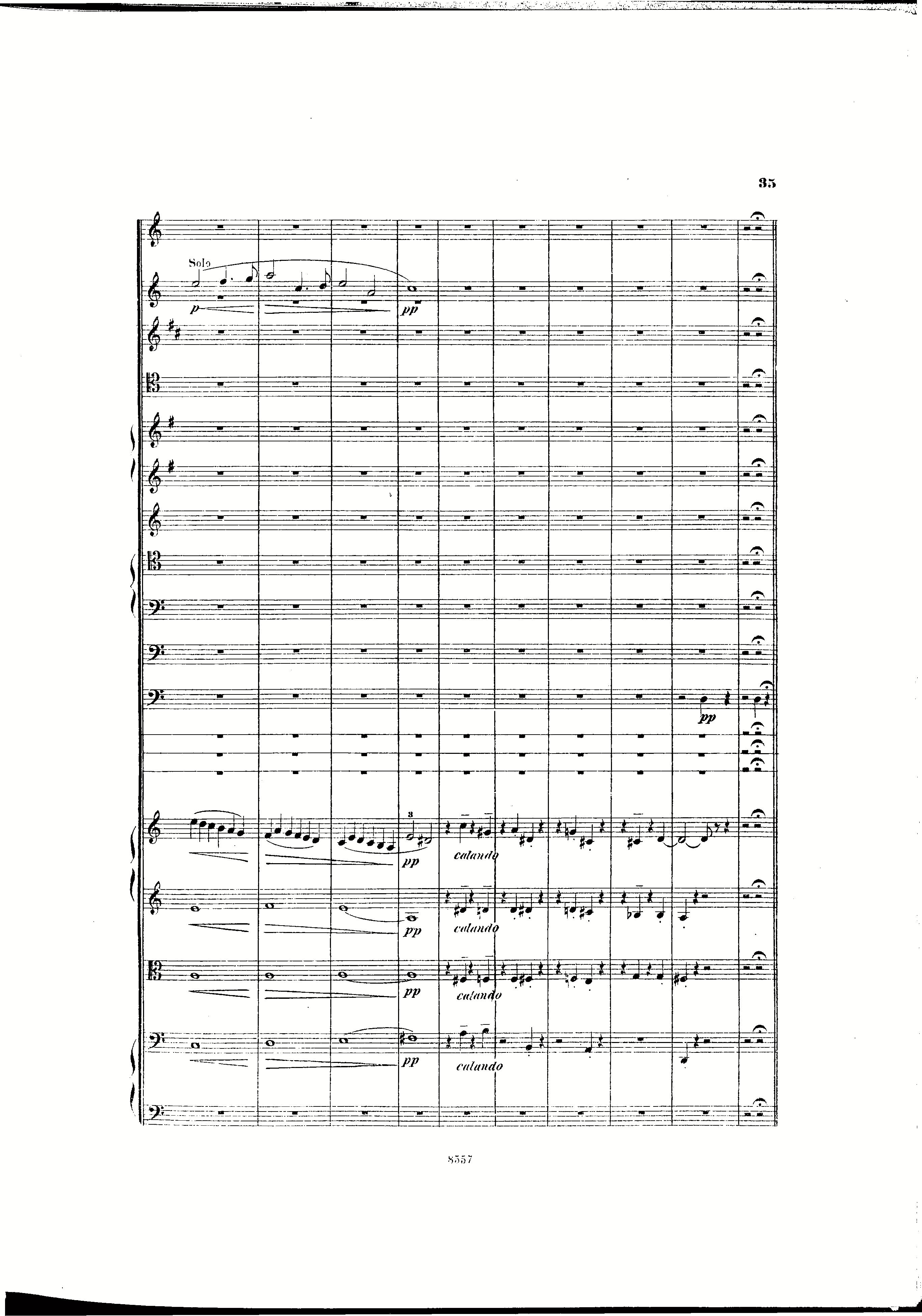


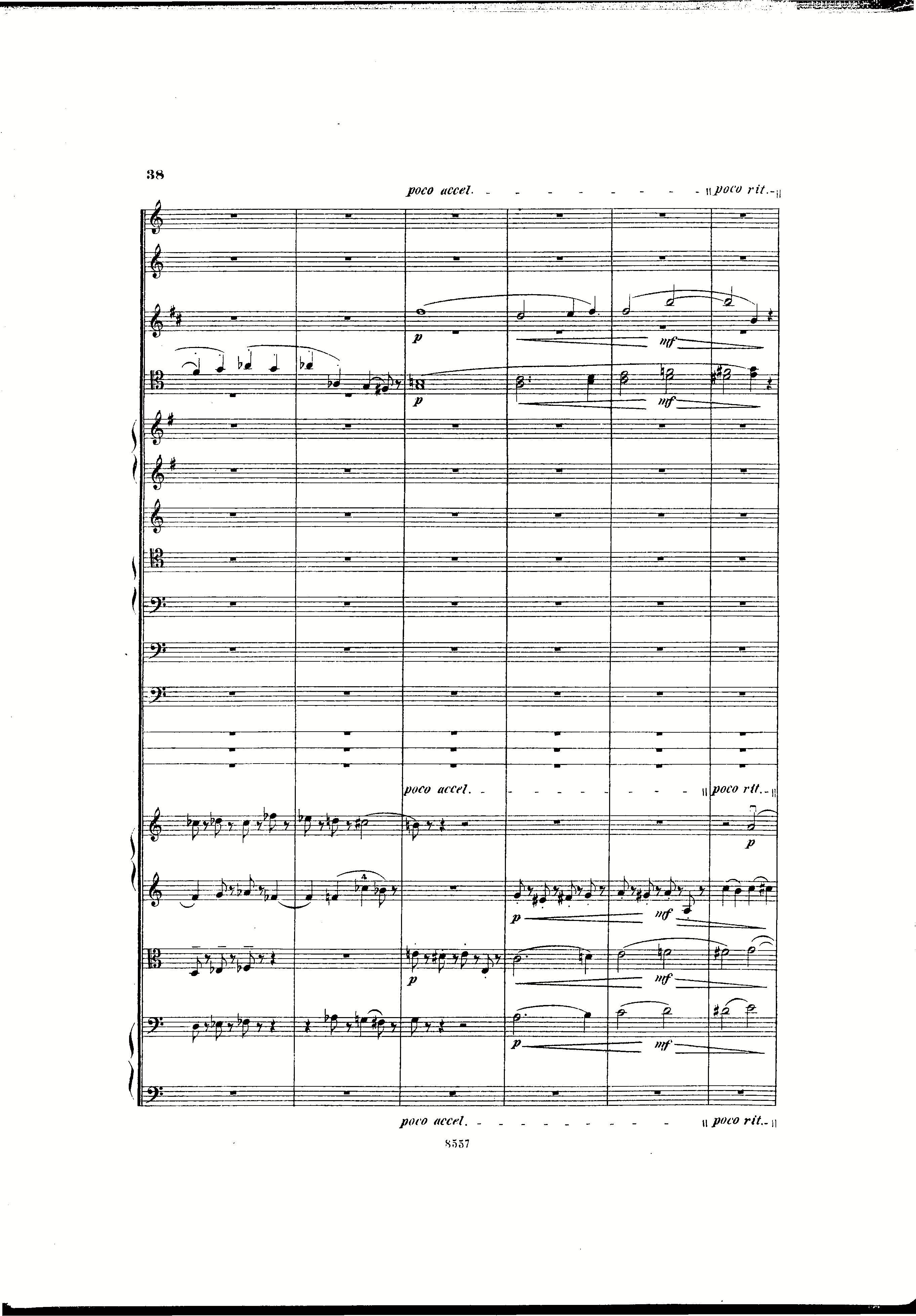

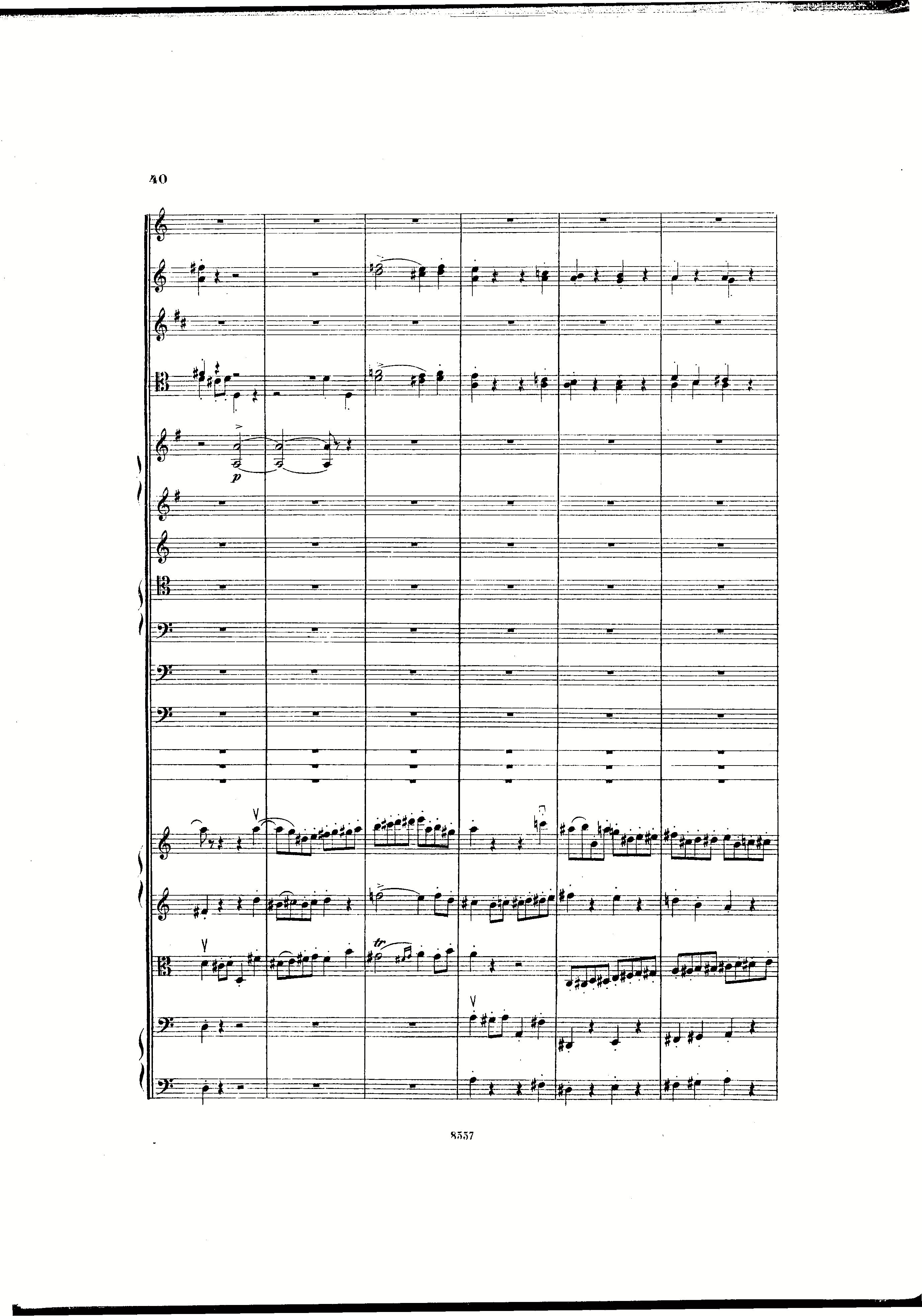
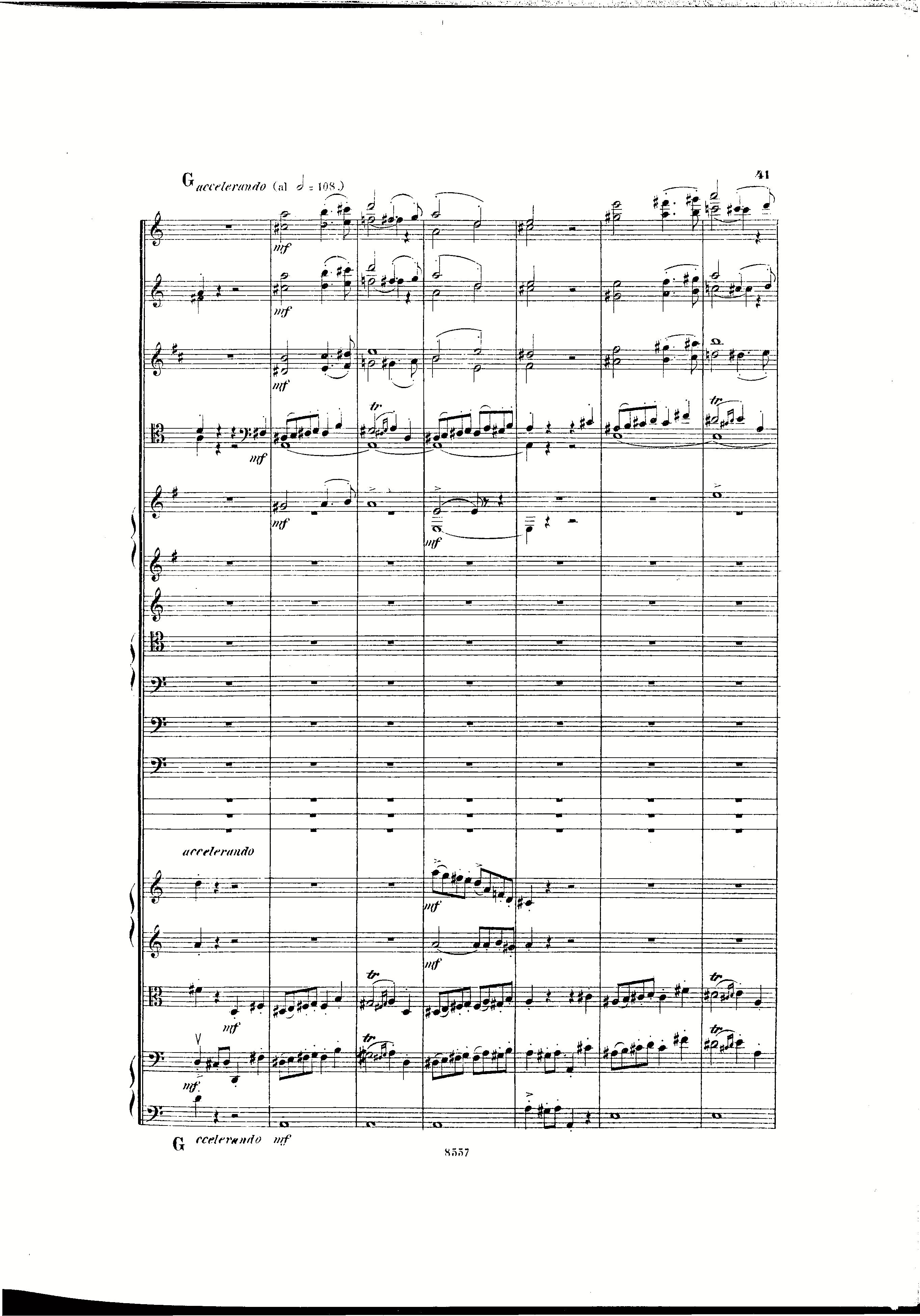
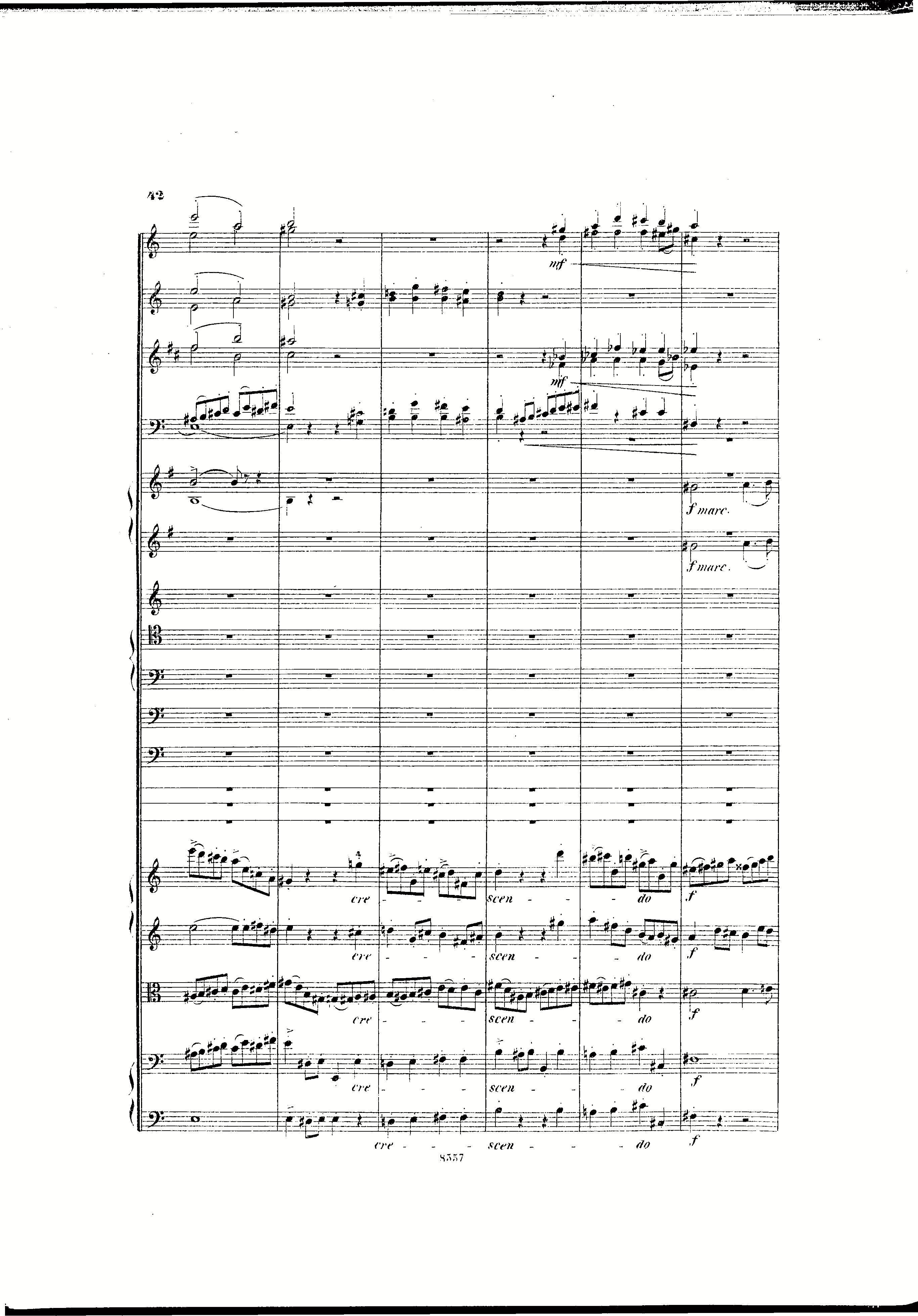

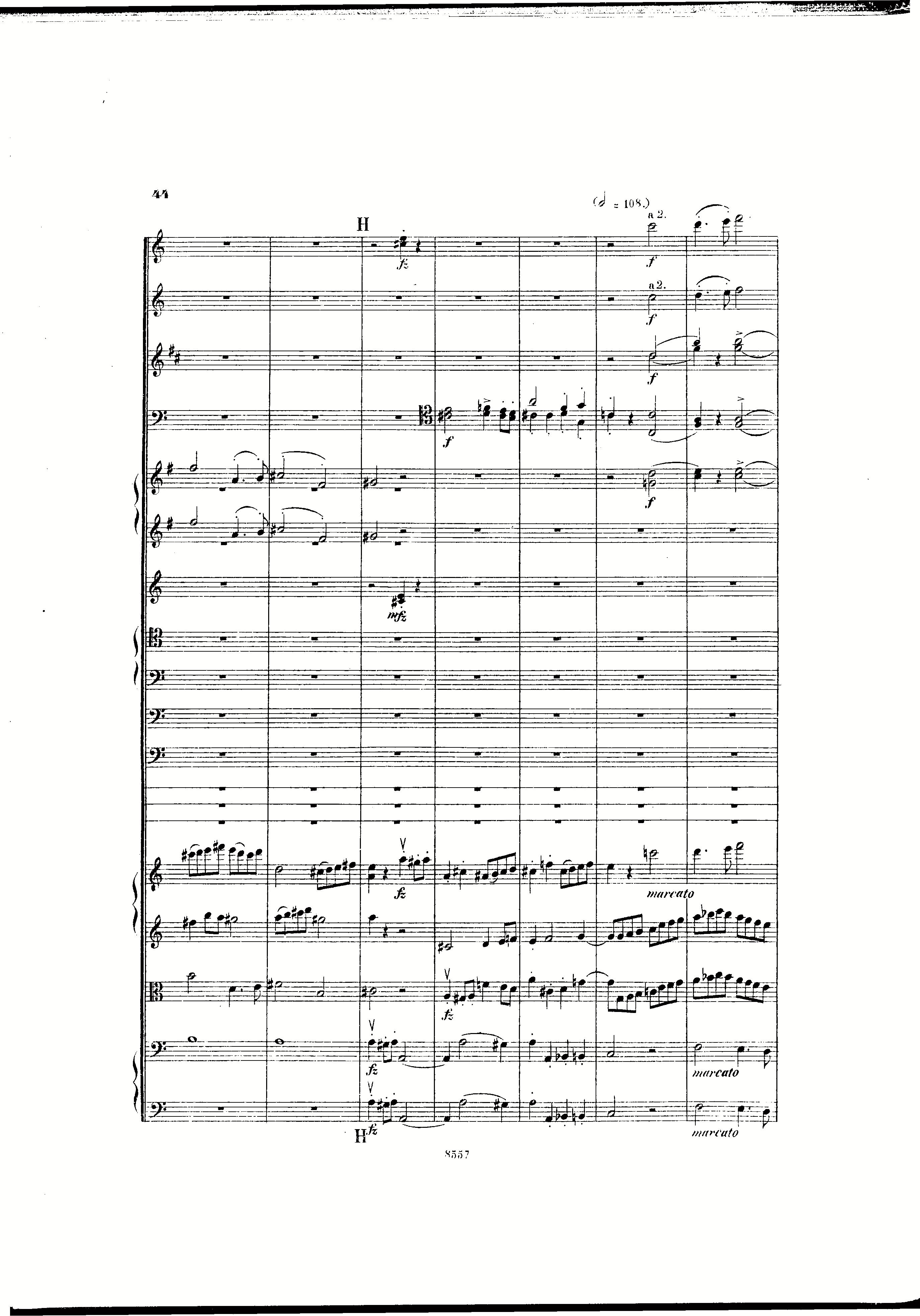

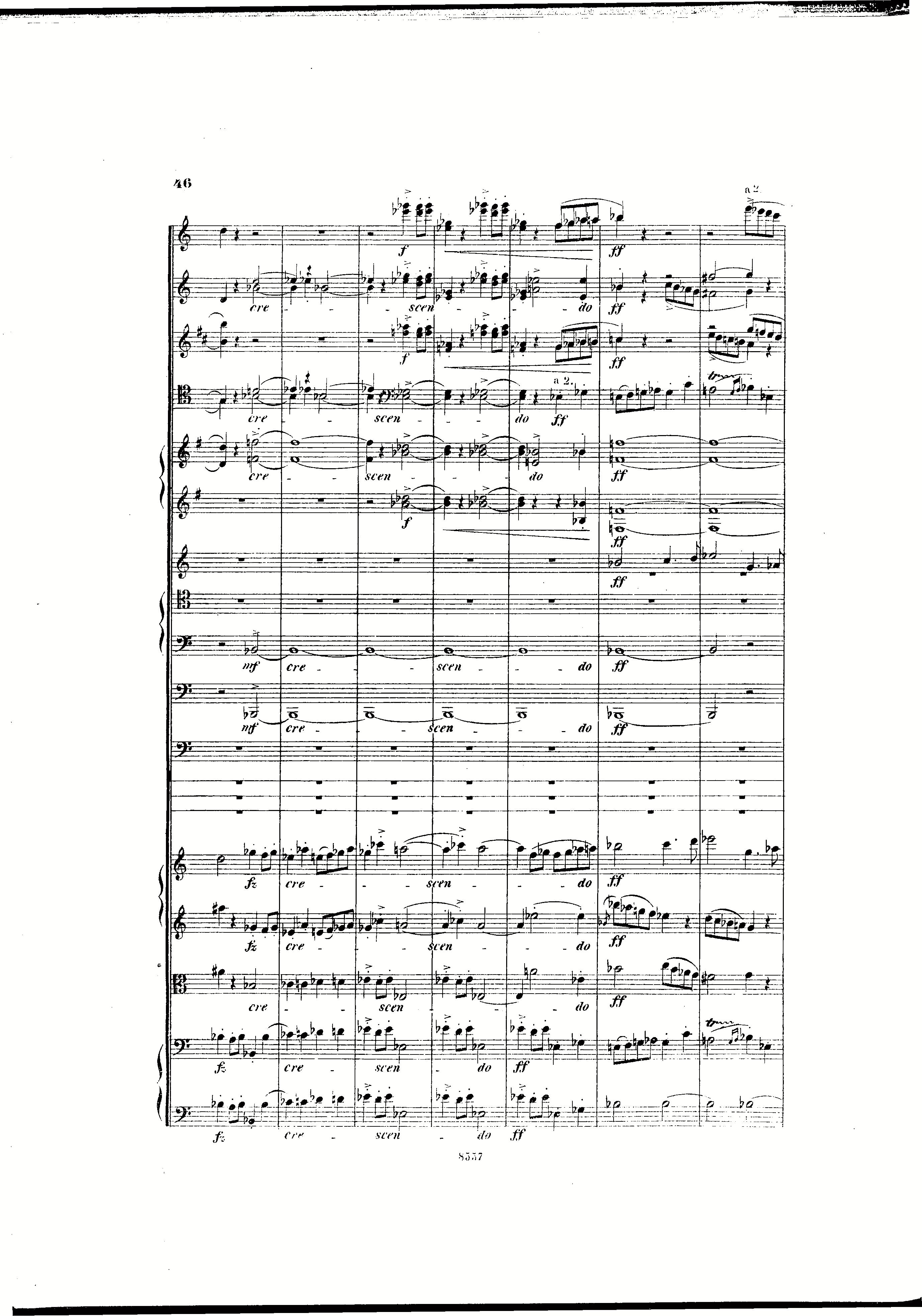

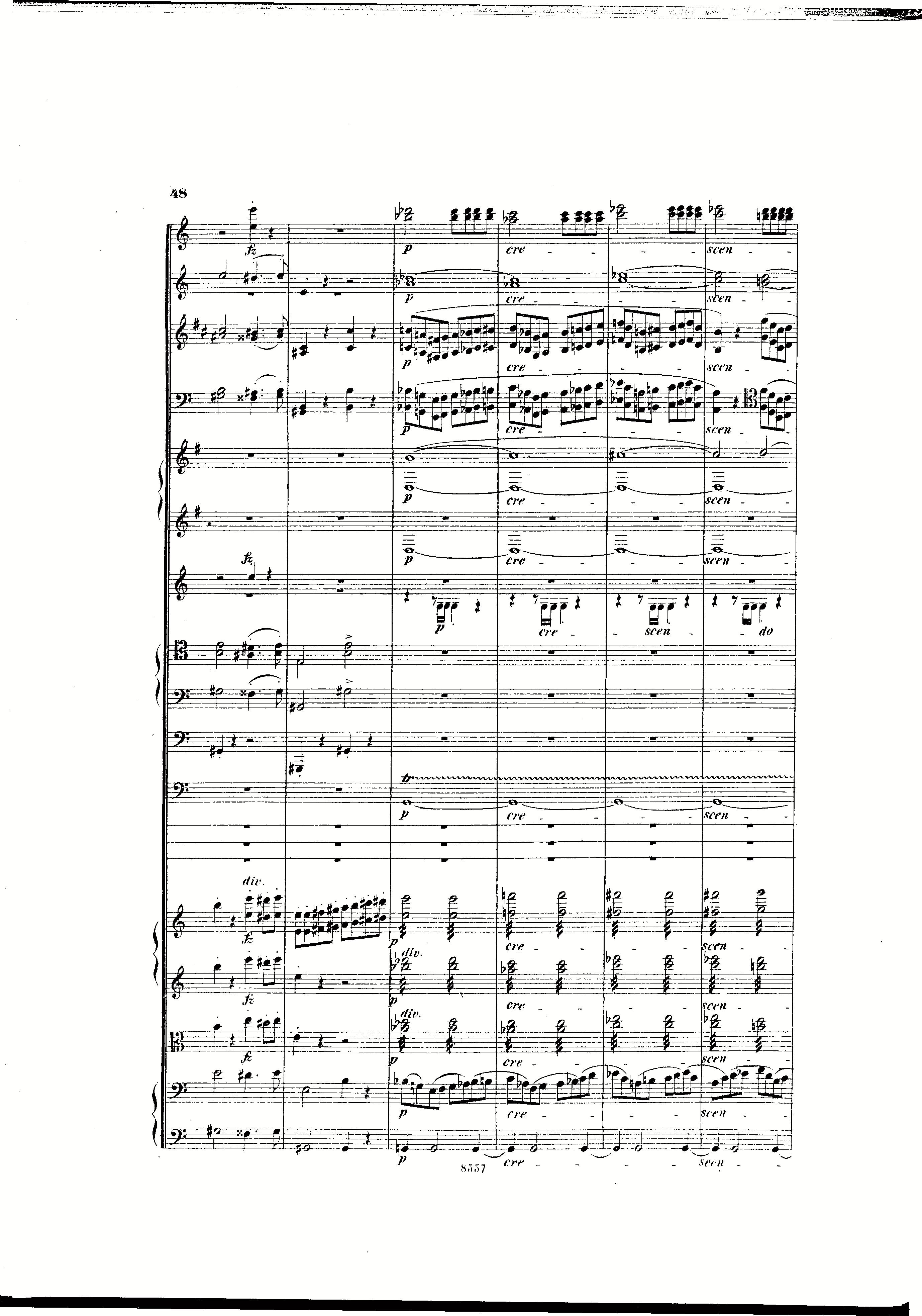


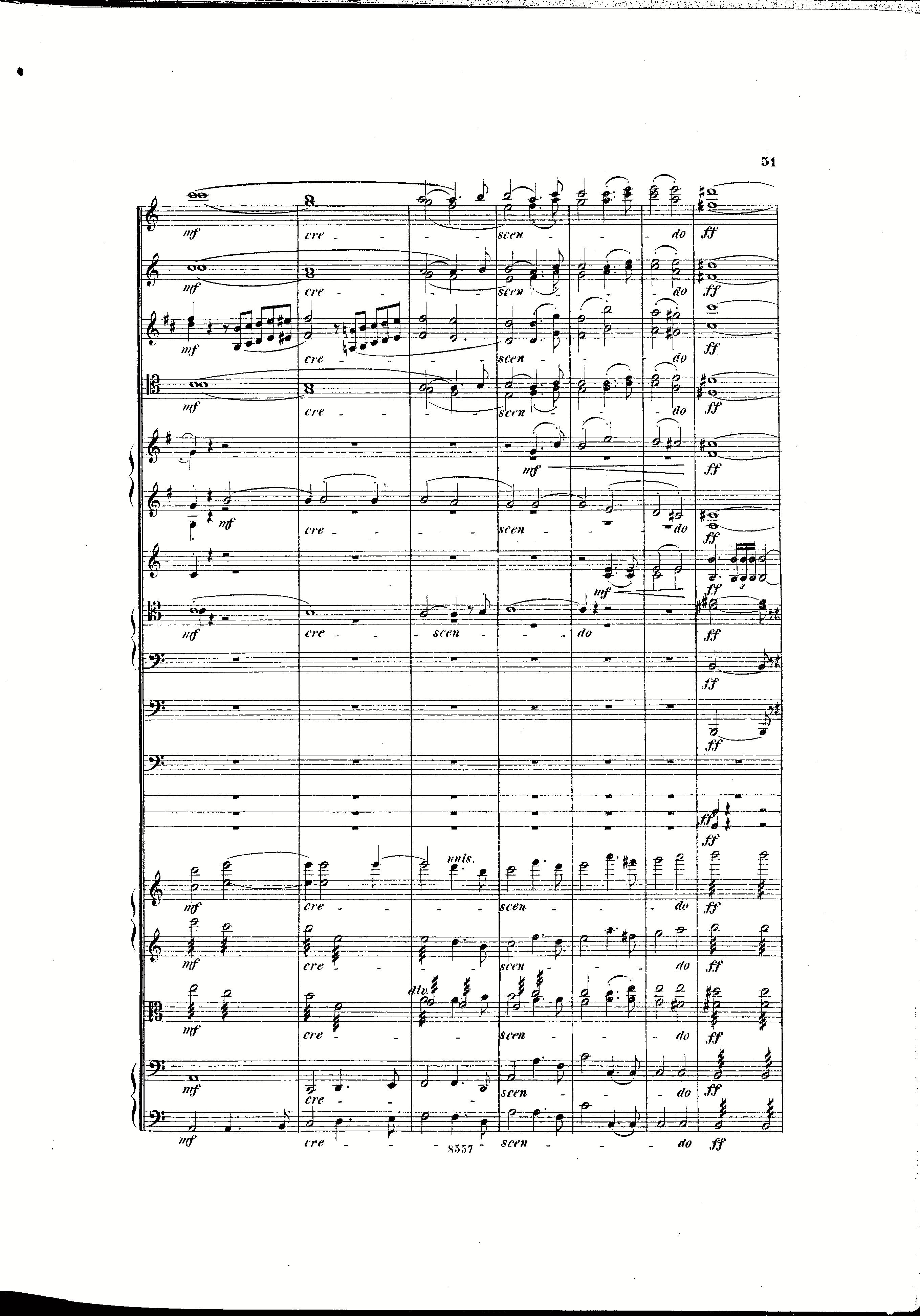
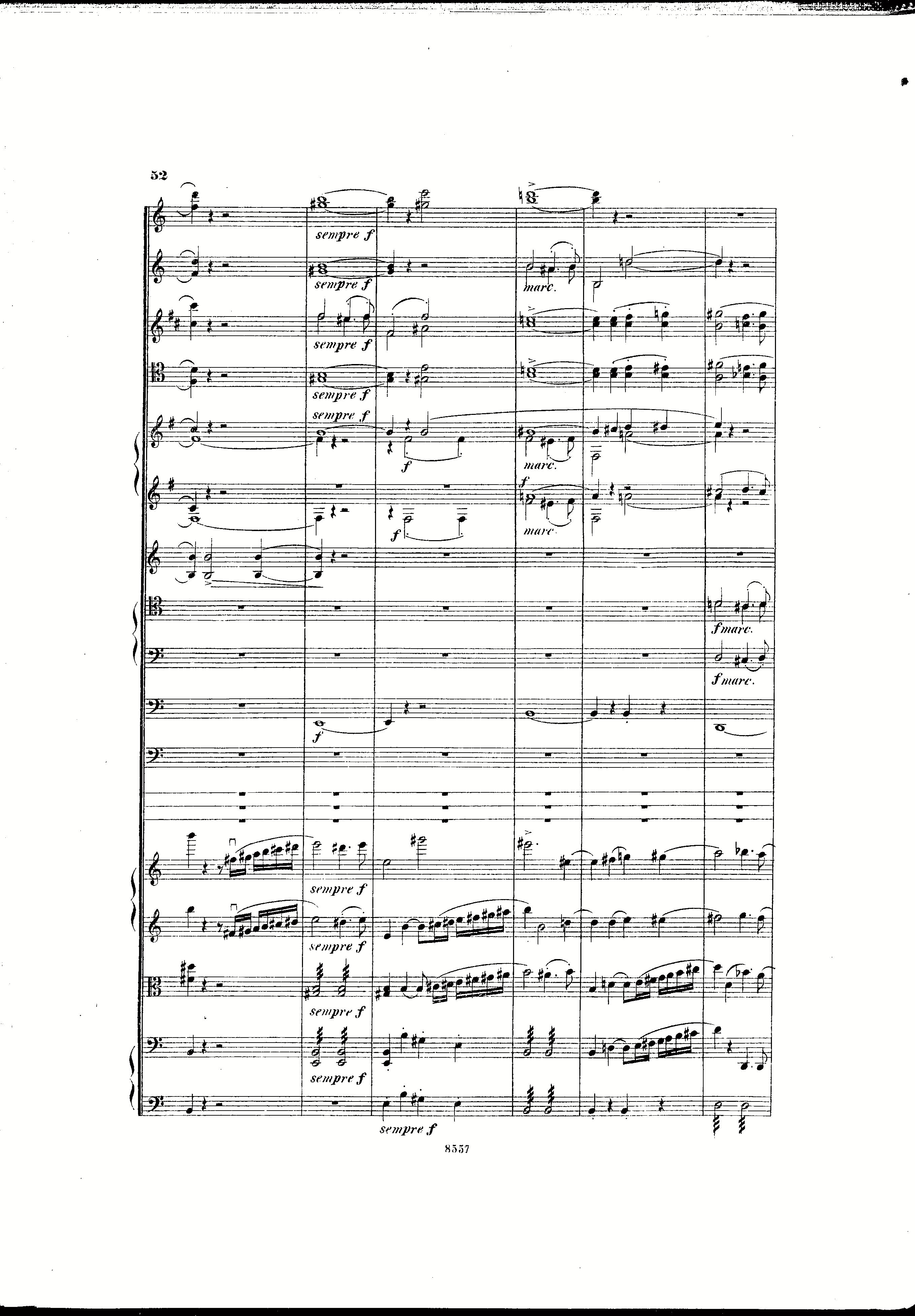


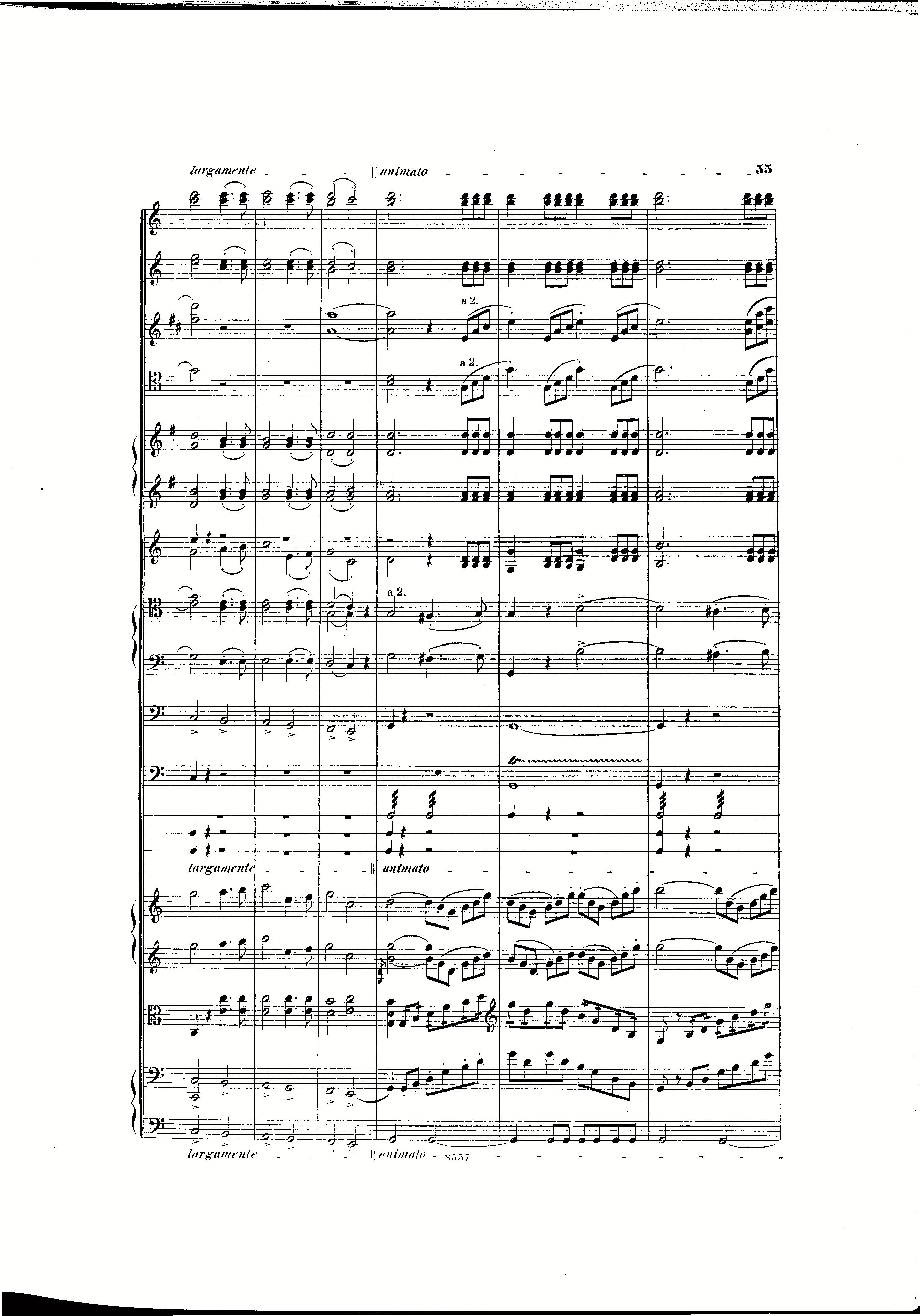


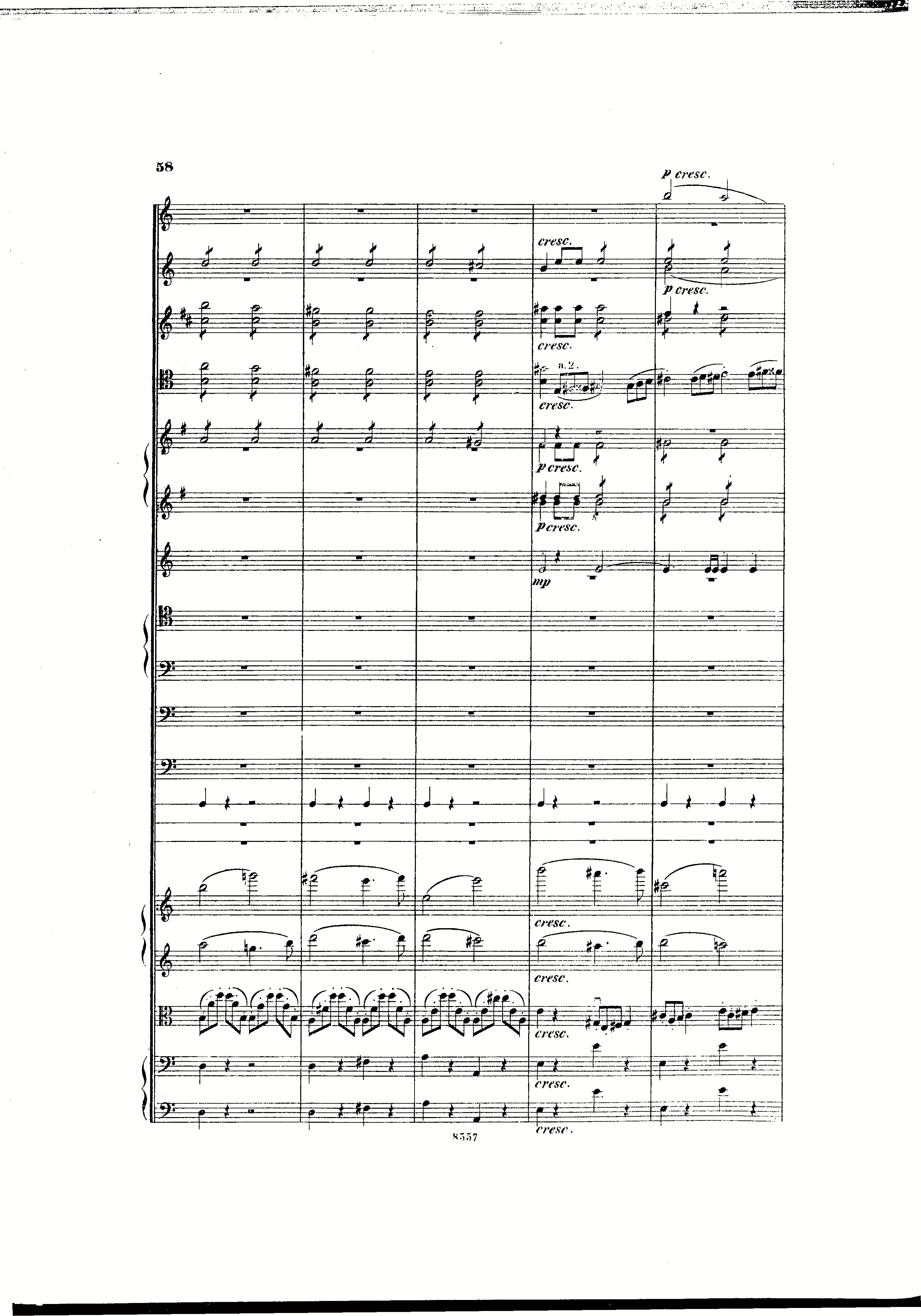

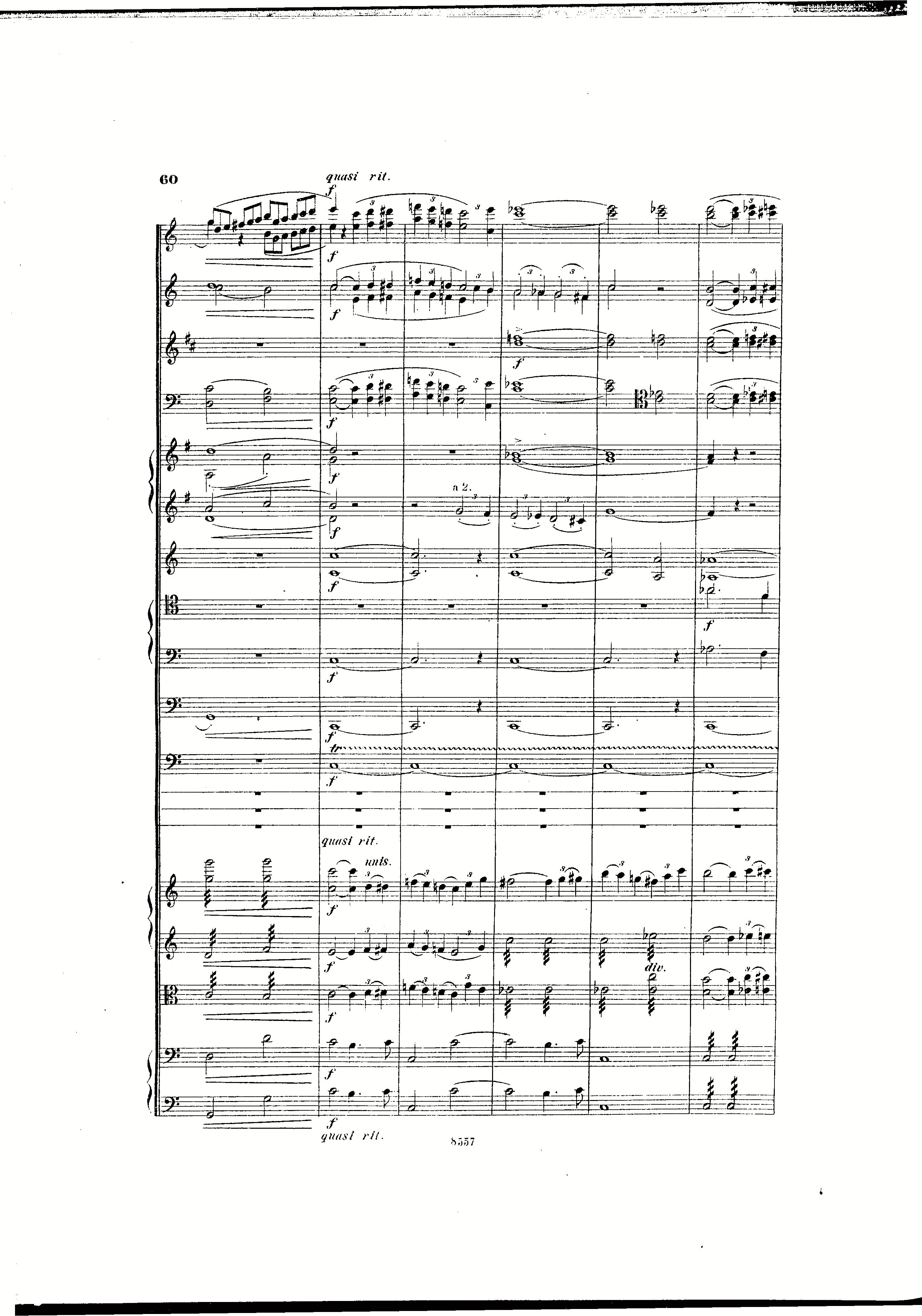

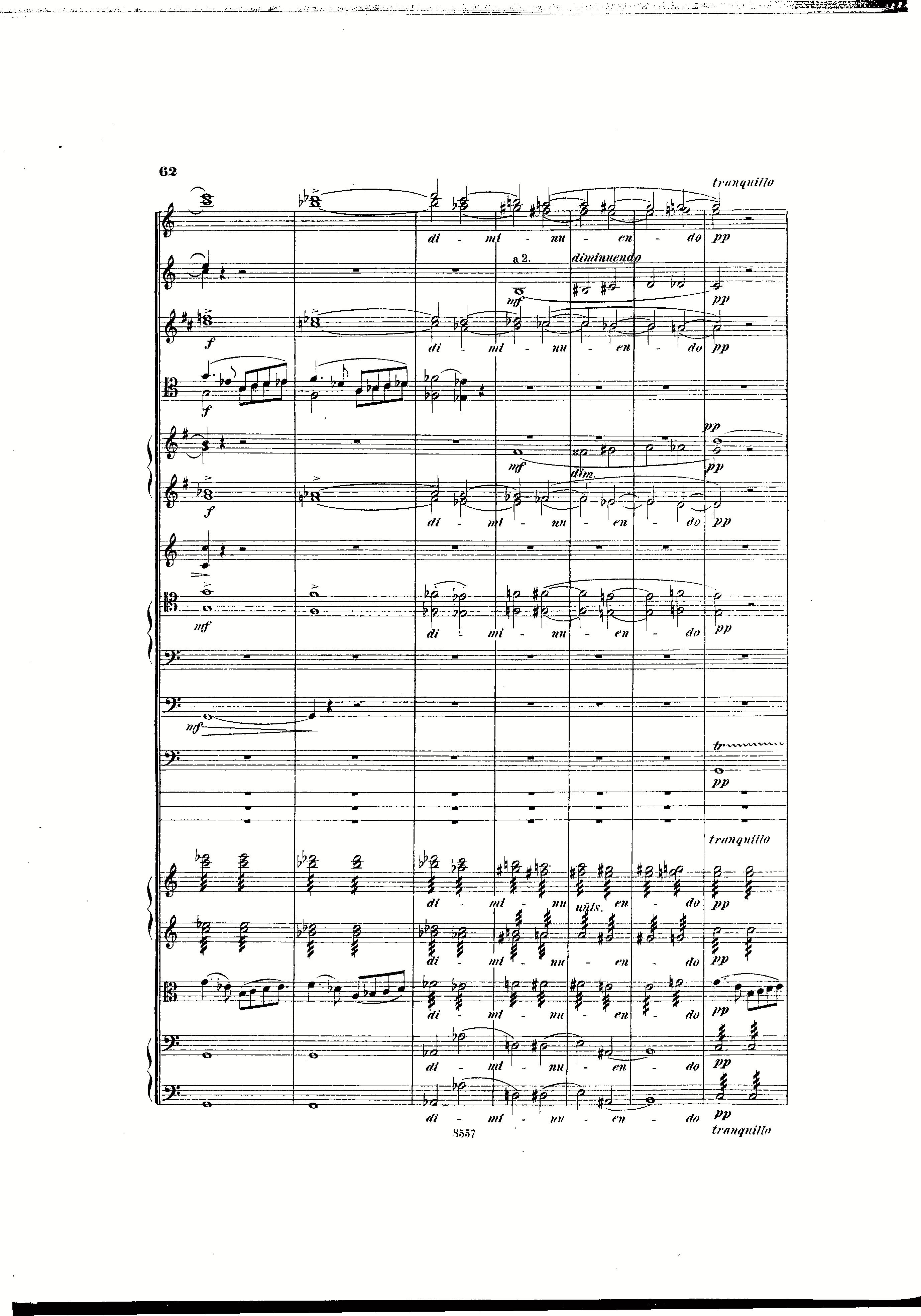
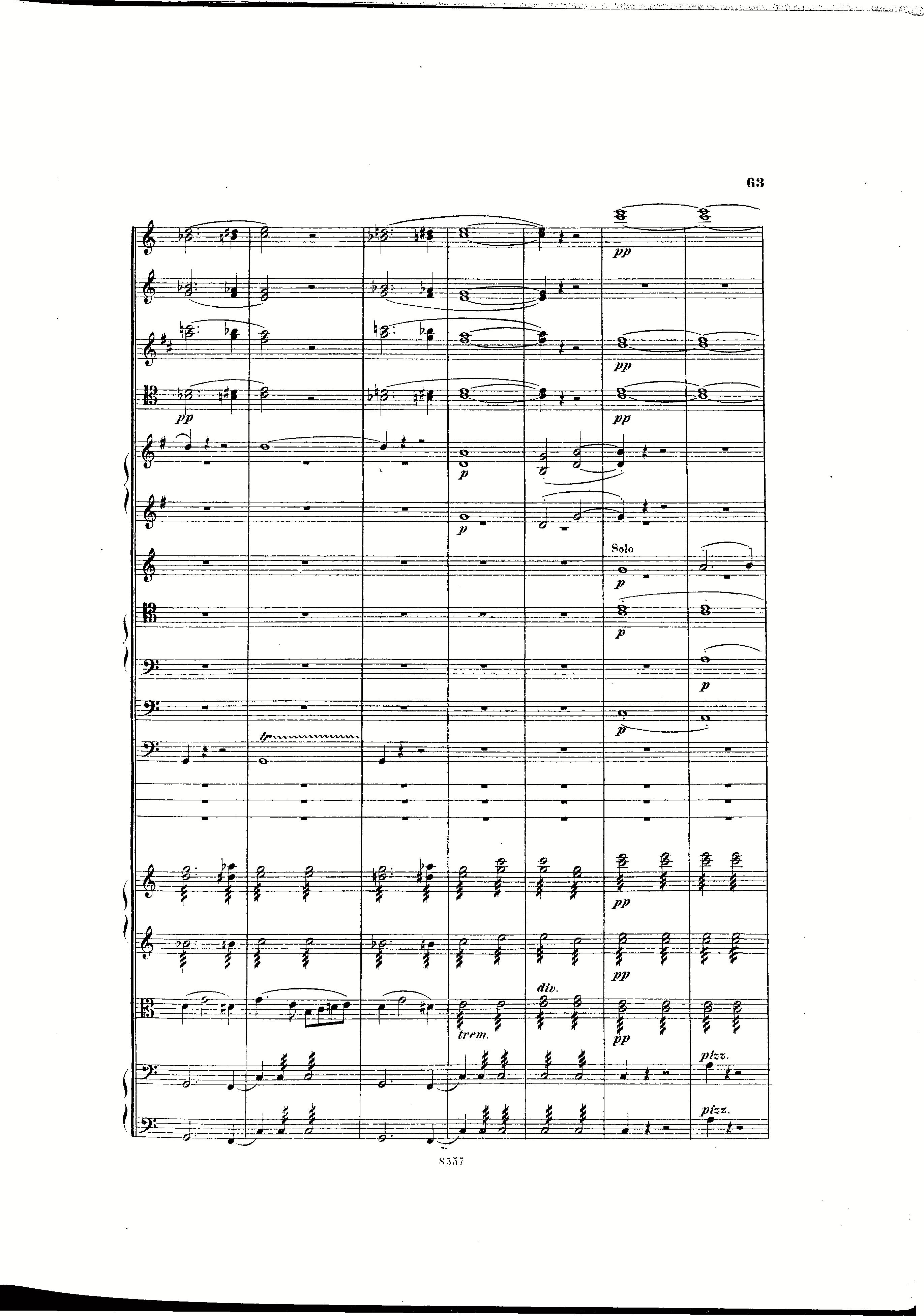
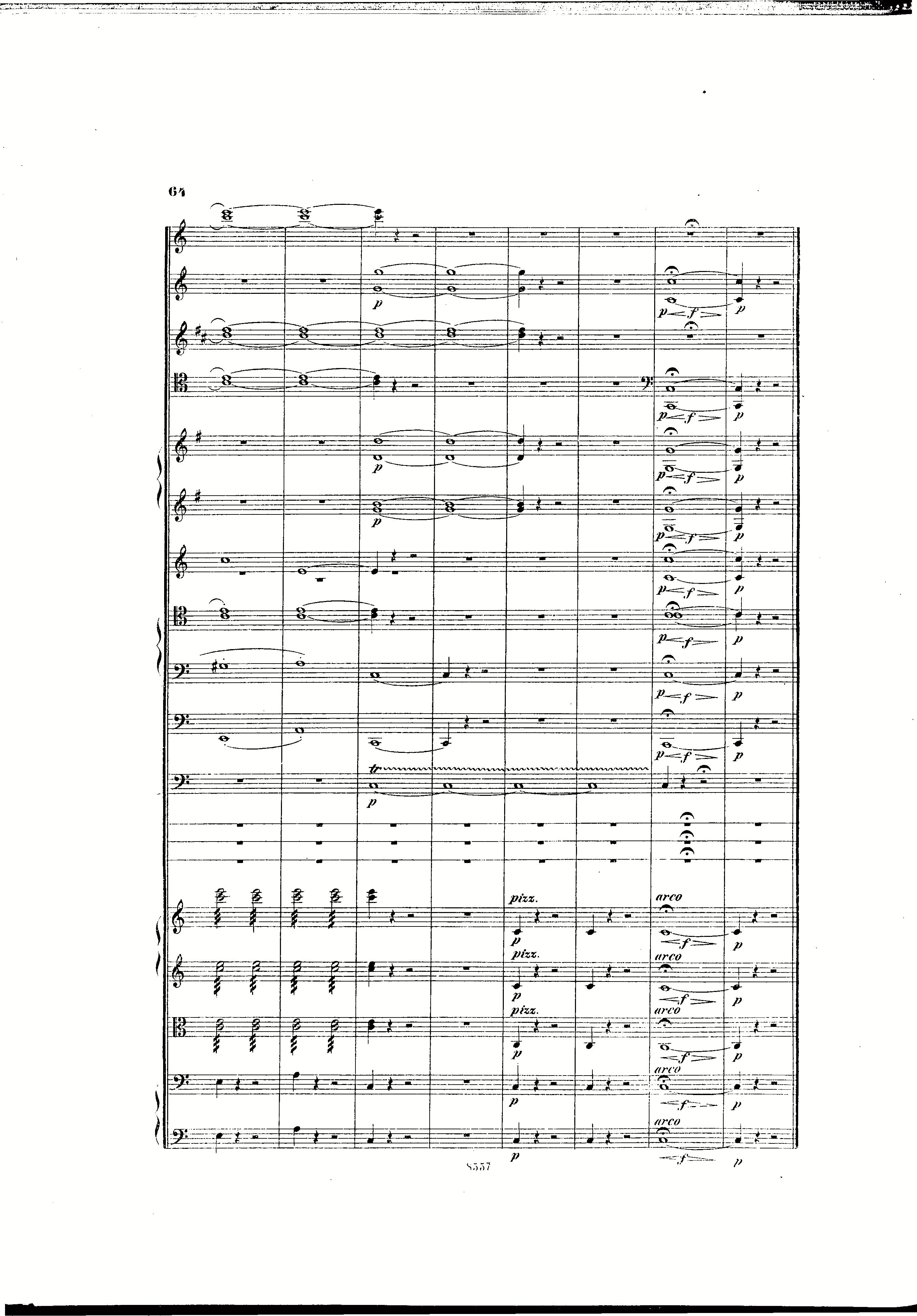
Flauti.
Oboi
Clarinetti • B m .

I. II. Corni in F. , III. IV.
Trombe in c. I.Il. Tromboni. III.
Tuba.
Timpani in E. H Arpa.
Violoncello. Basso.

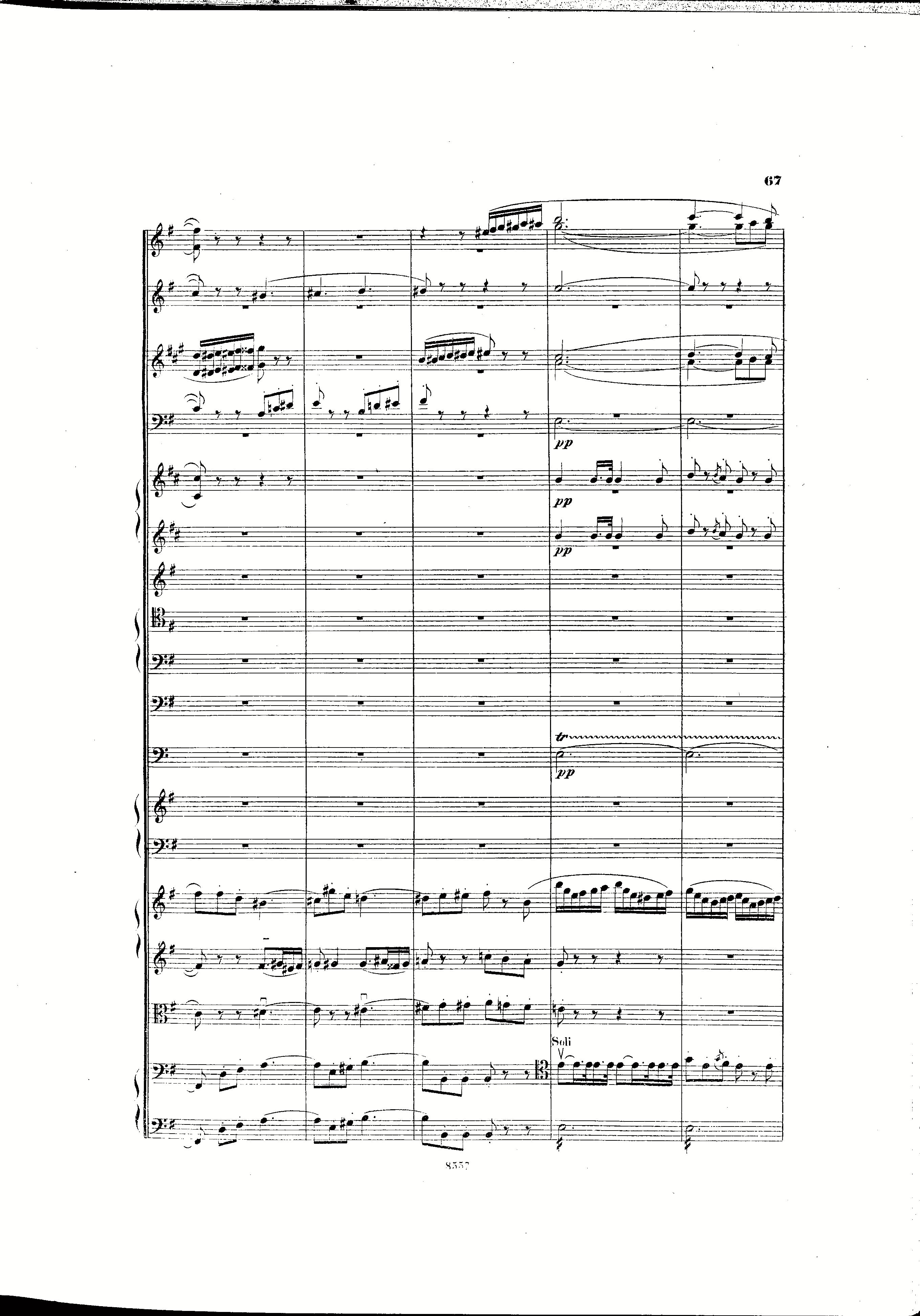


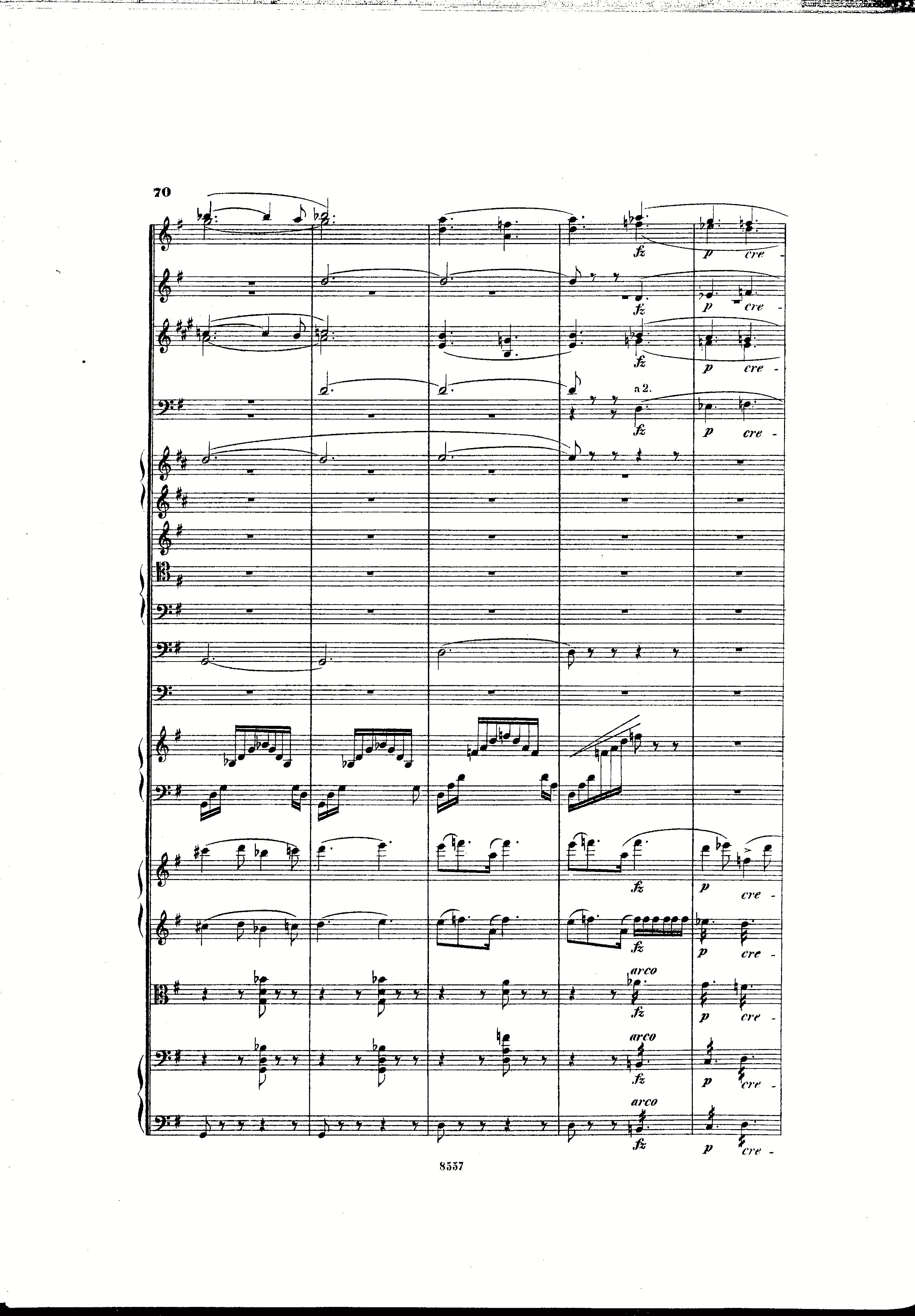

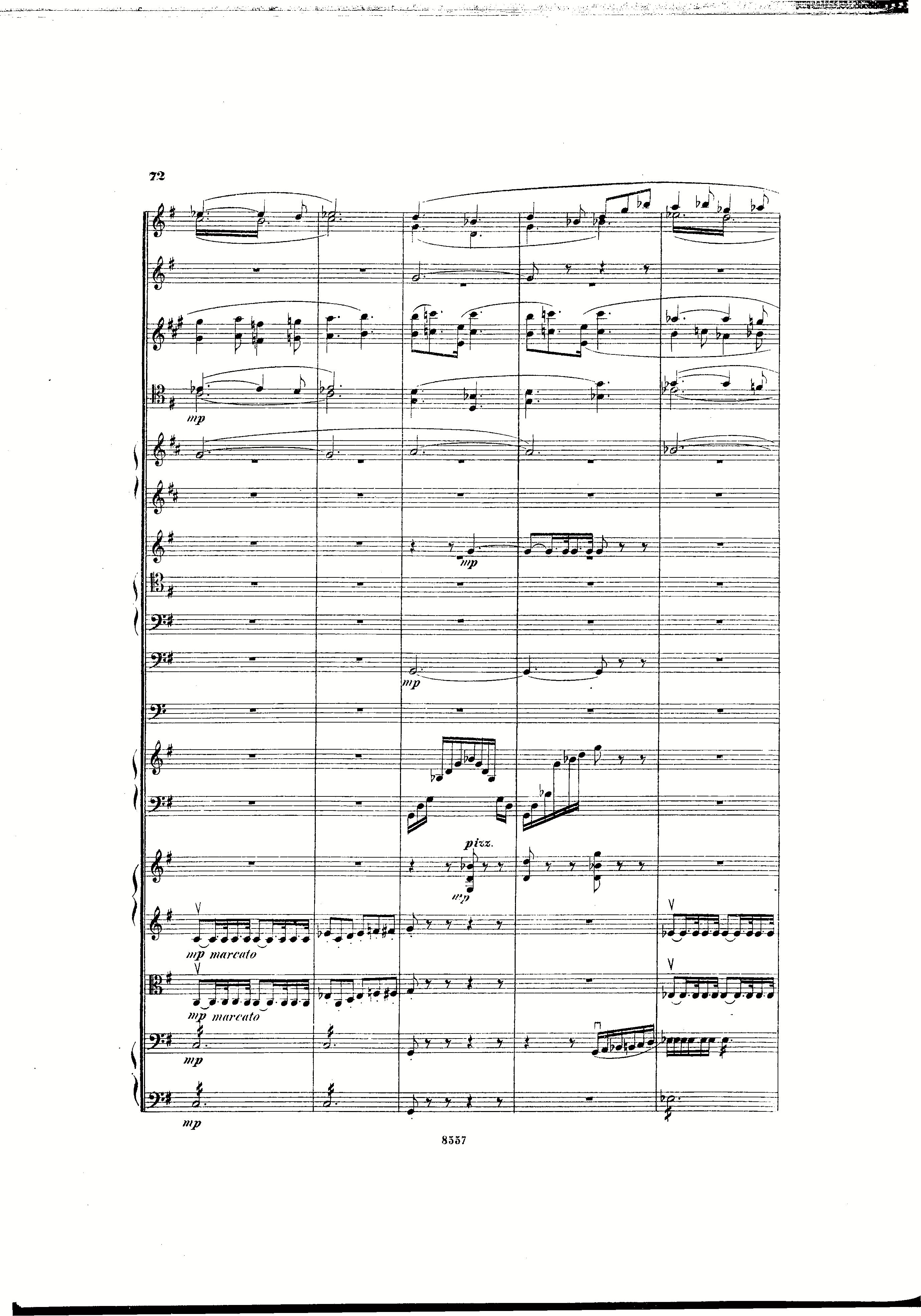
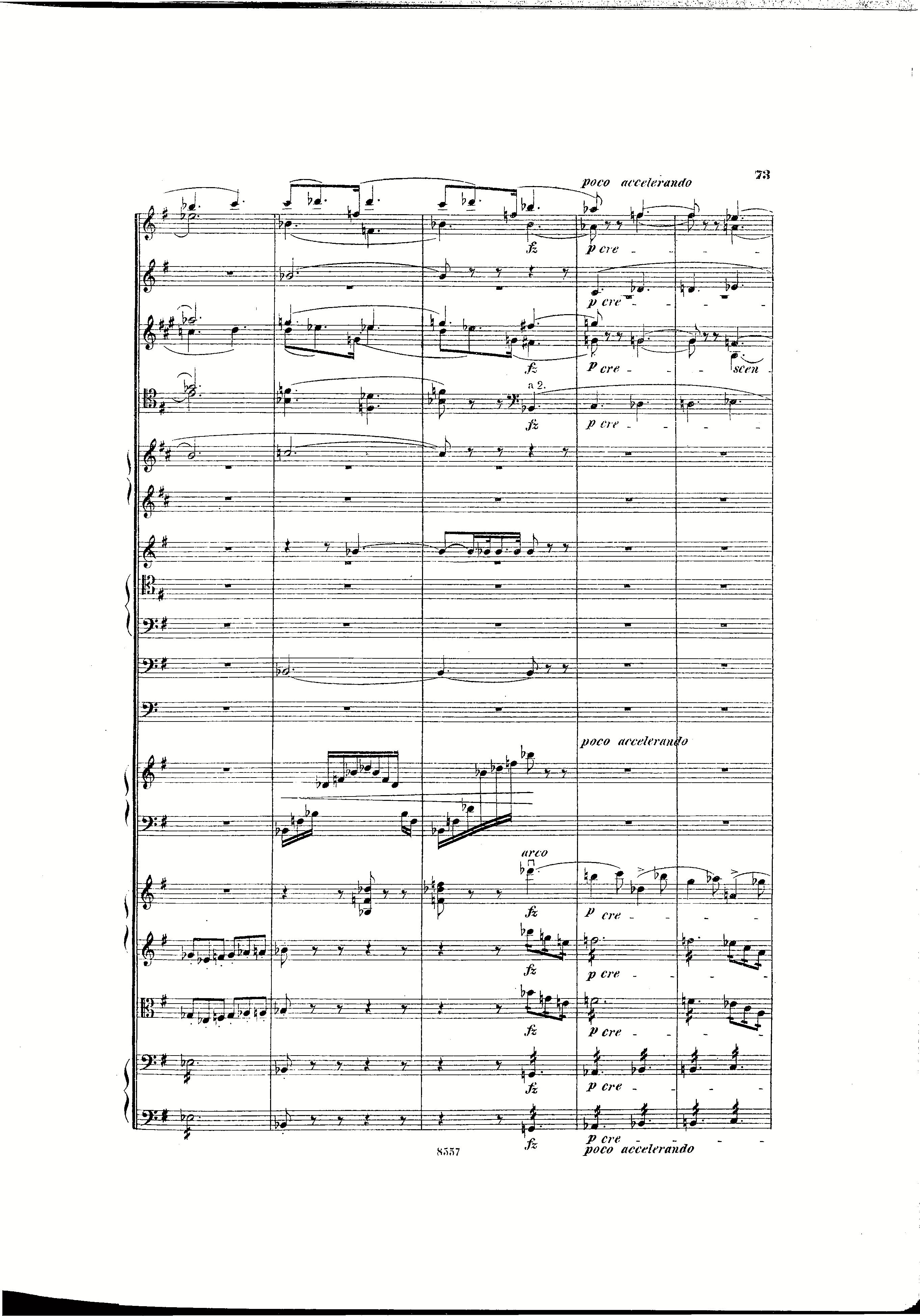

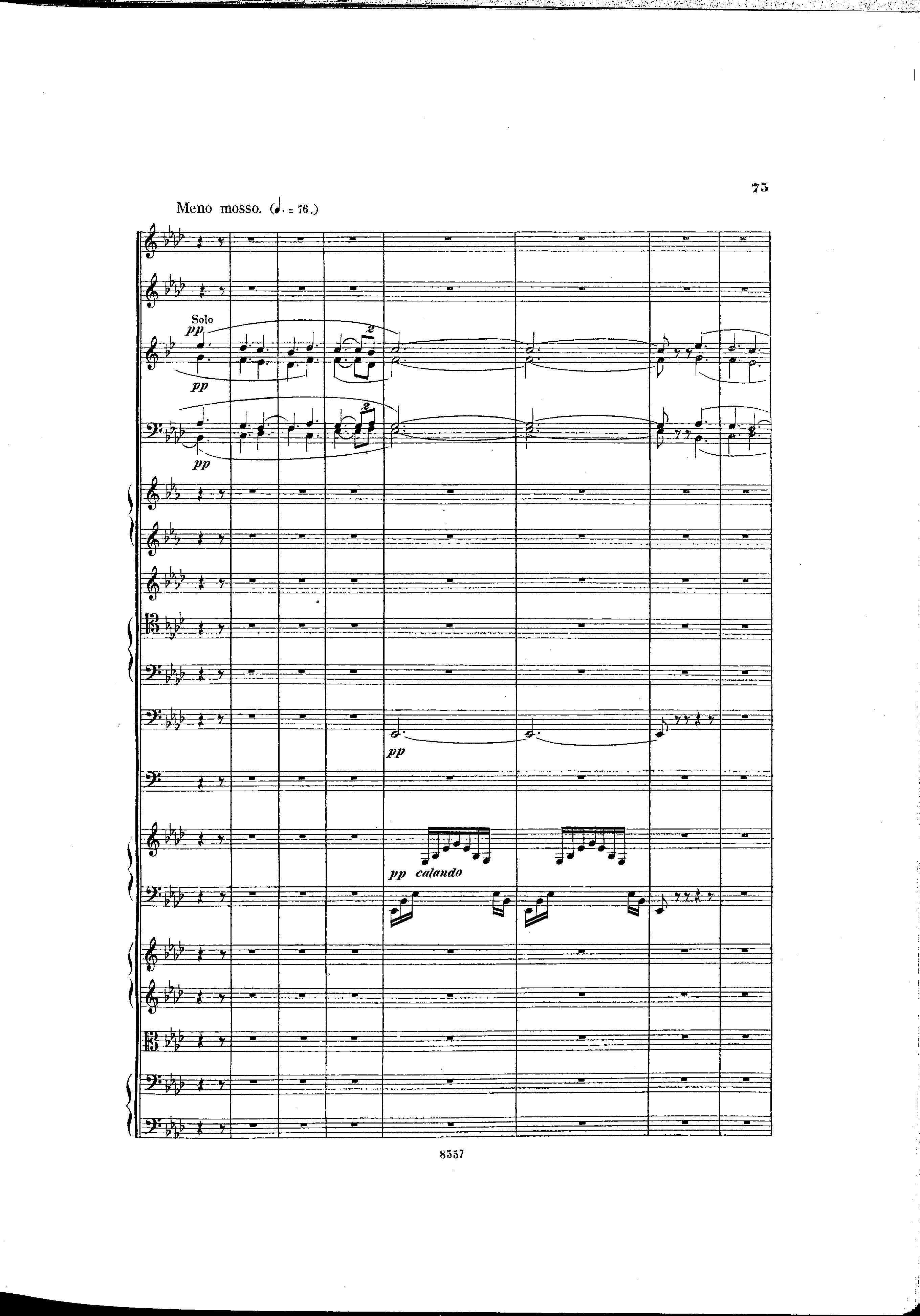
Meno mosso. cJ. = 76.)

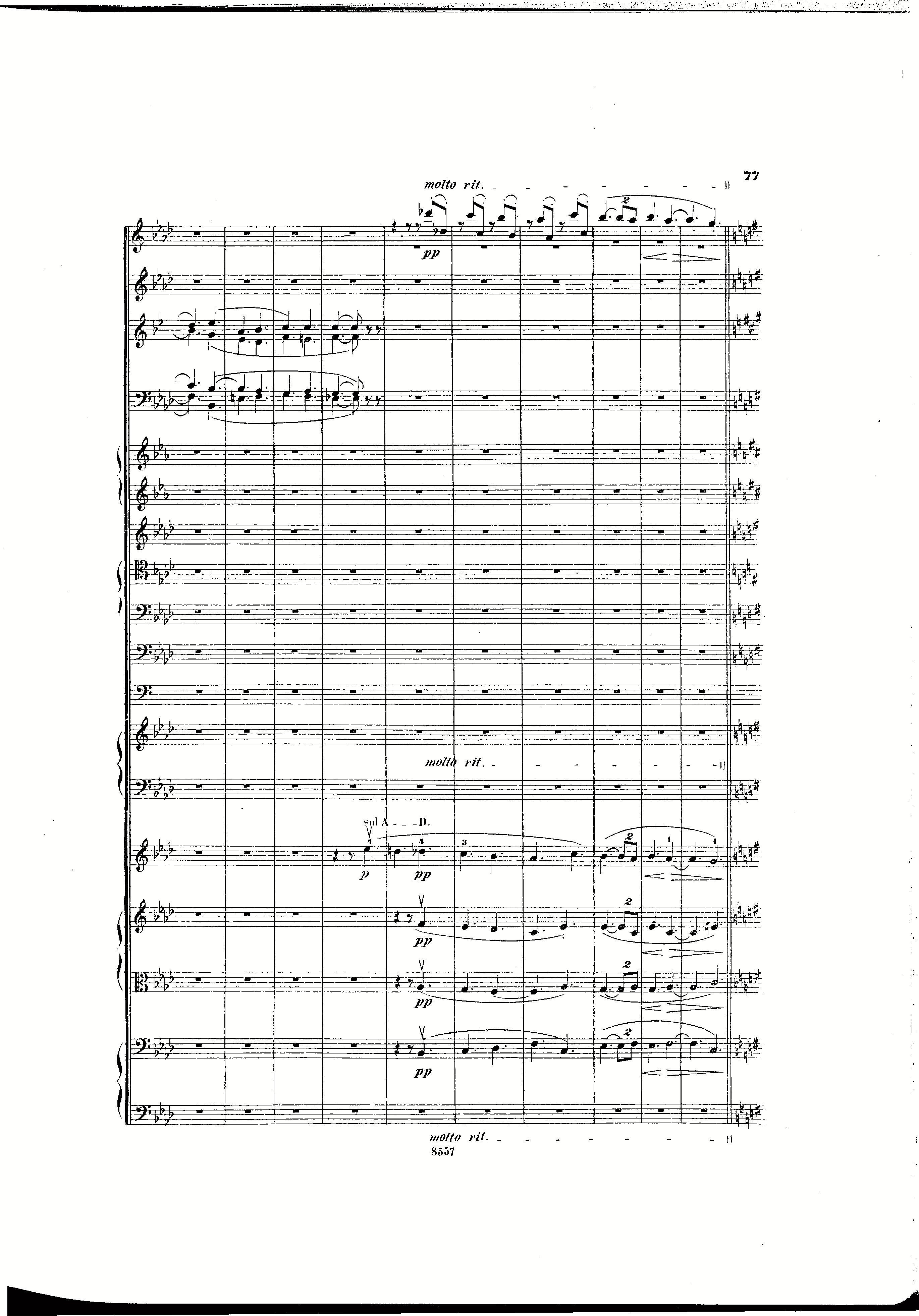


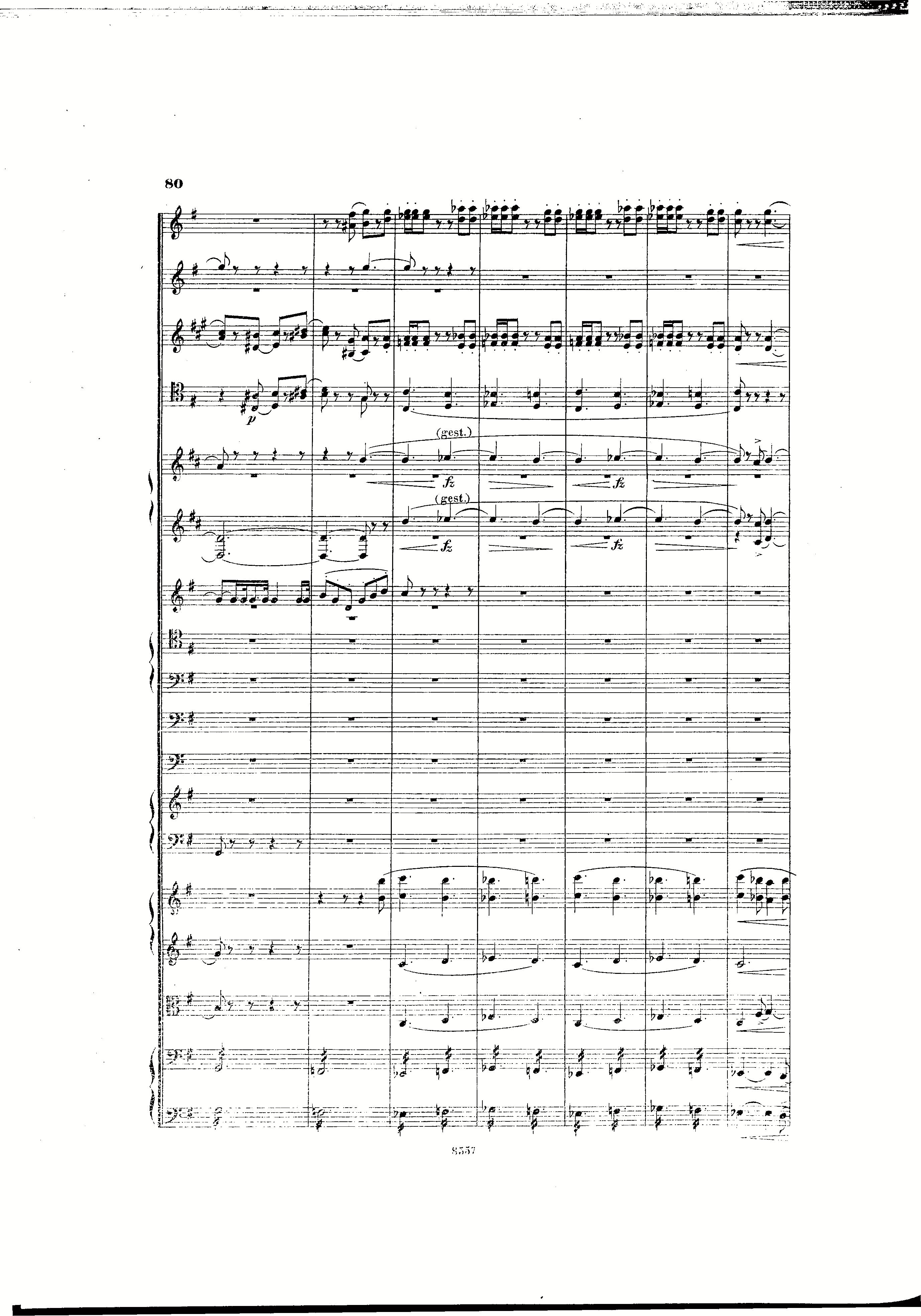
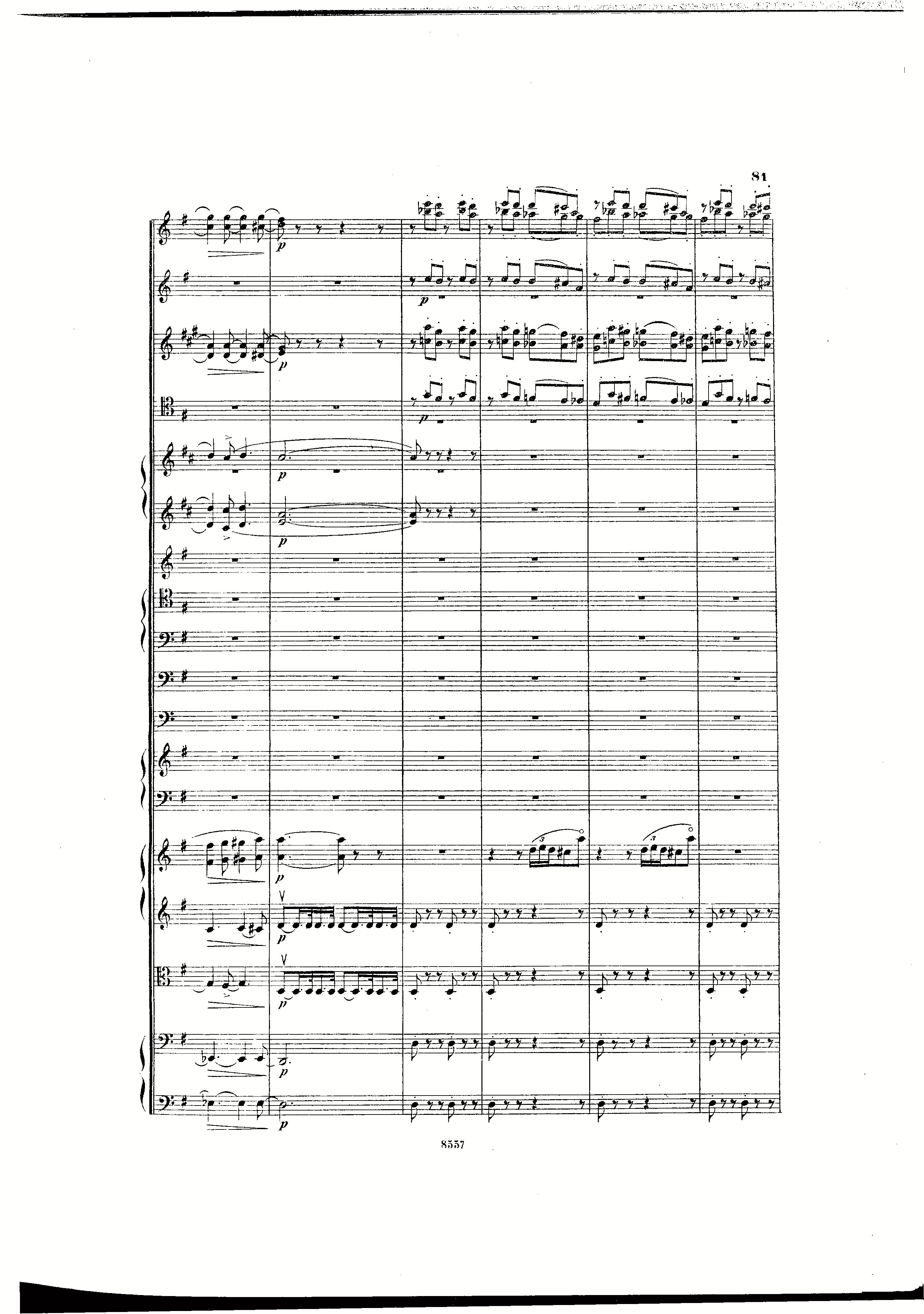
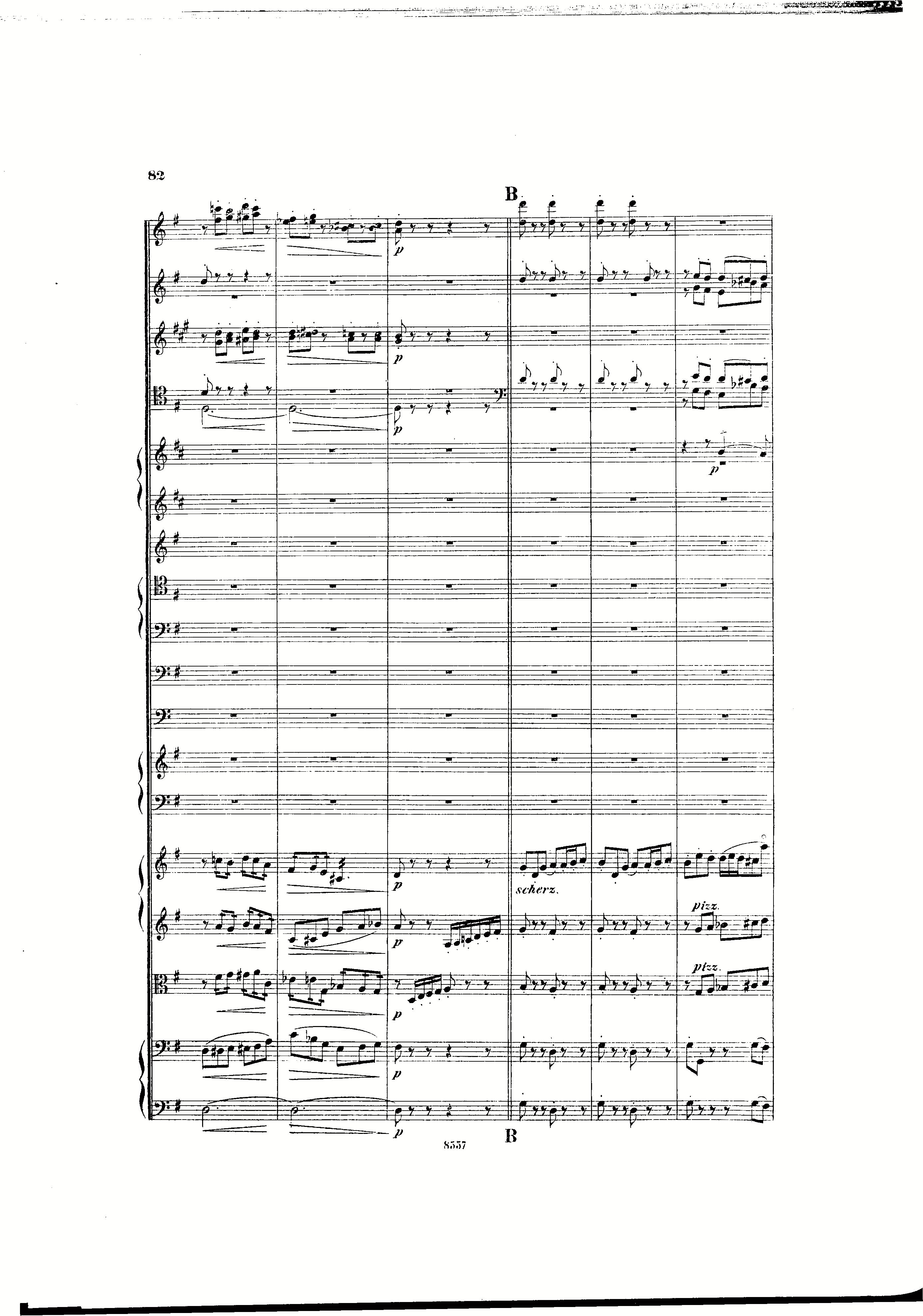
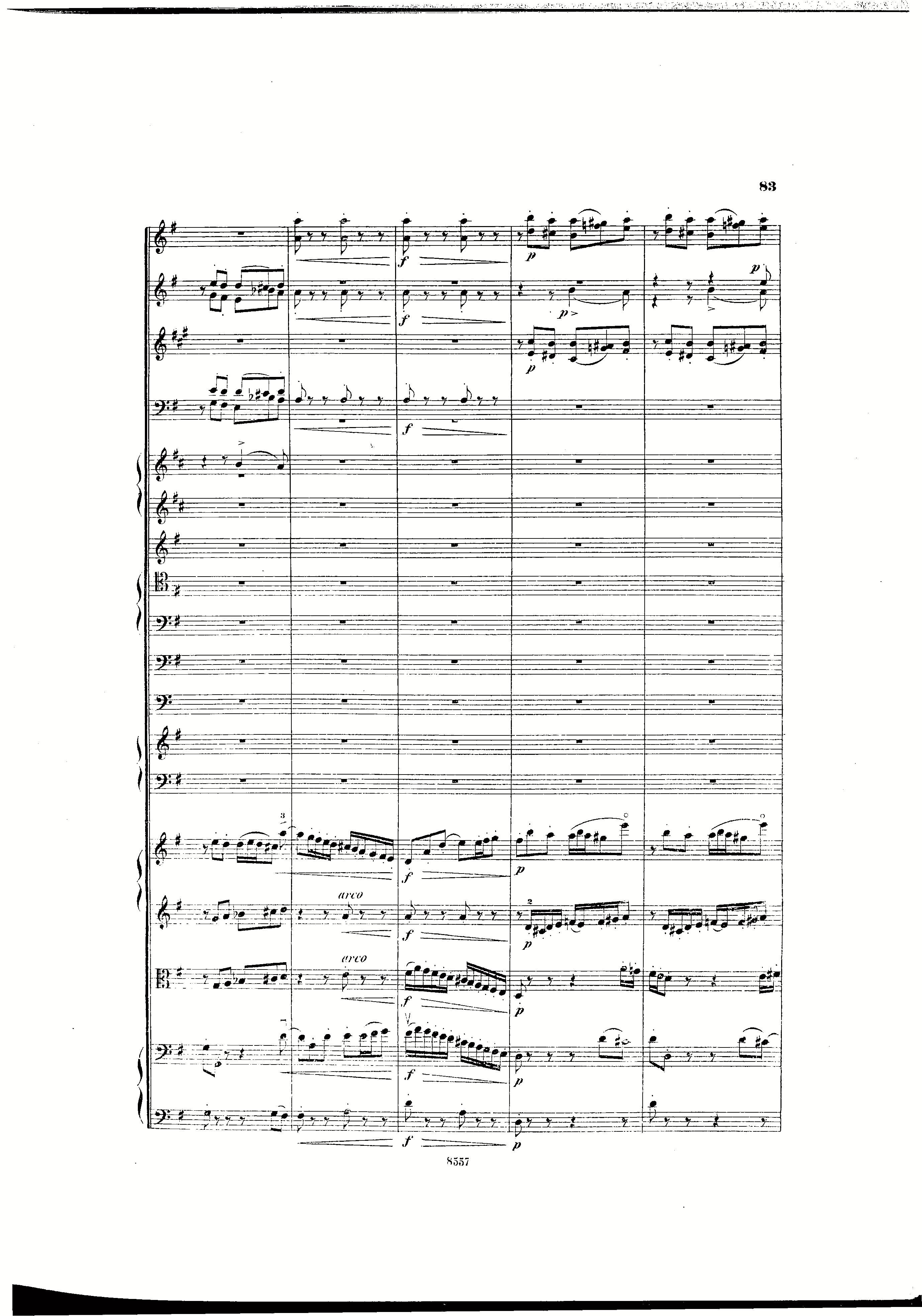

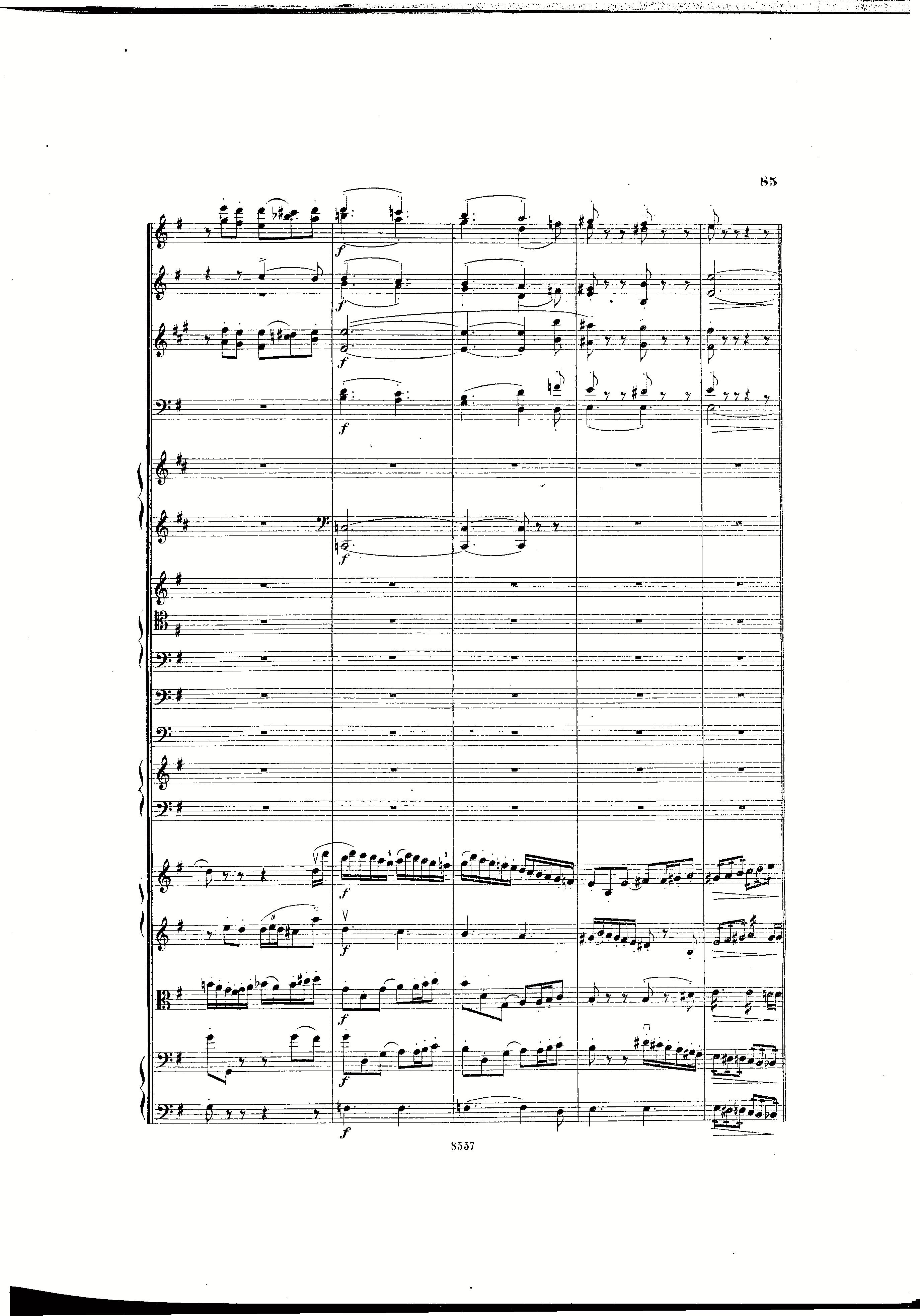
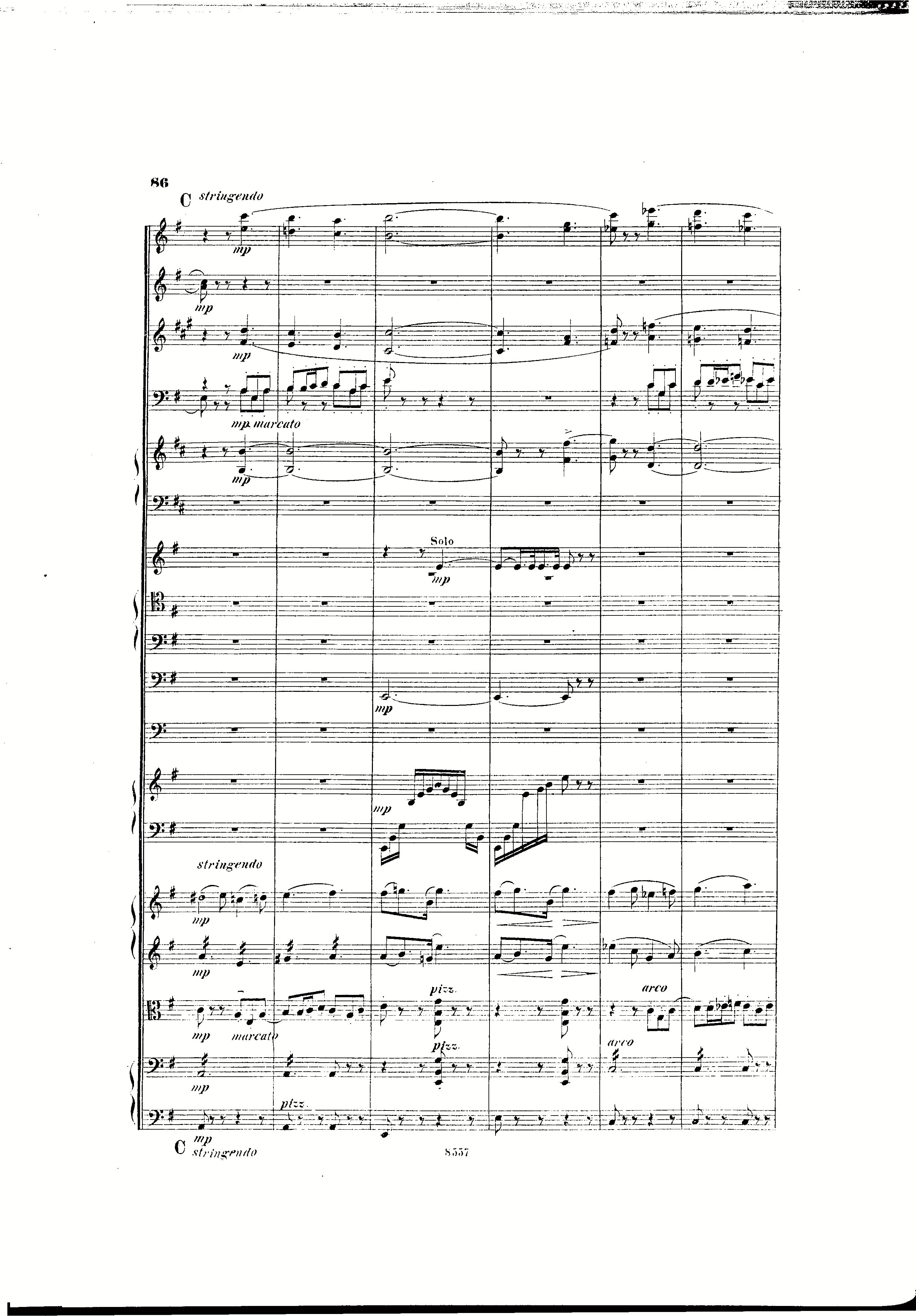
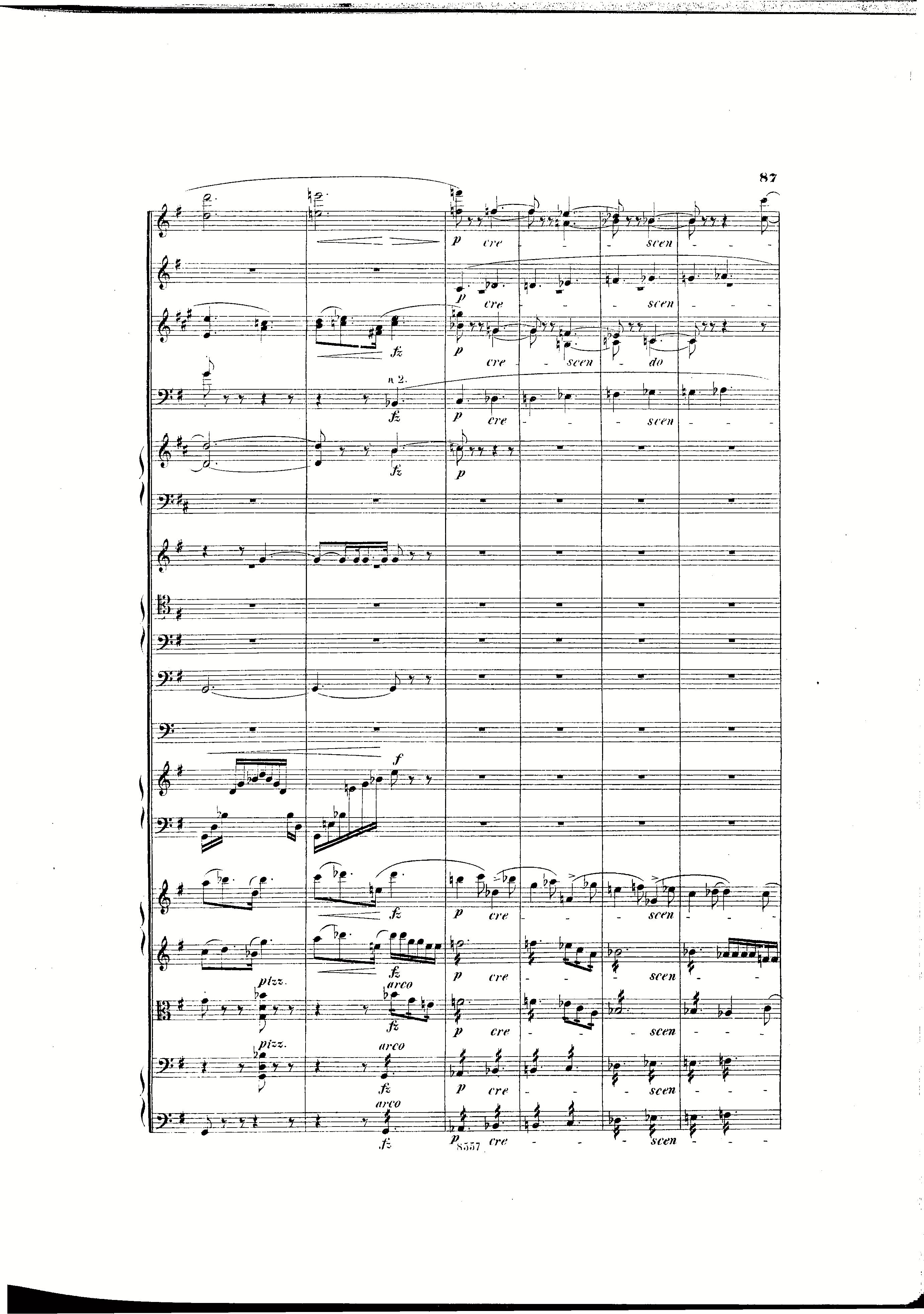






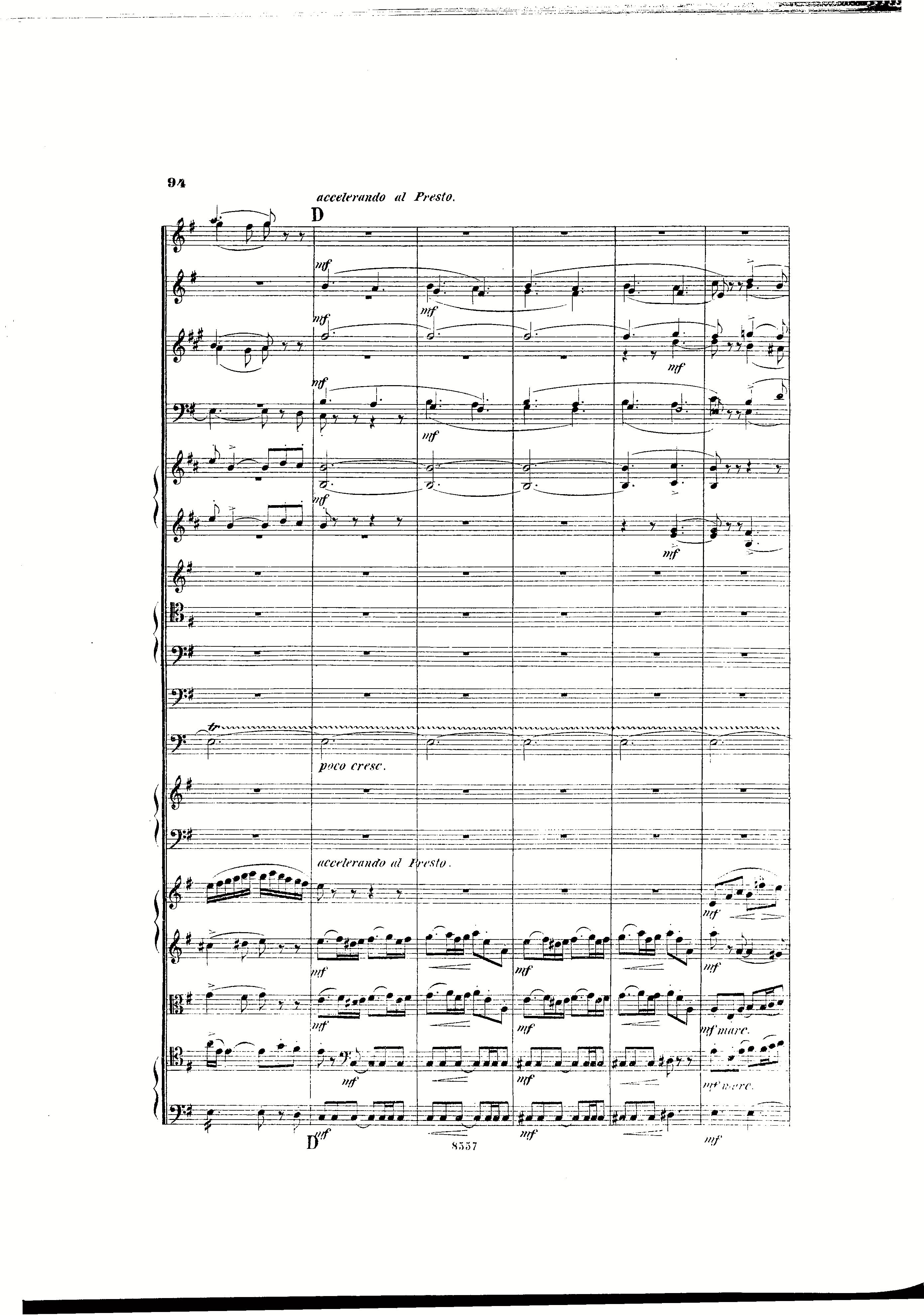
accclertmdo al Presto.
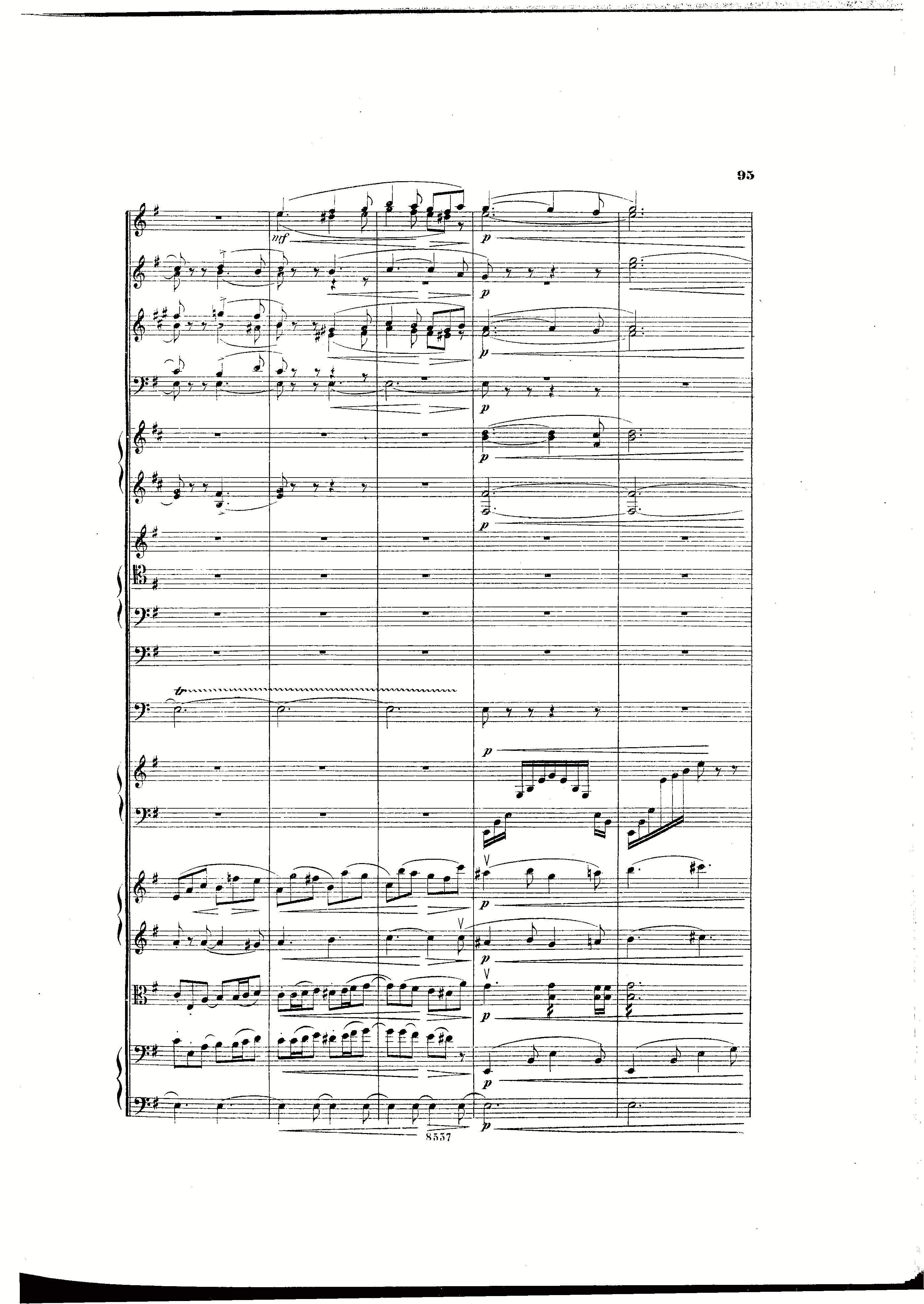
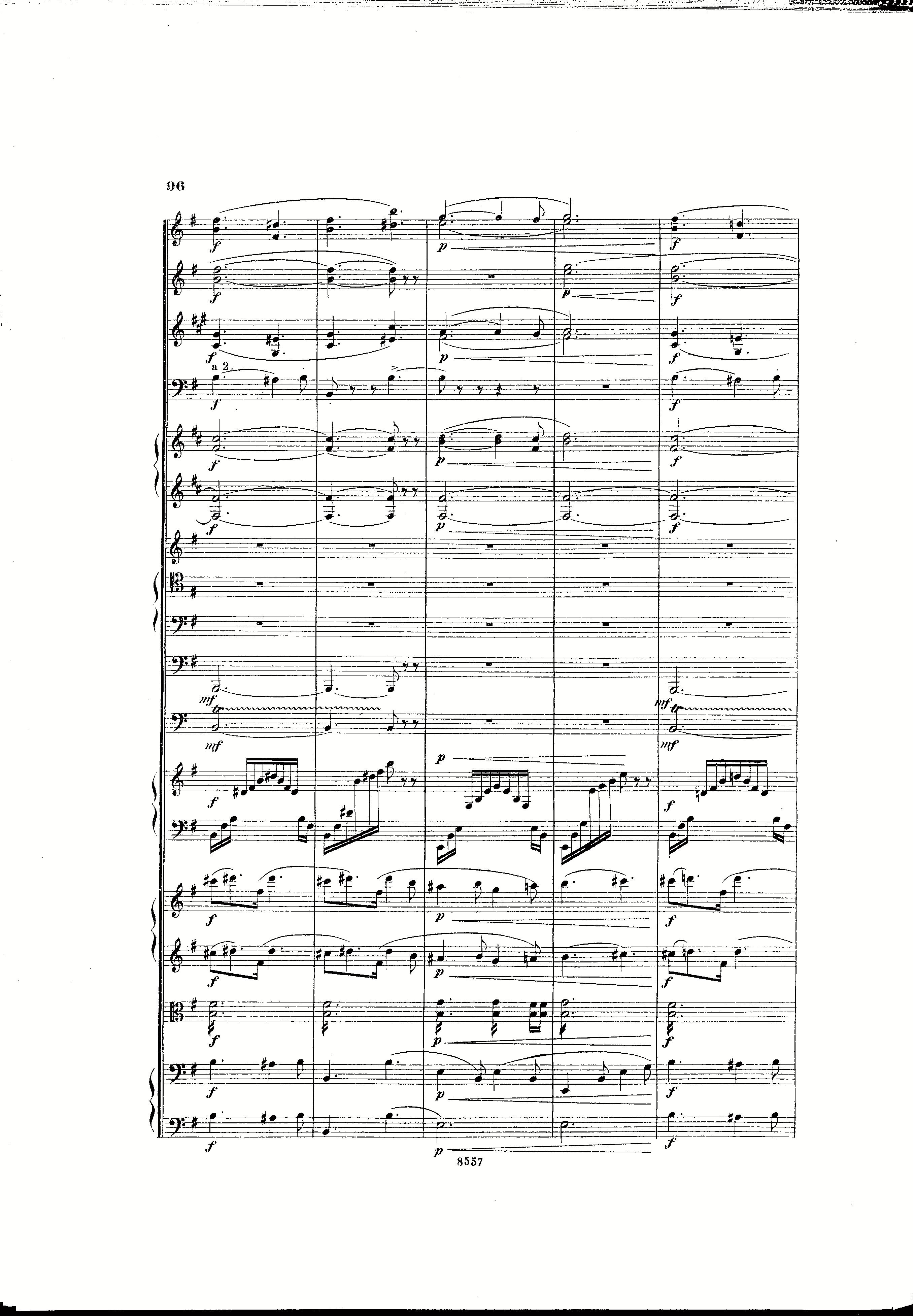


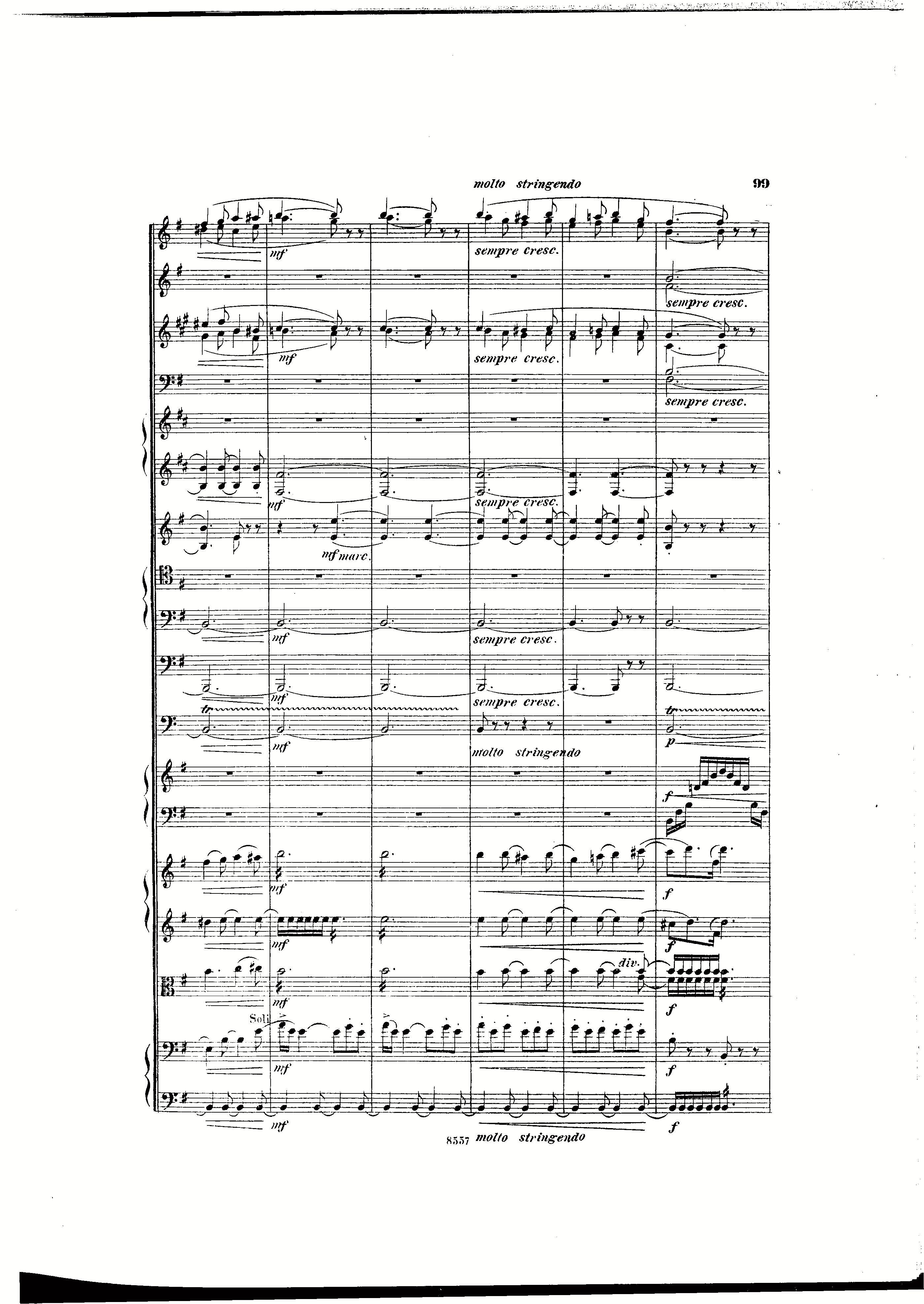



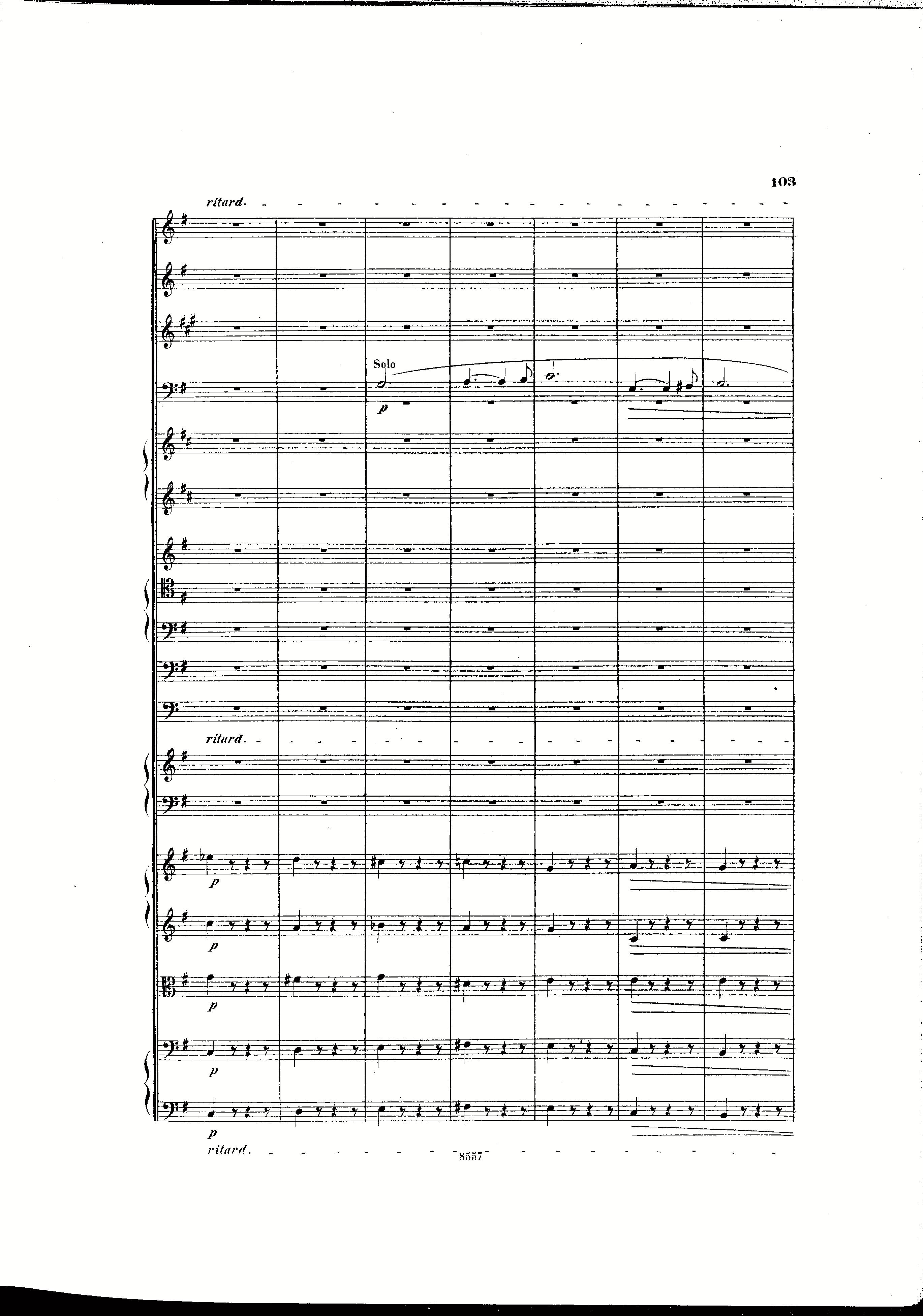

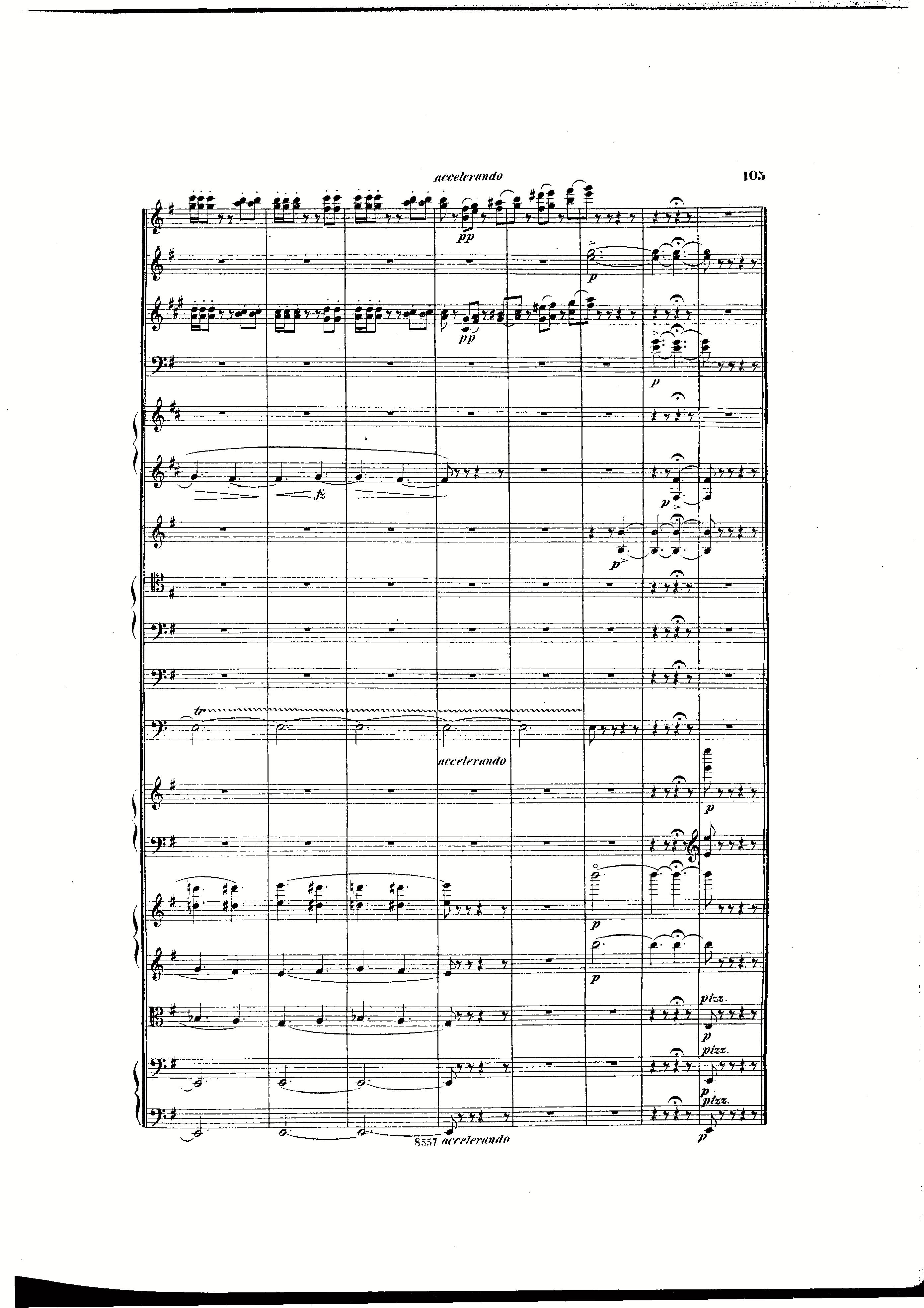
1.06 Flauti. Oboi. Clarinetti in B. Fagotti. I. II. (;orni in F. III. IV. Trombe in F. I.II. Tromboni. III. Tuba.
Timpani pi Es. B. Tamtam~ .Arpa.
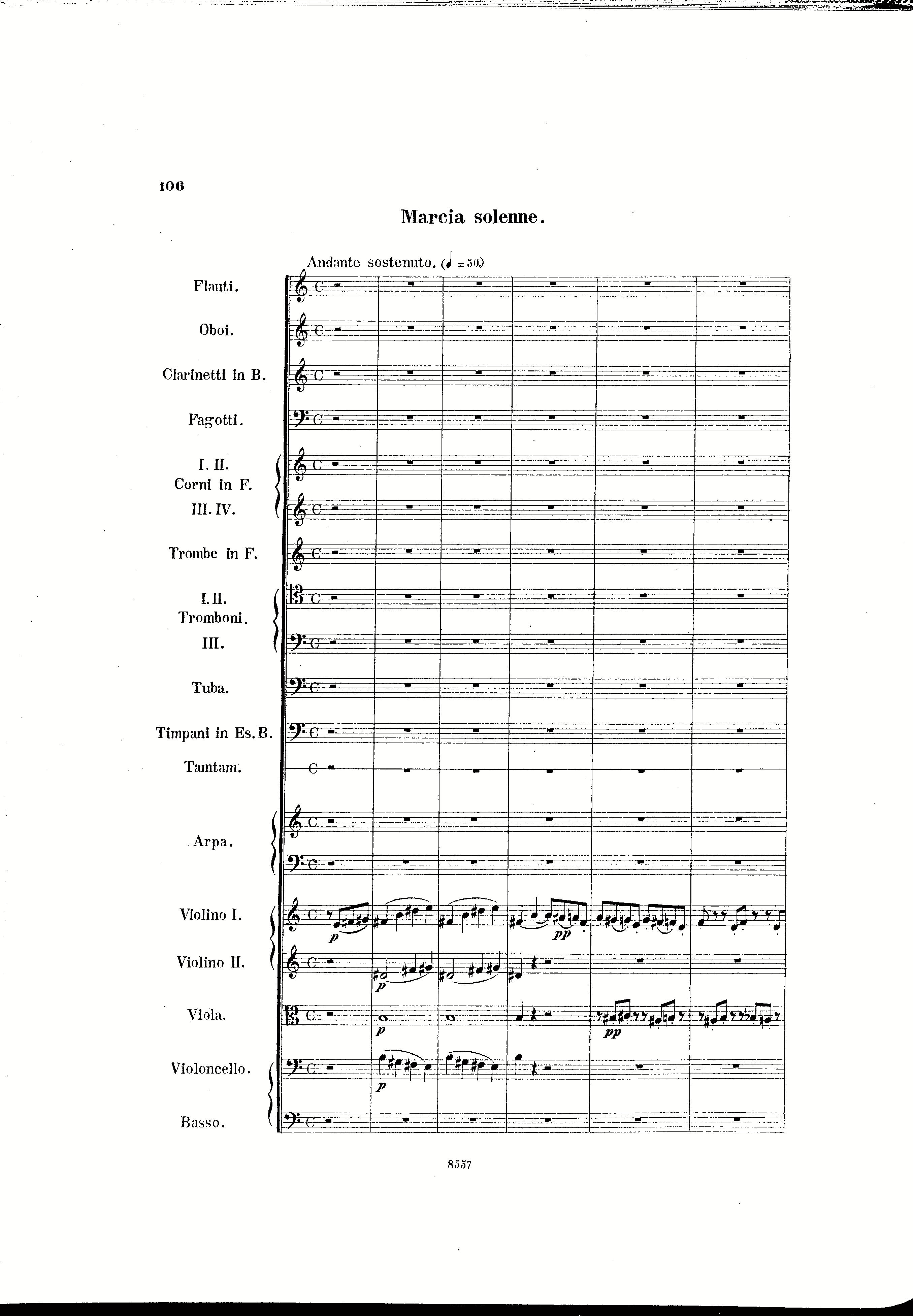
Violino I.
Violino II.
Violoncello.
Basso.
Andante sostenuto. cJ=5o-;J
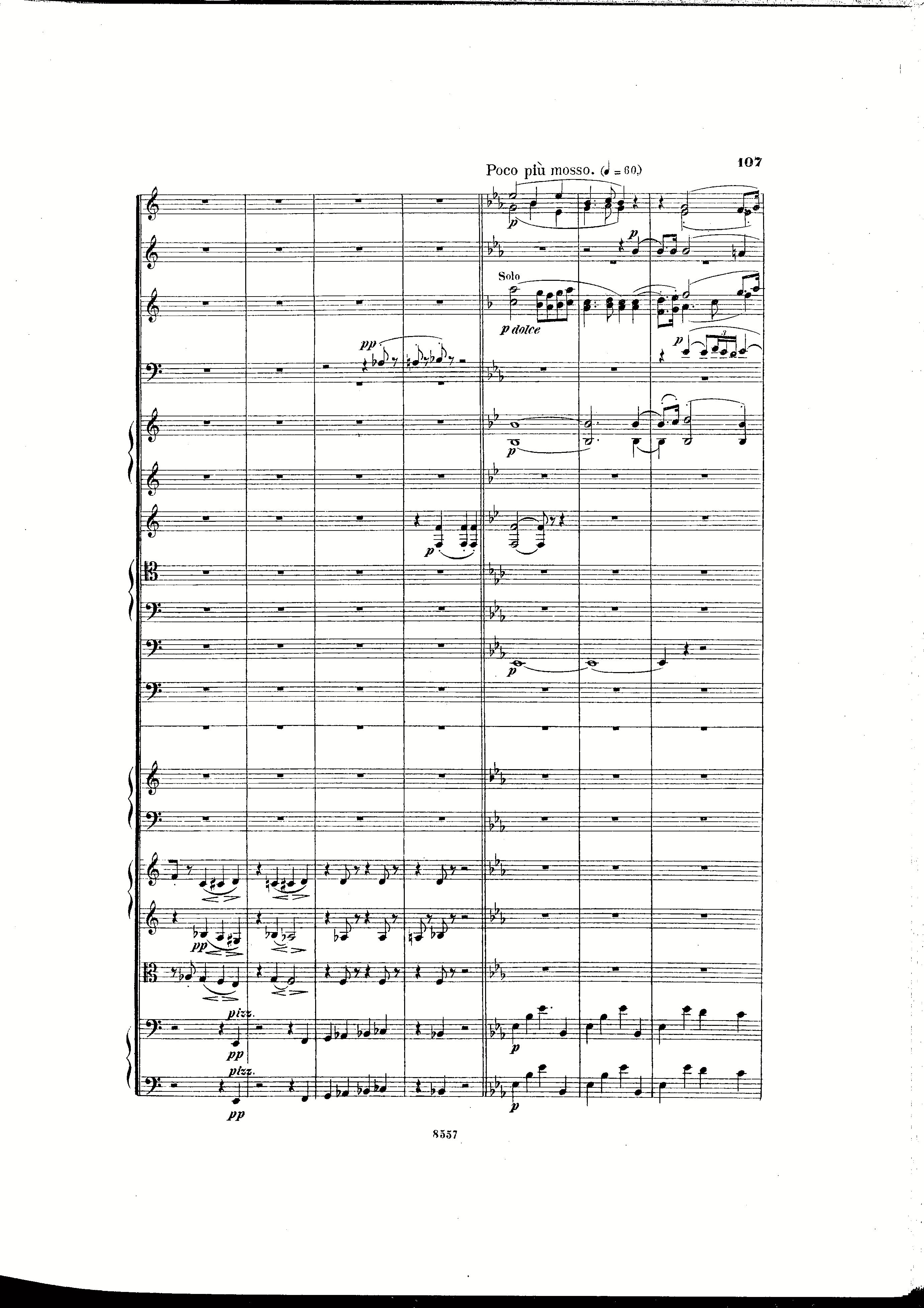

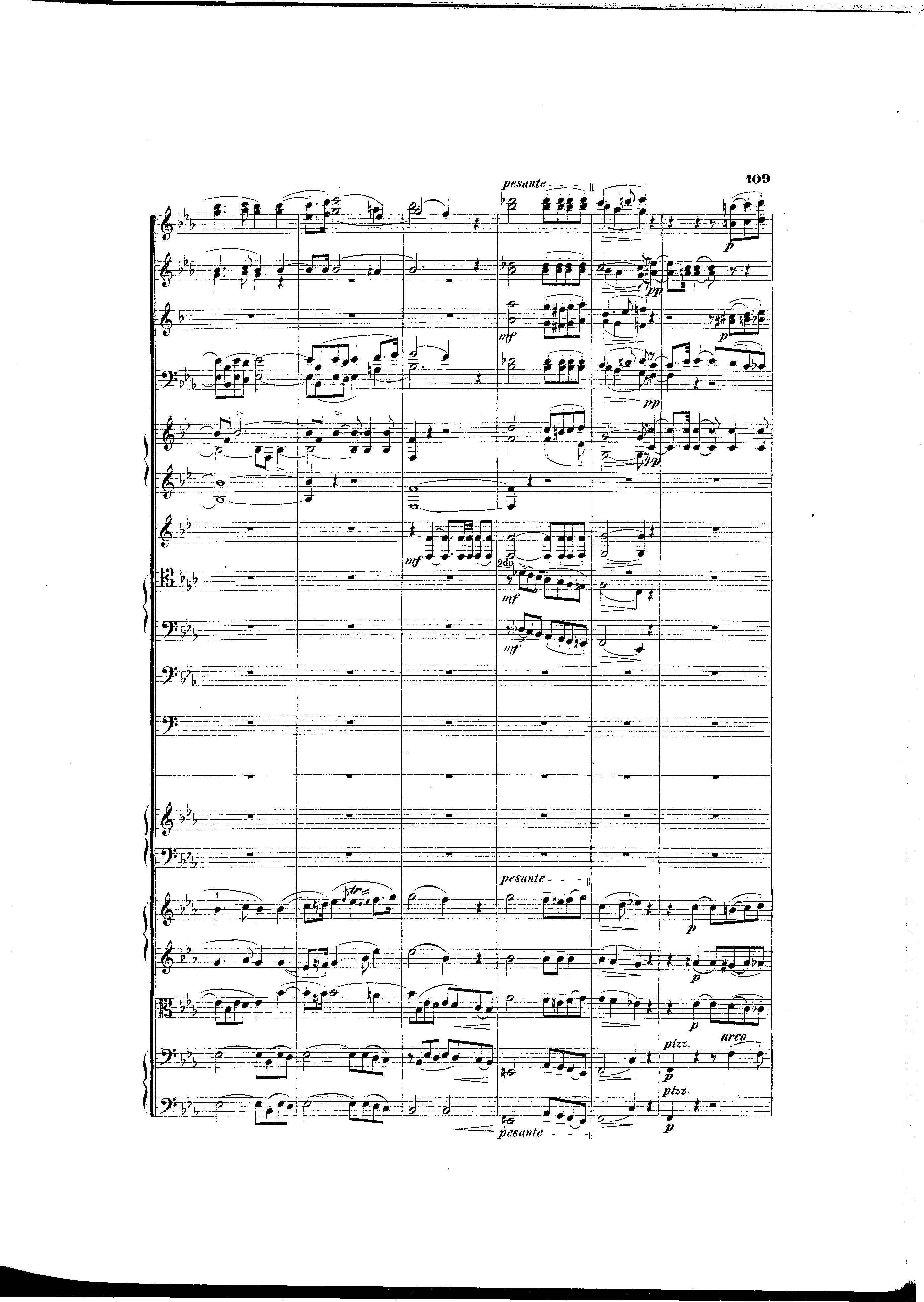
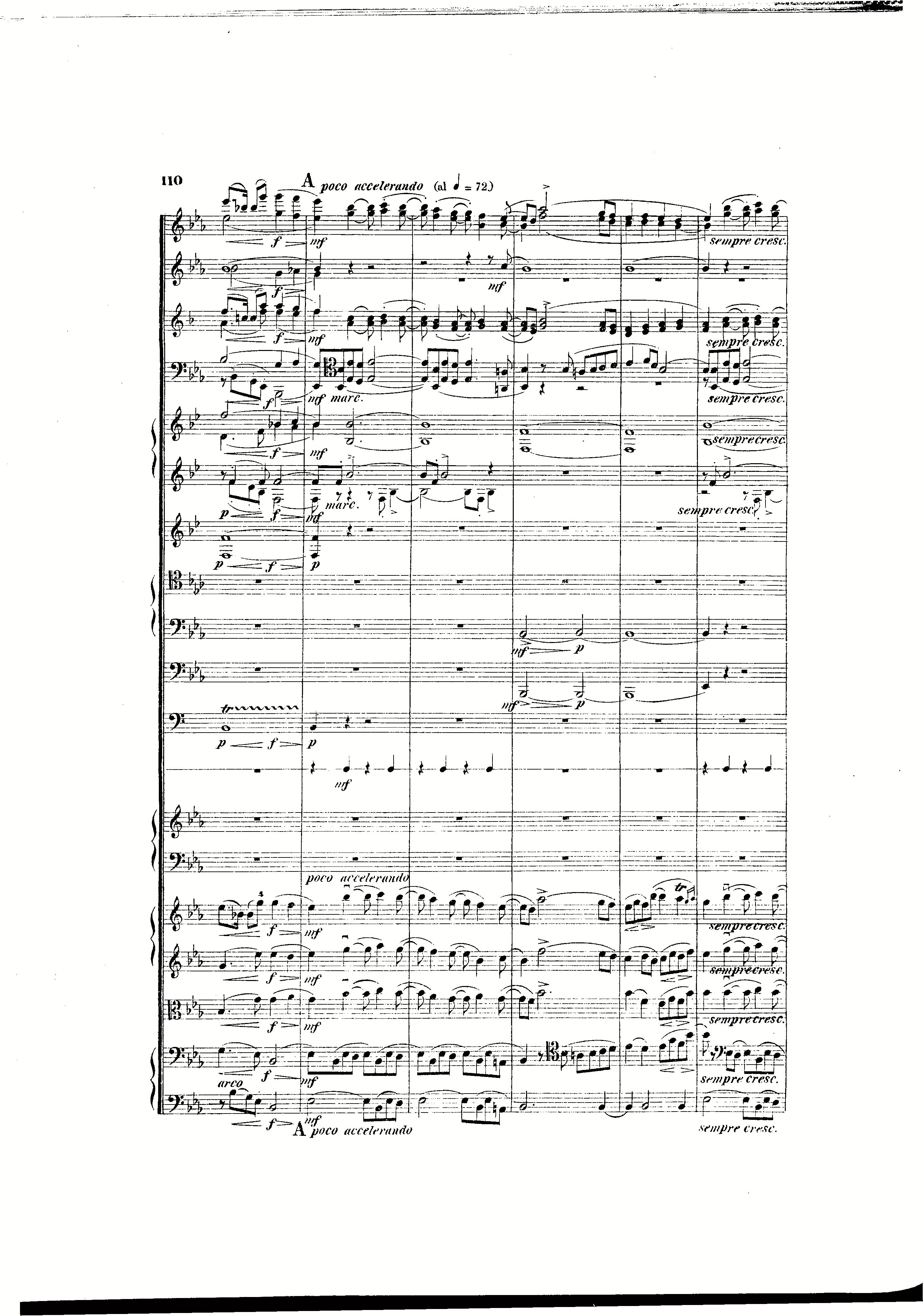
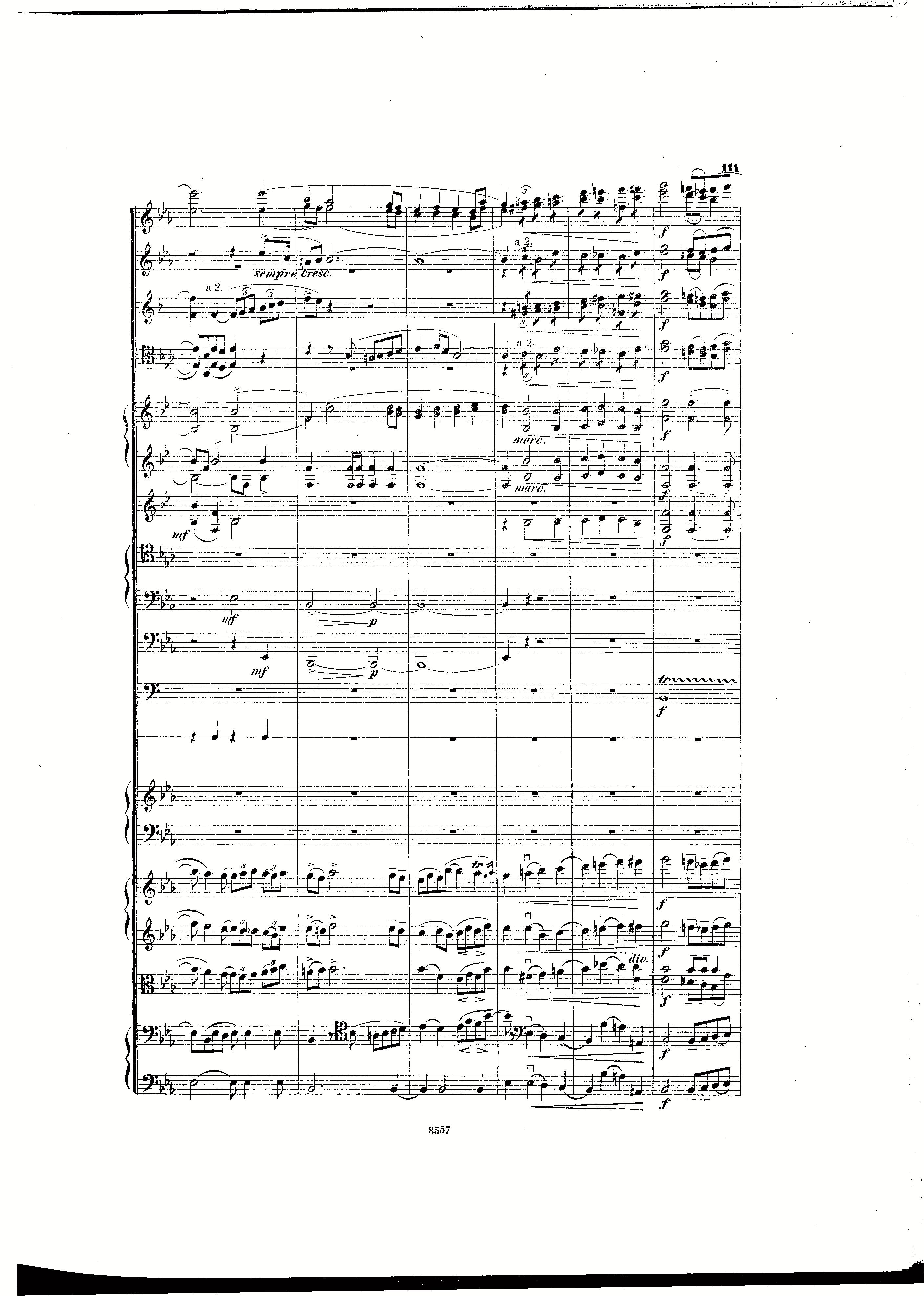

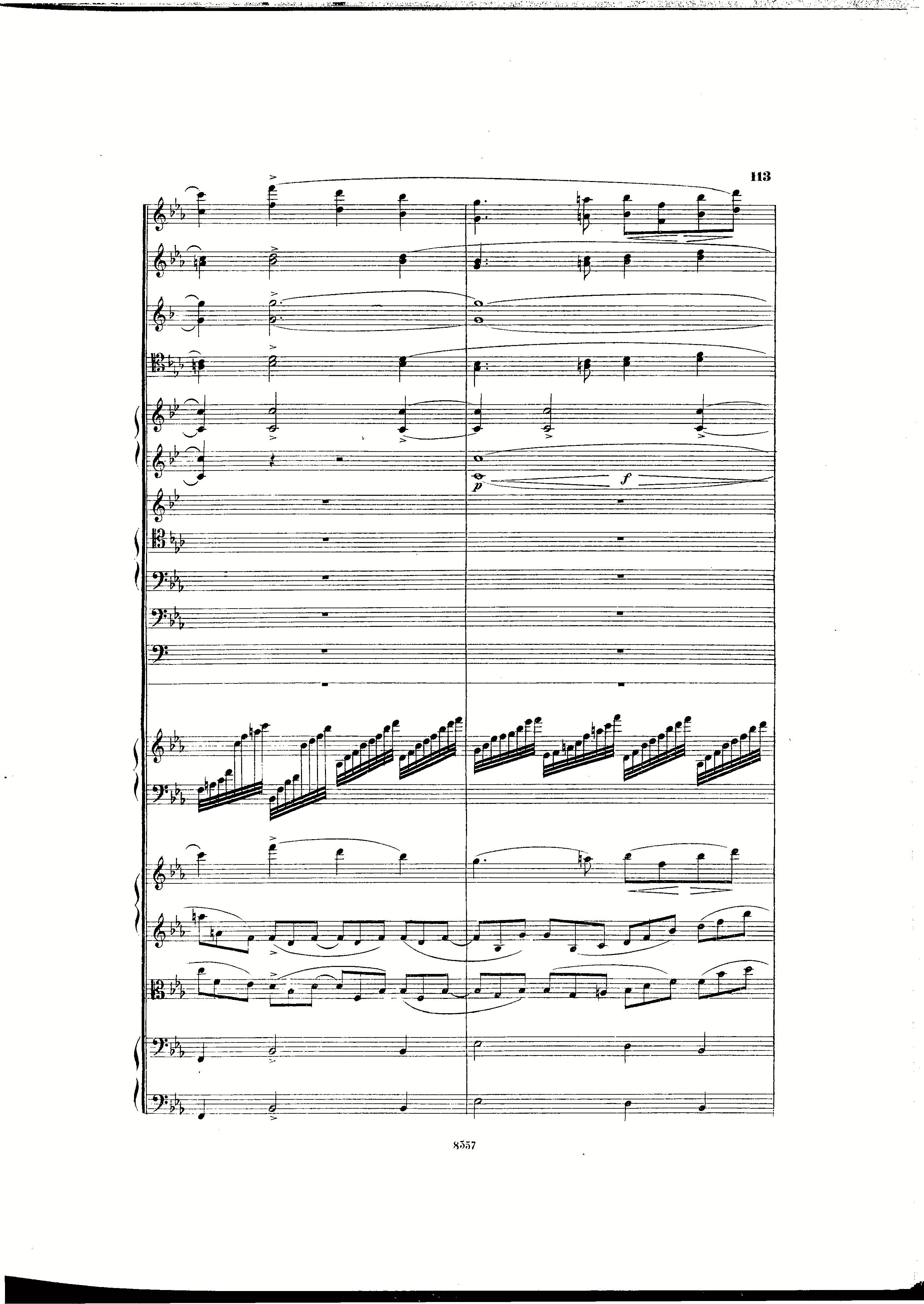














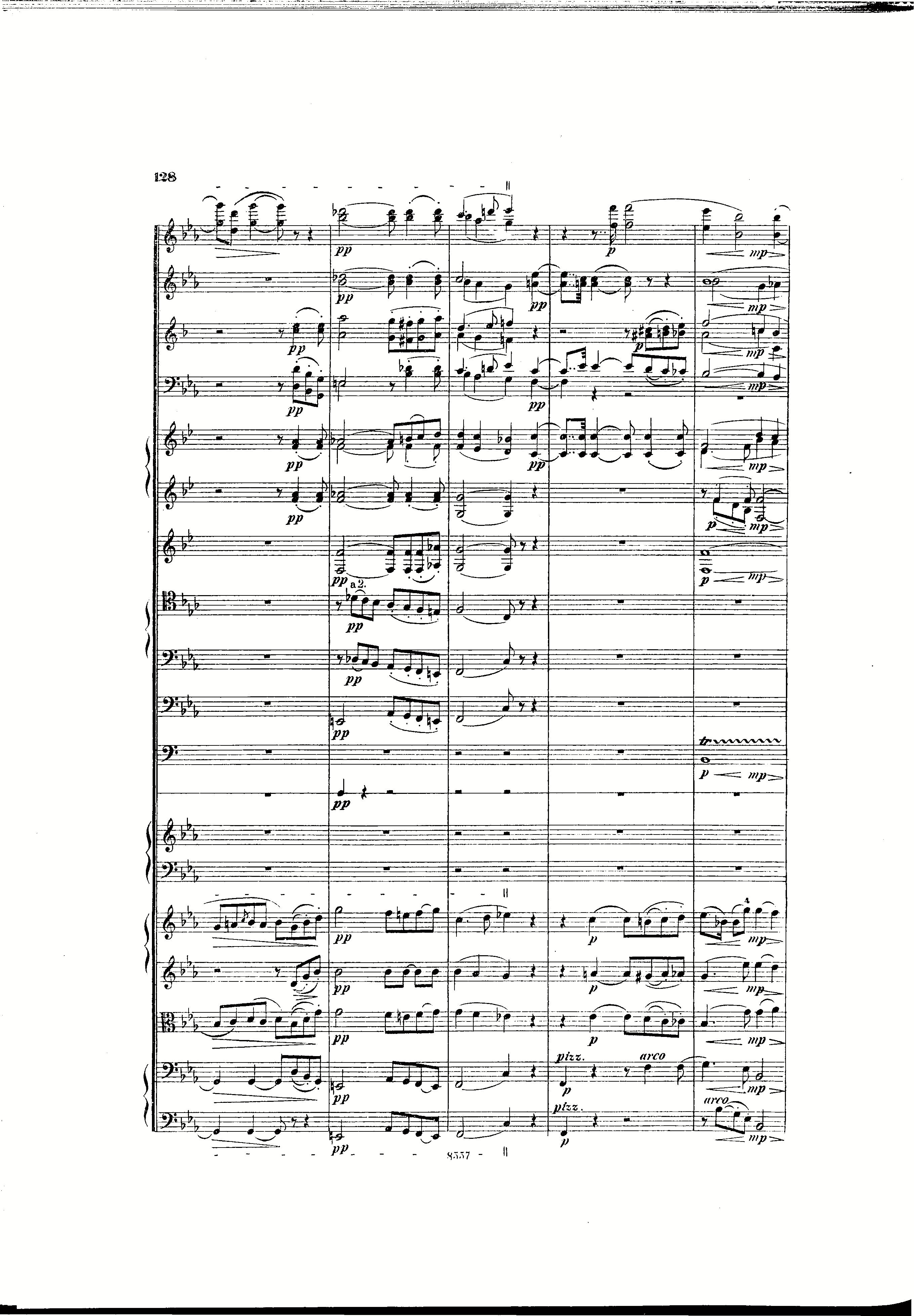


Flauti.
Oboi.
Clarinetti in B.
Fa8'otti.


